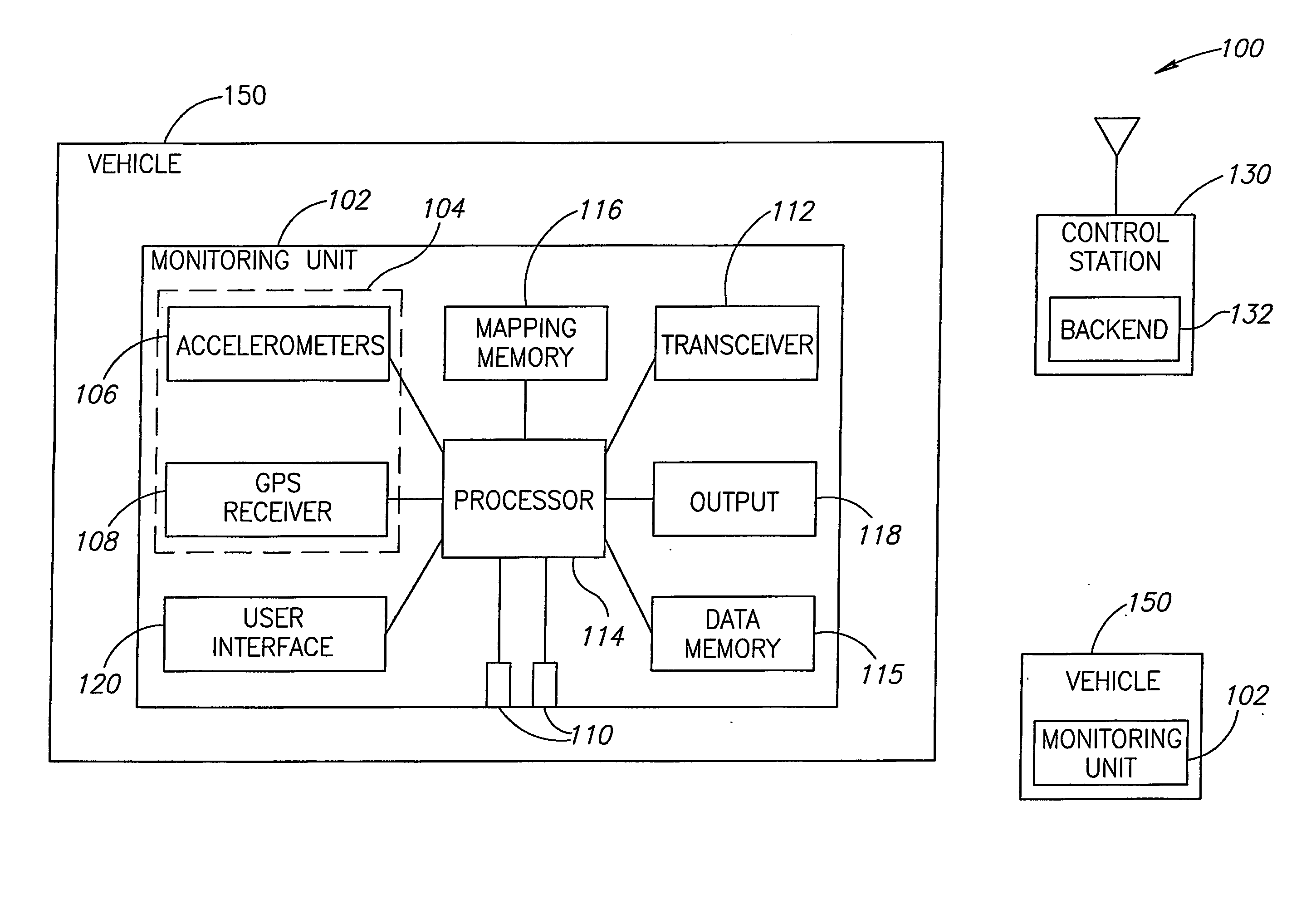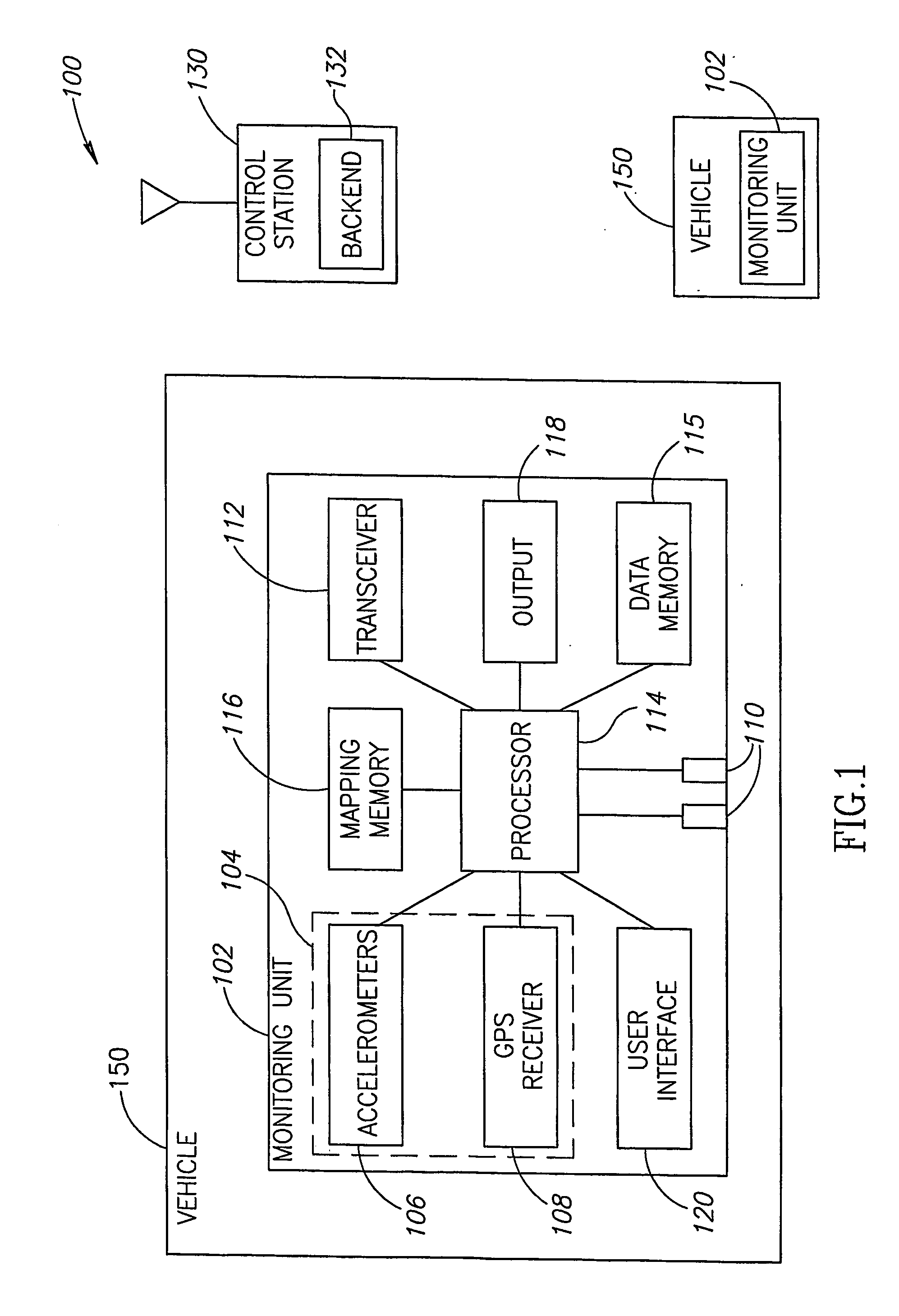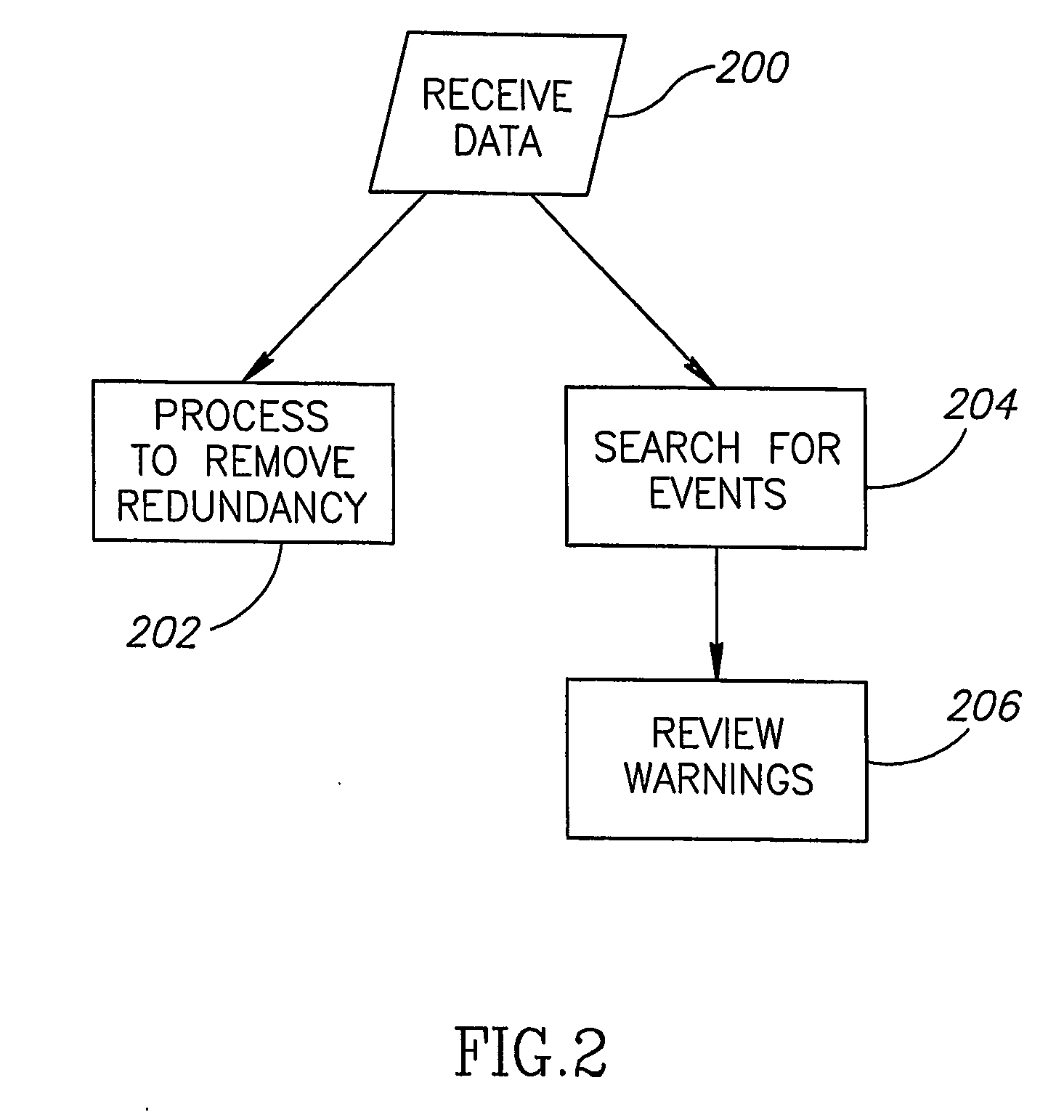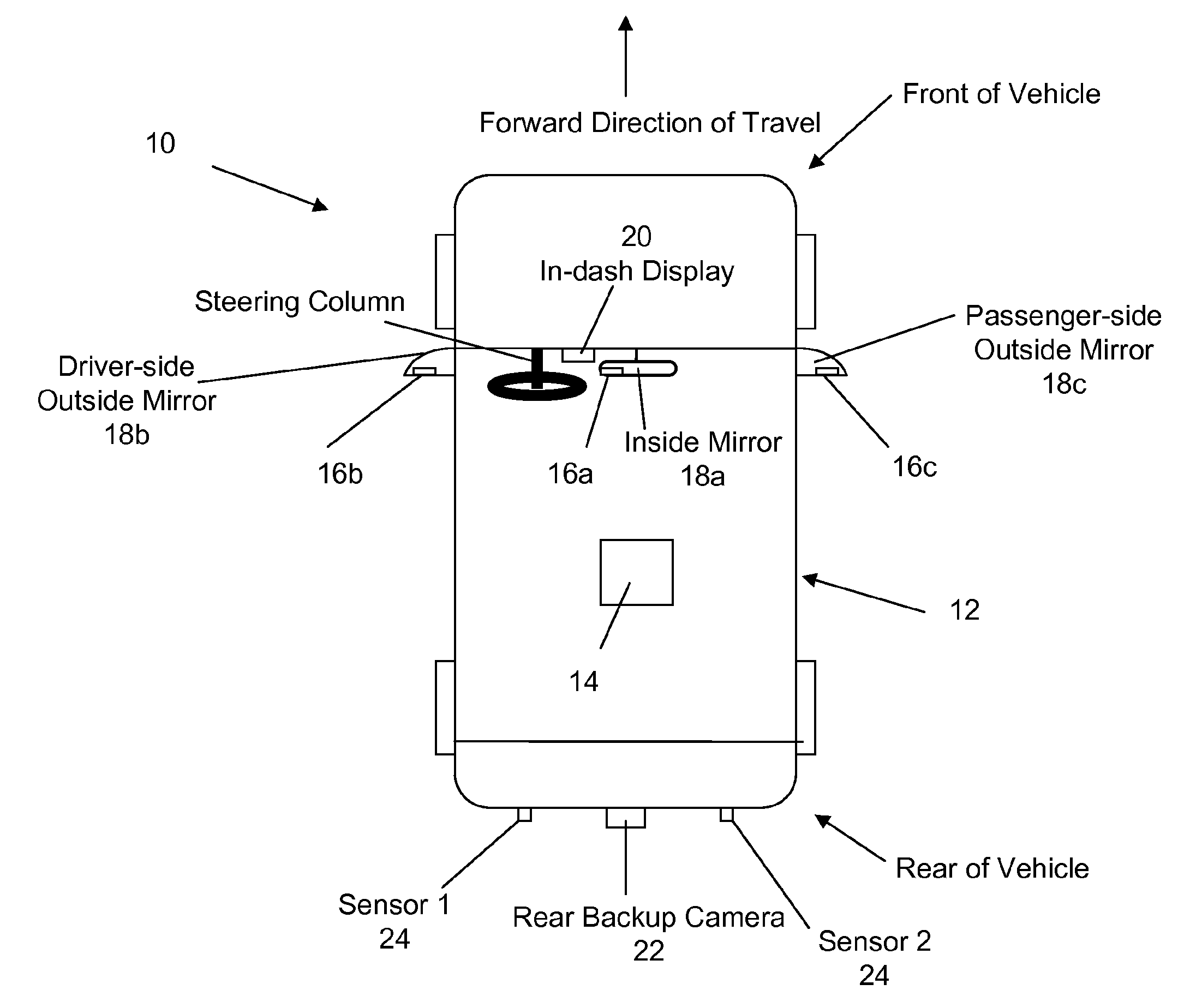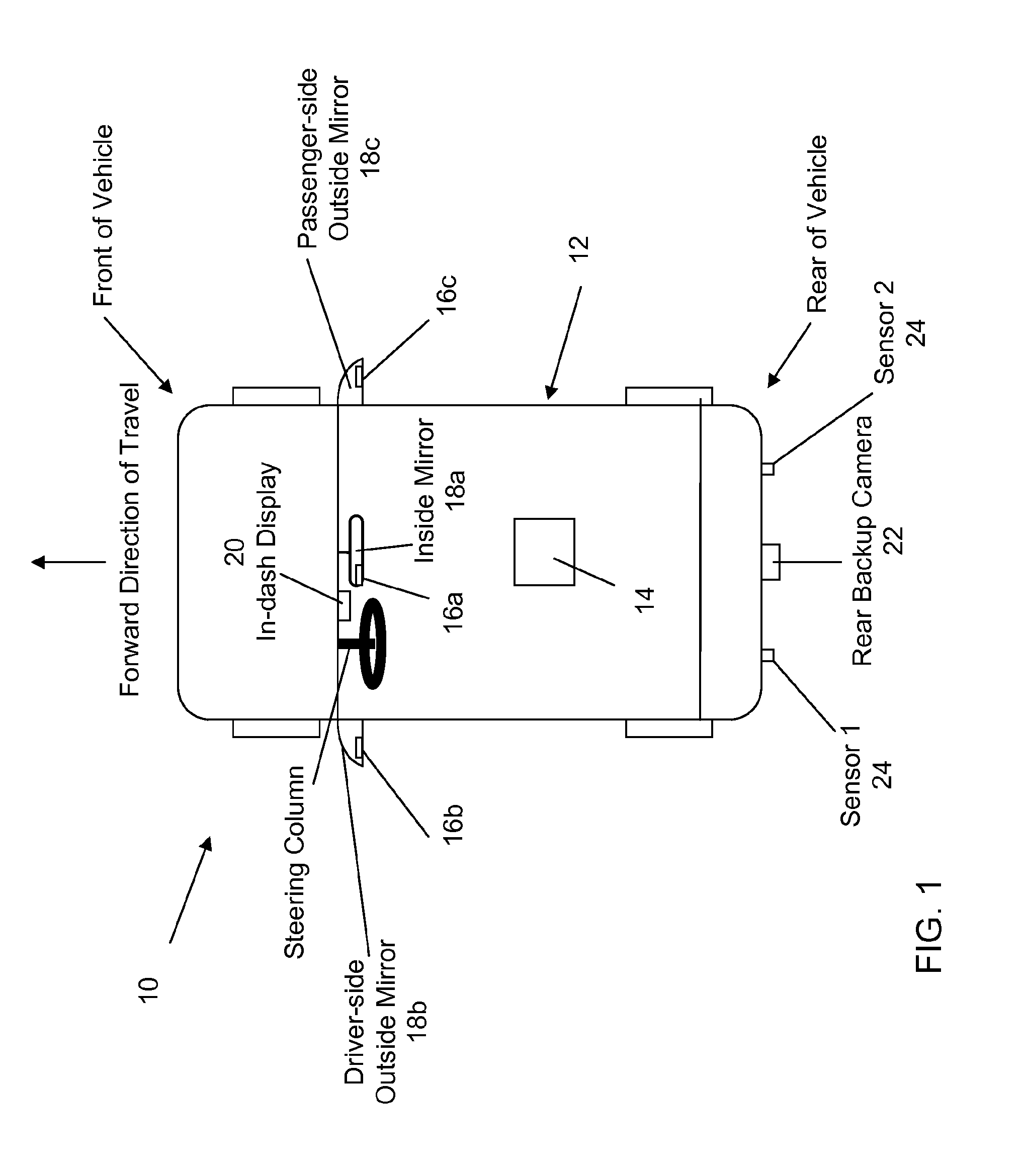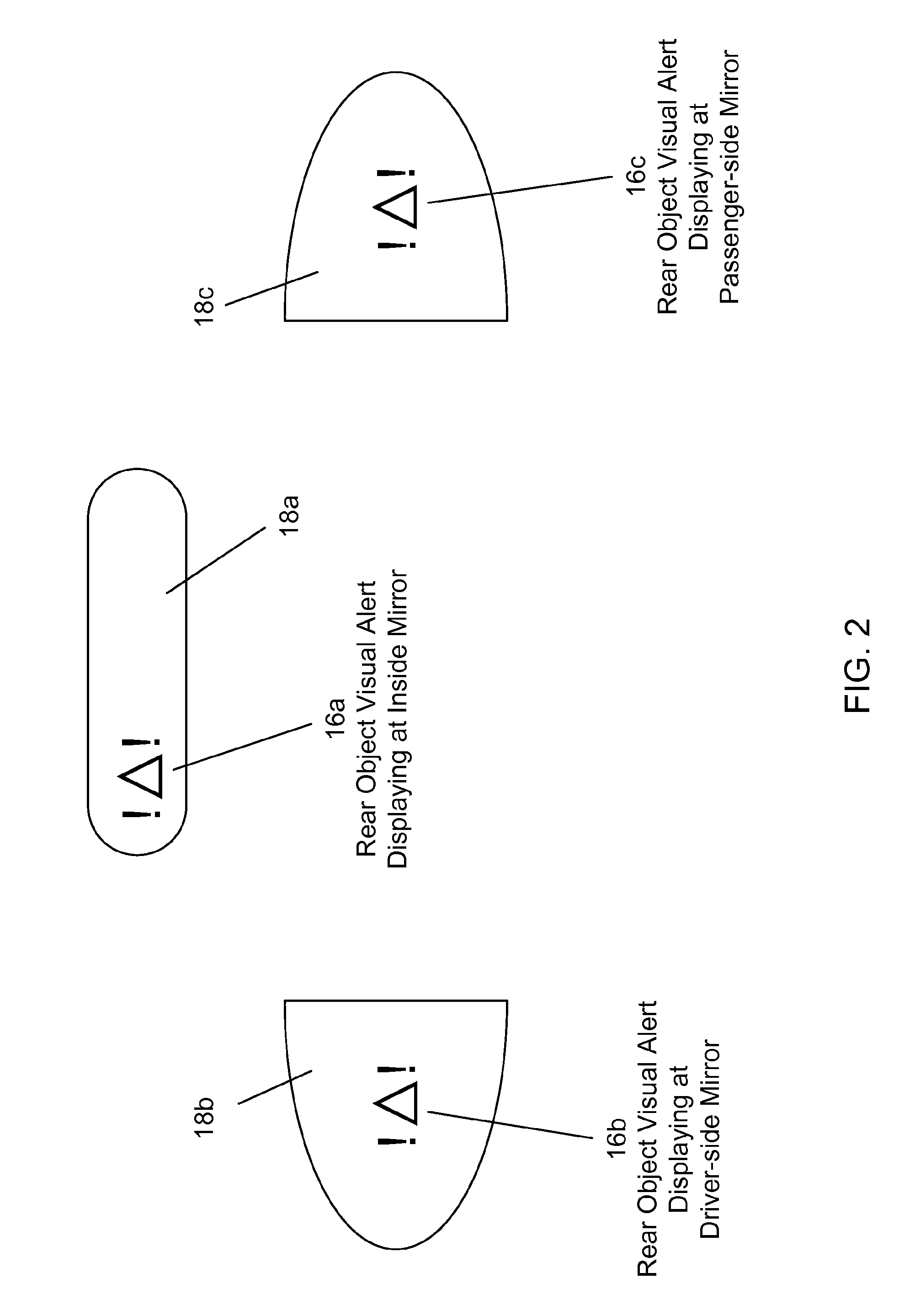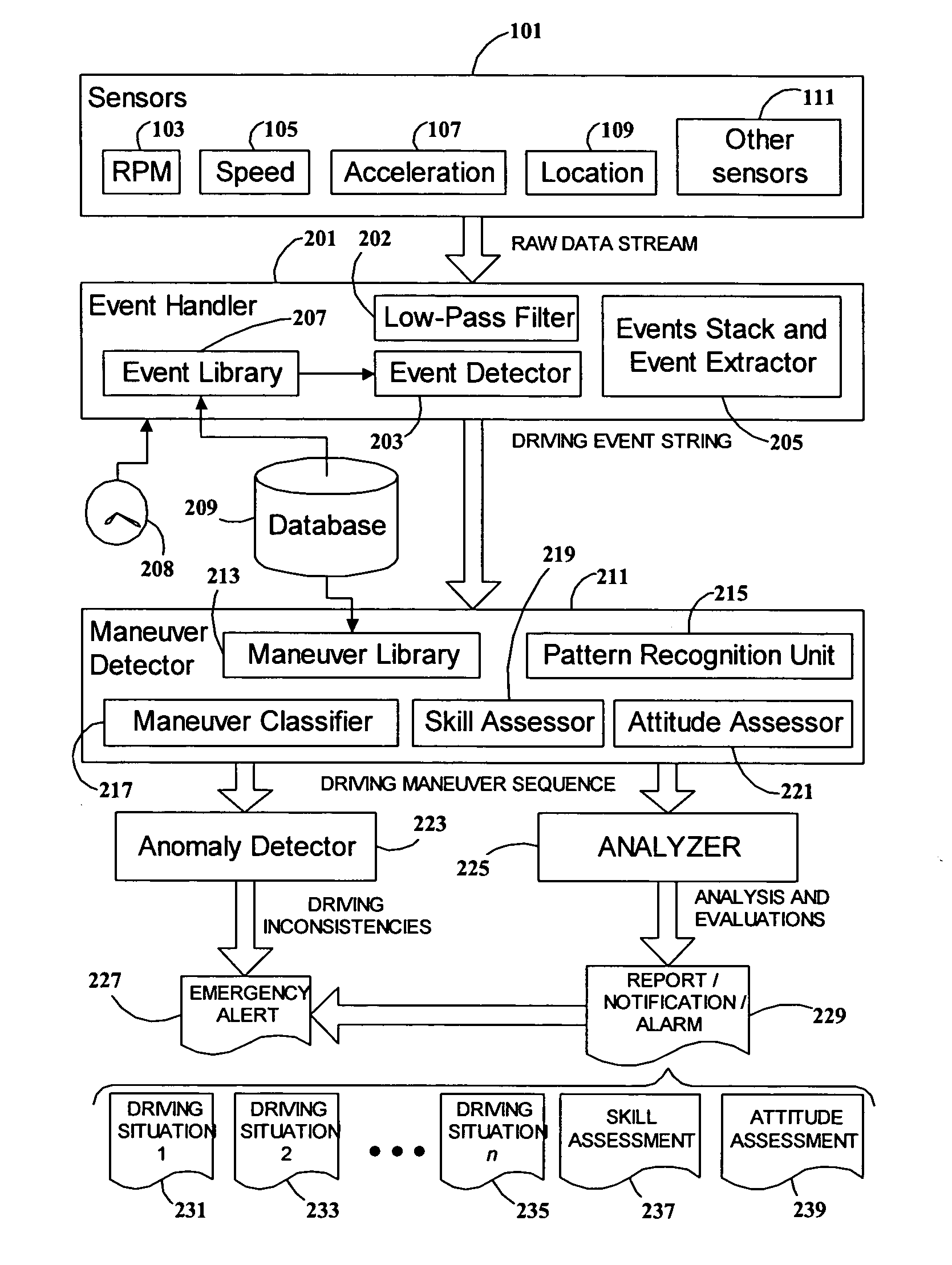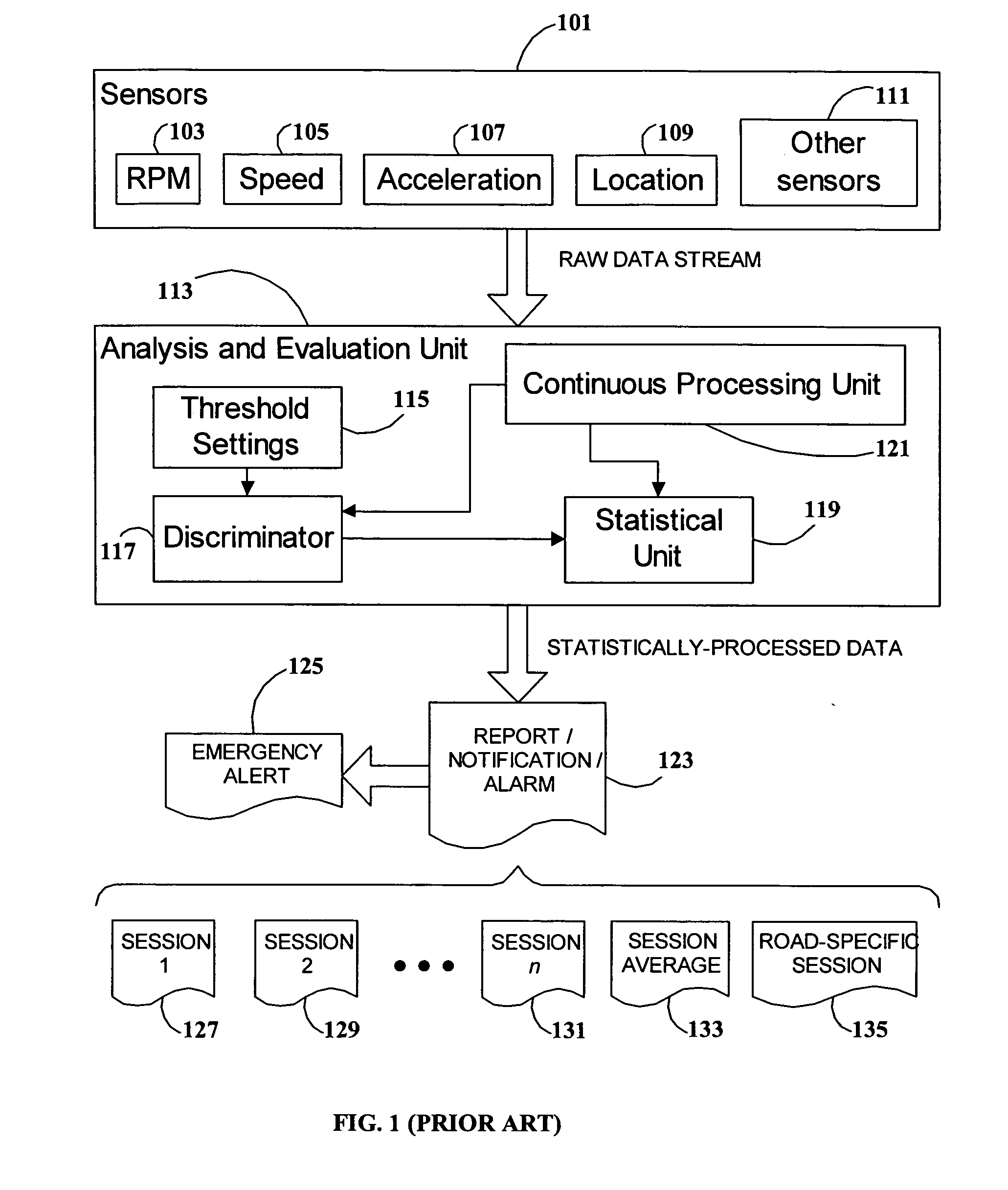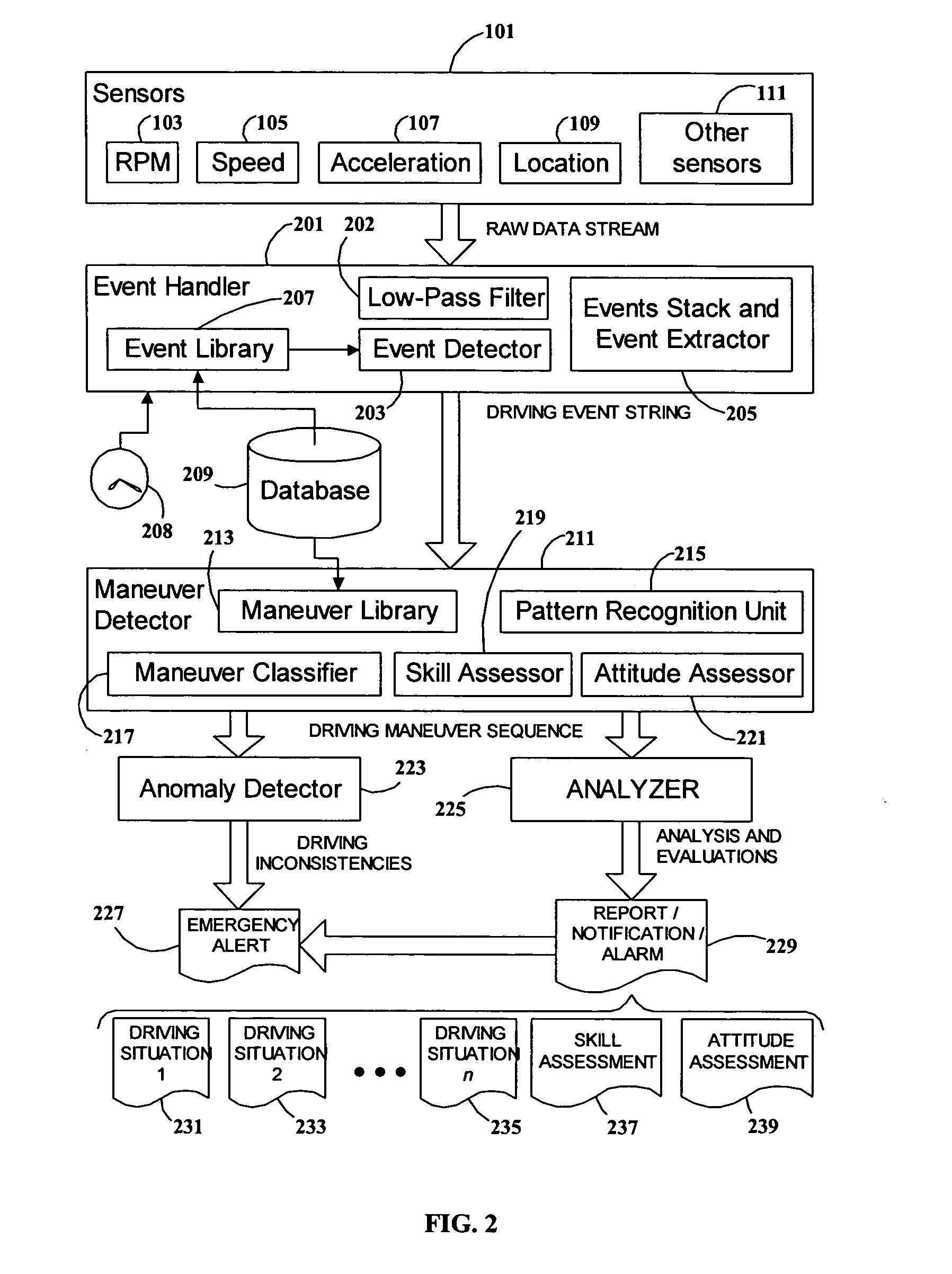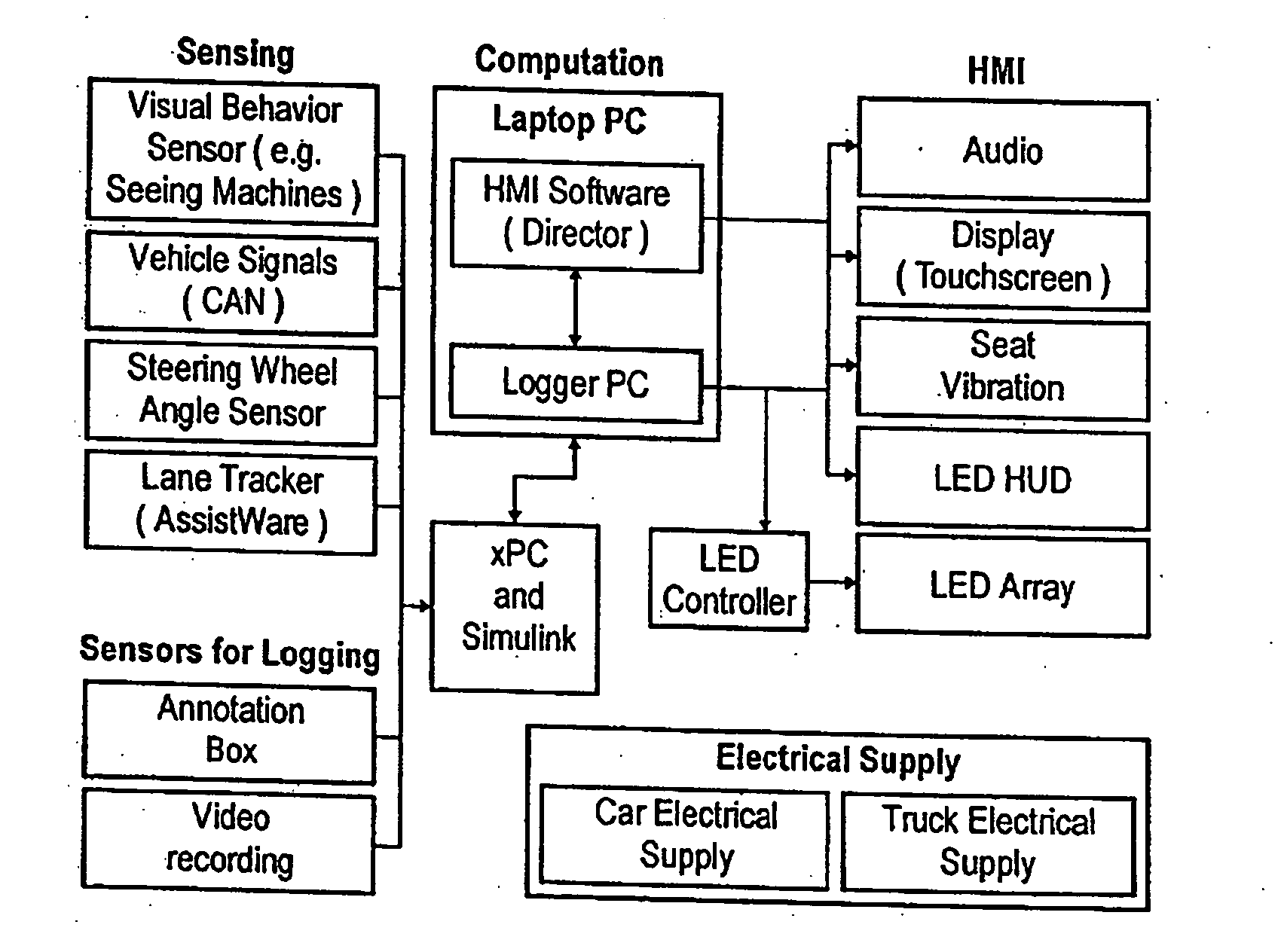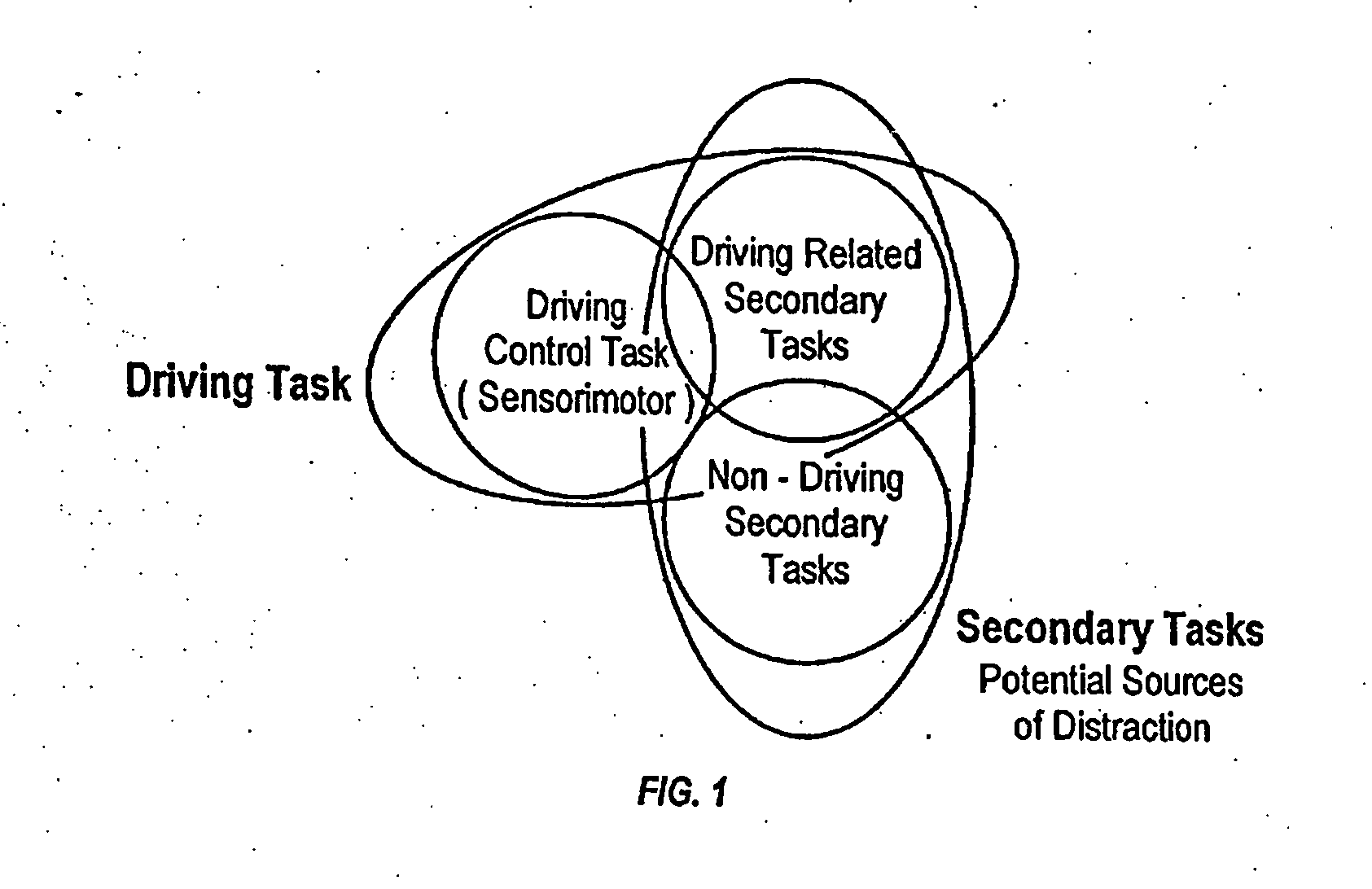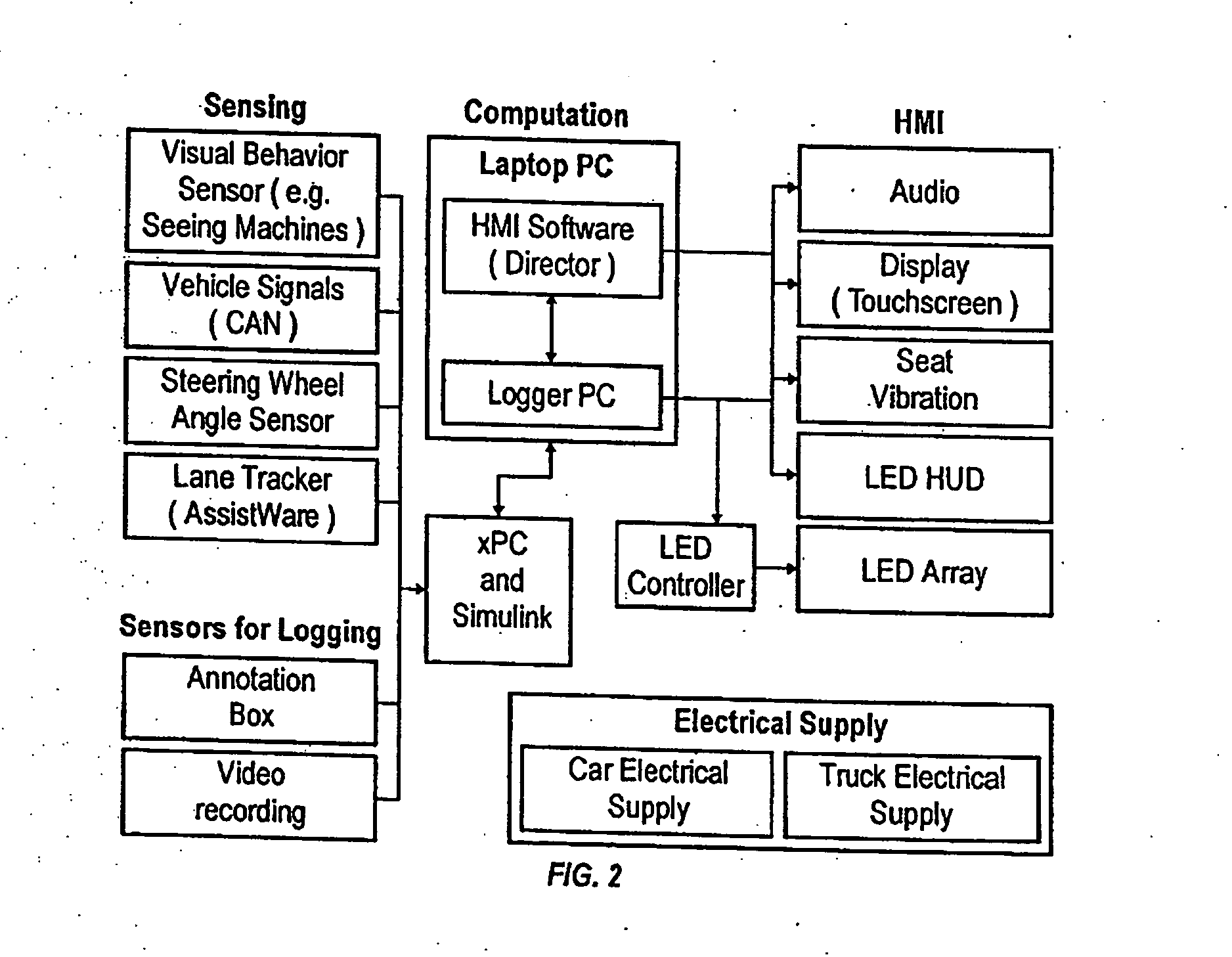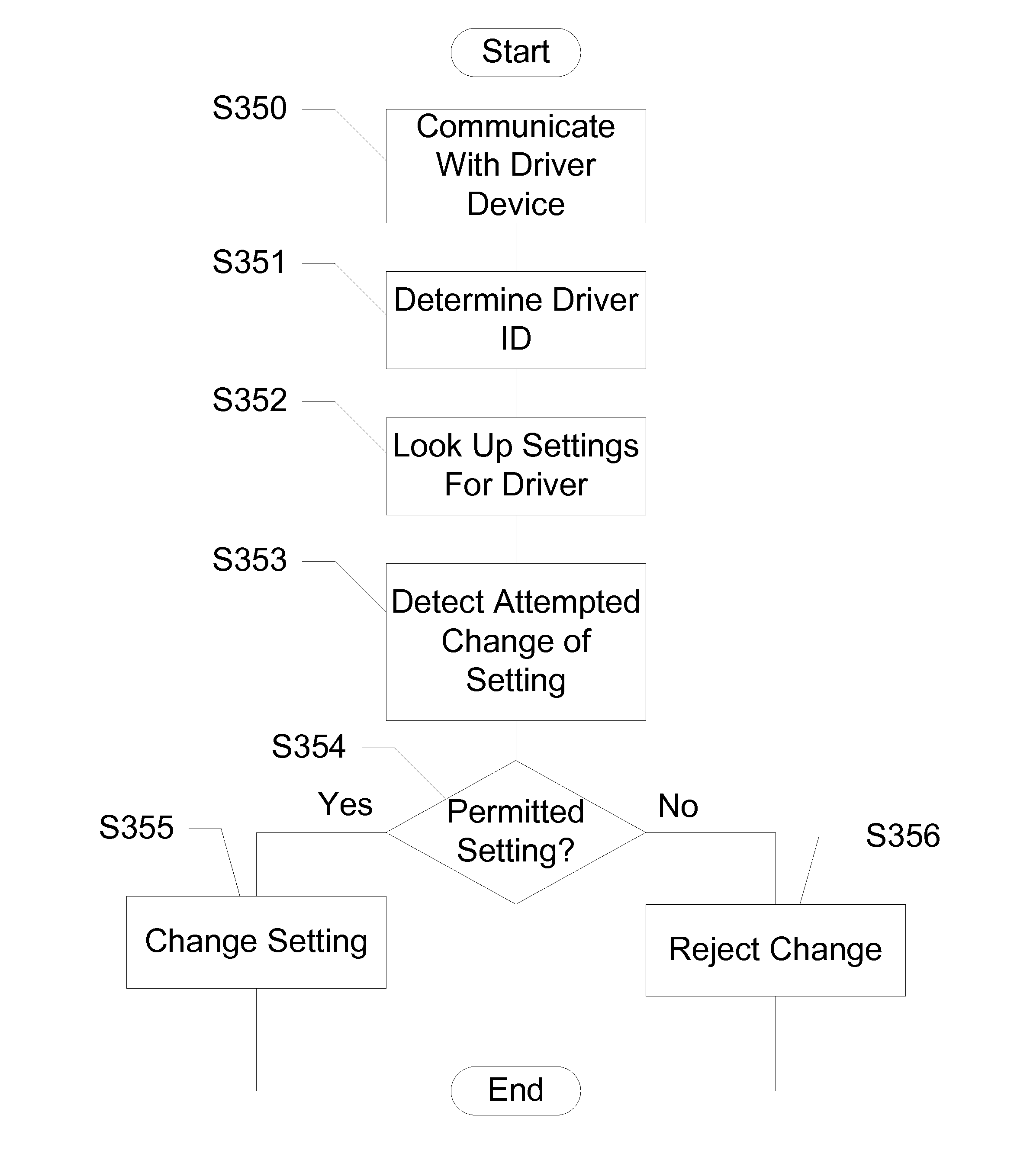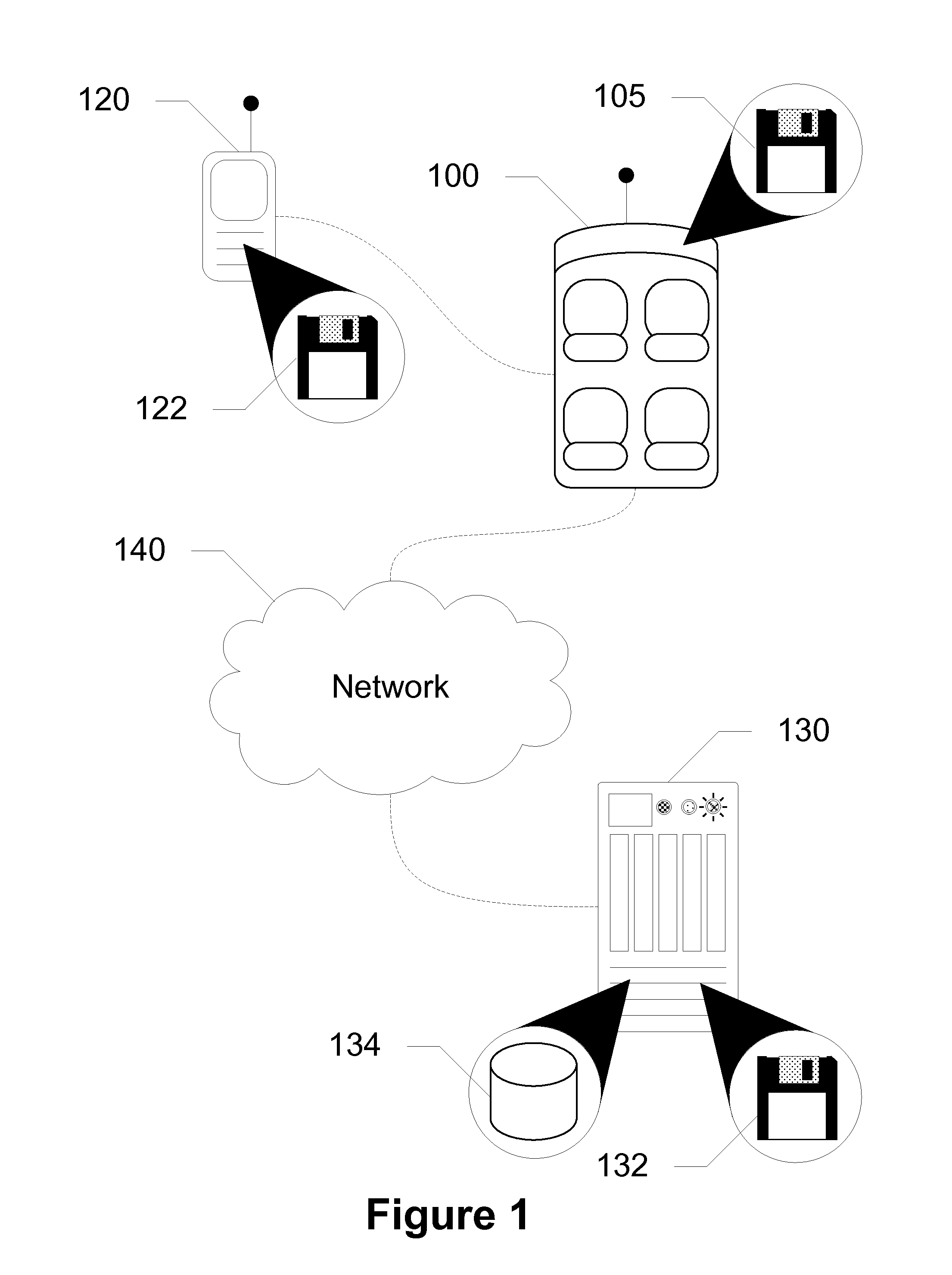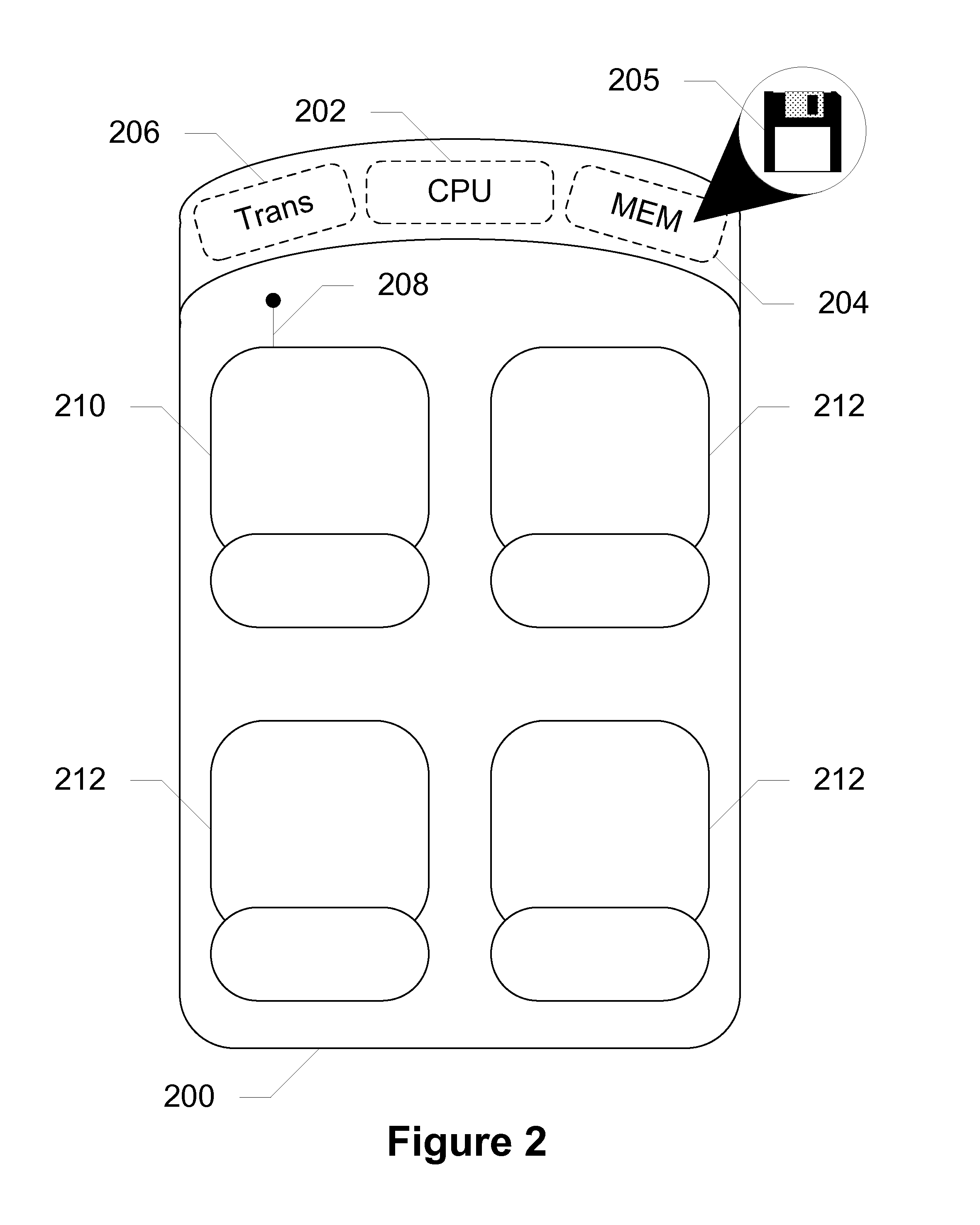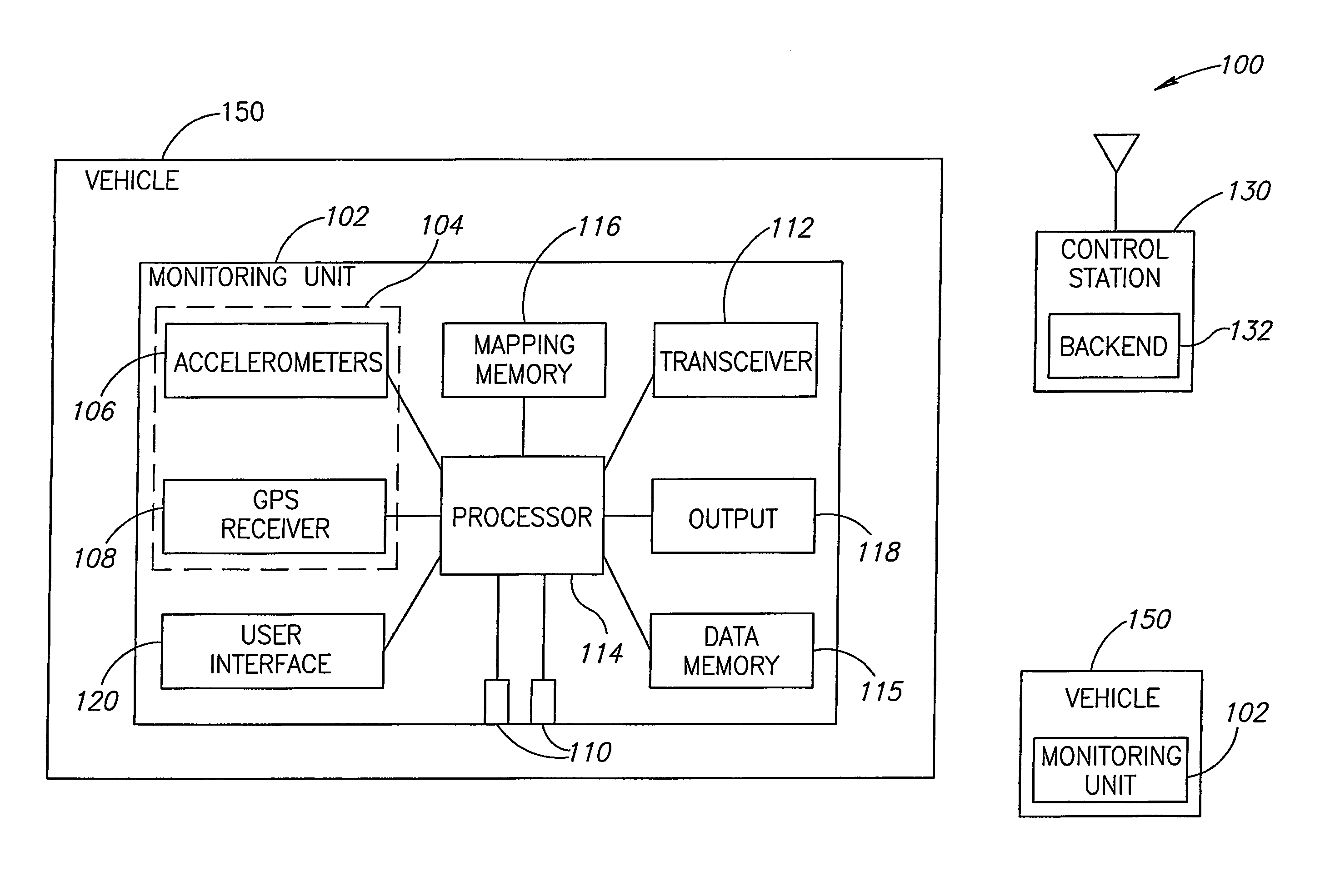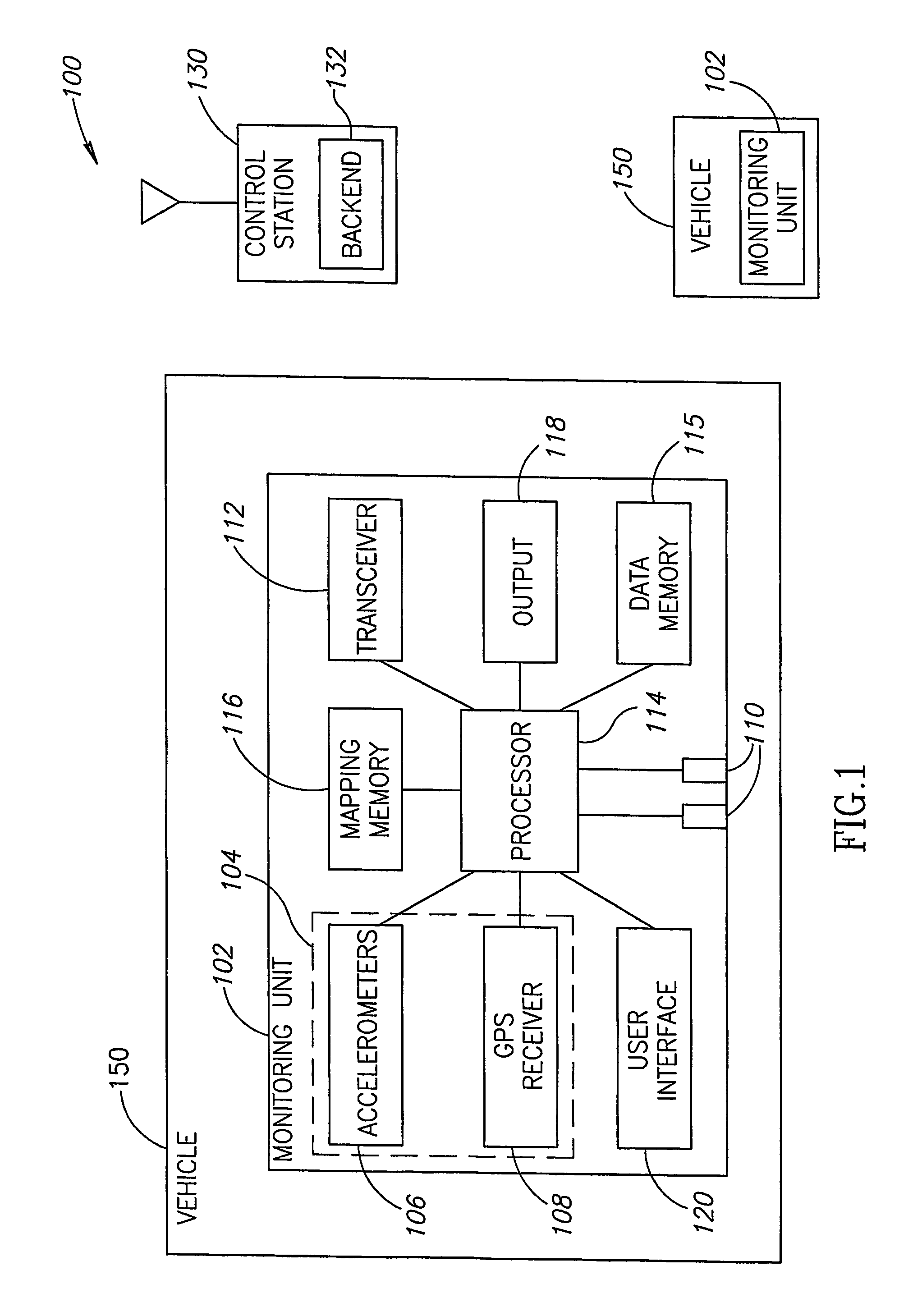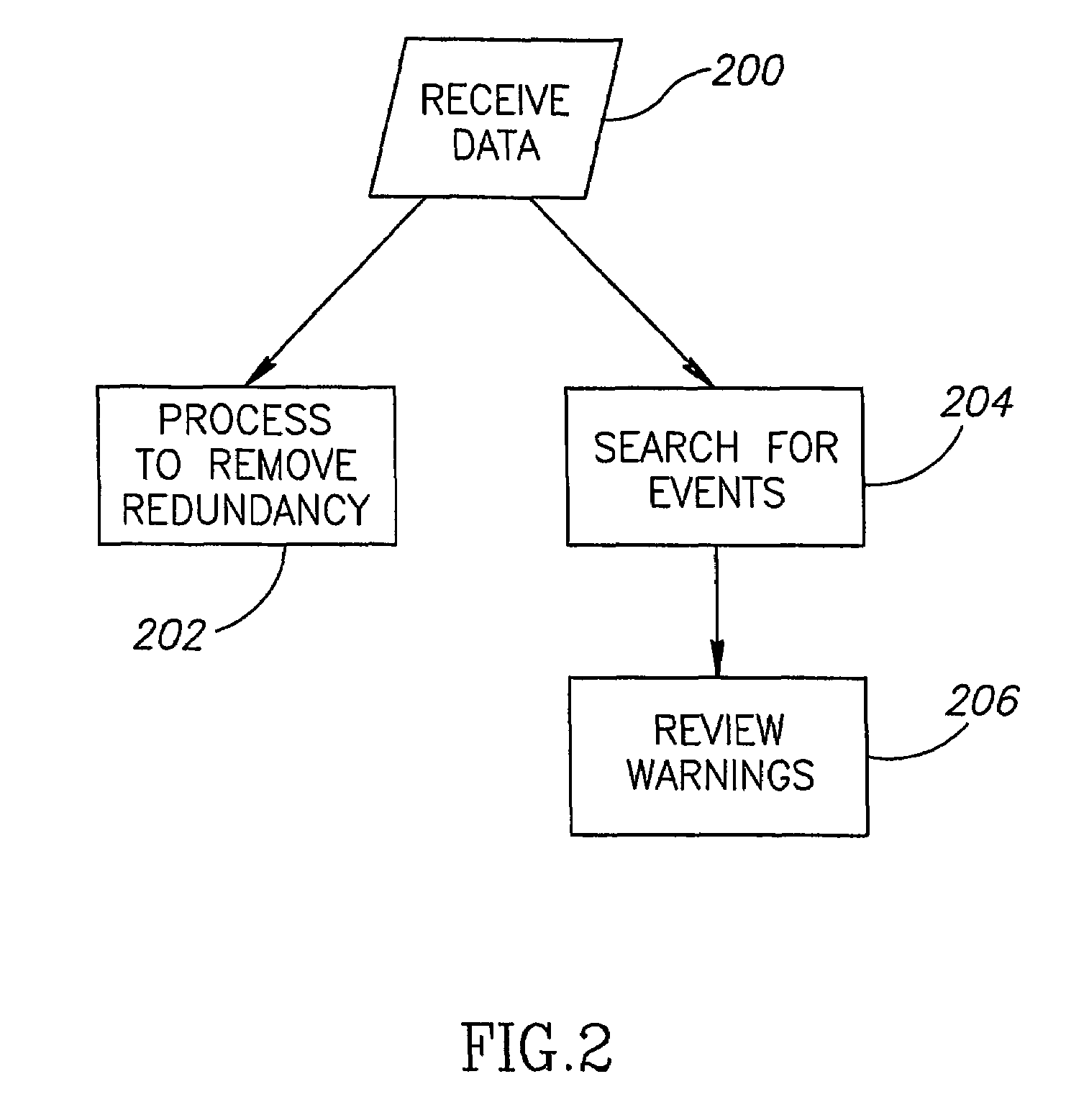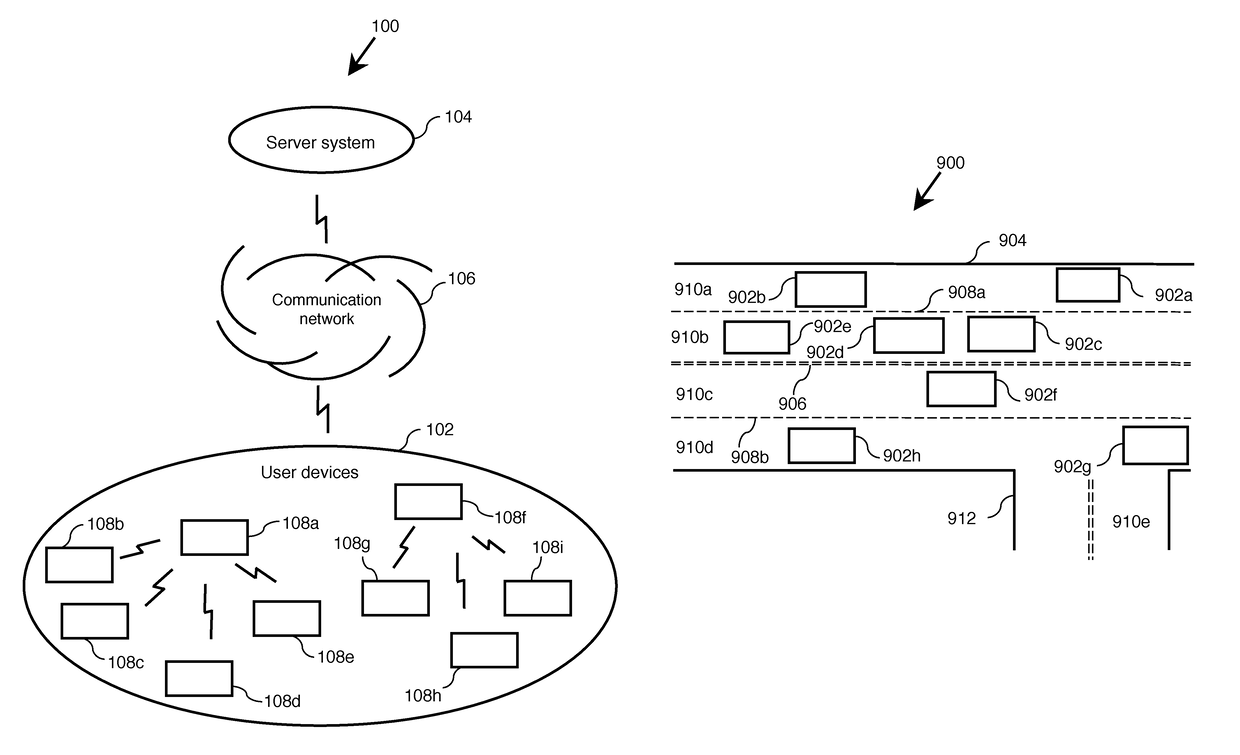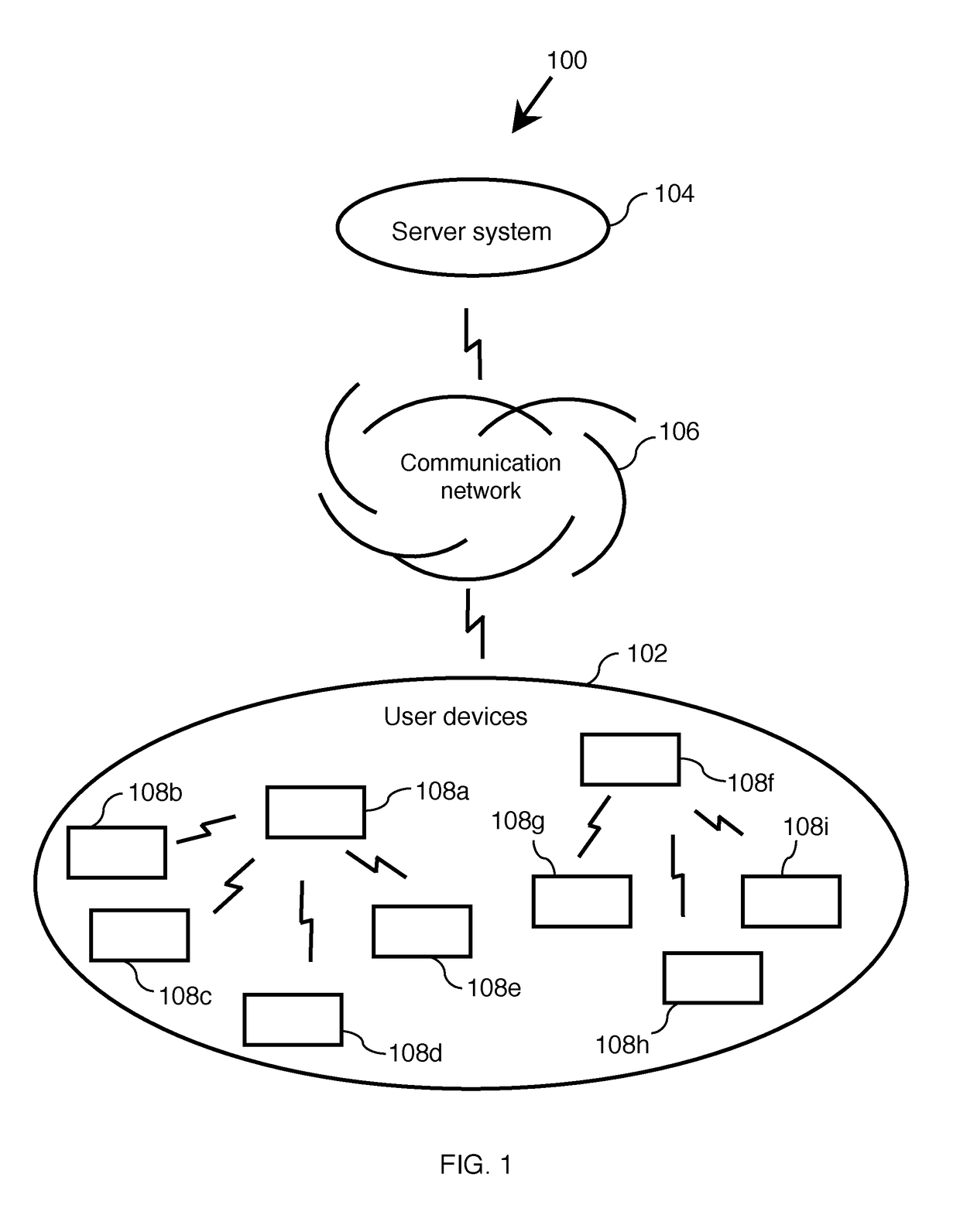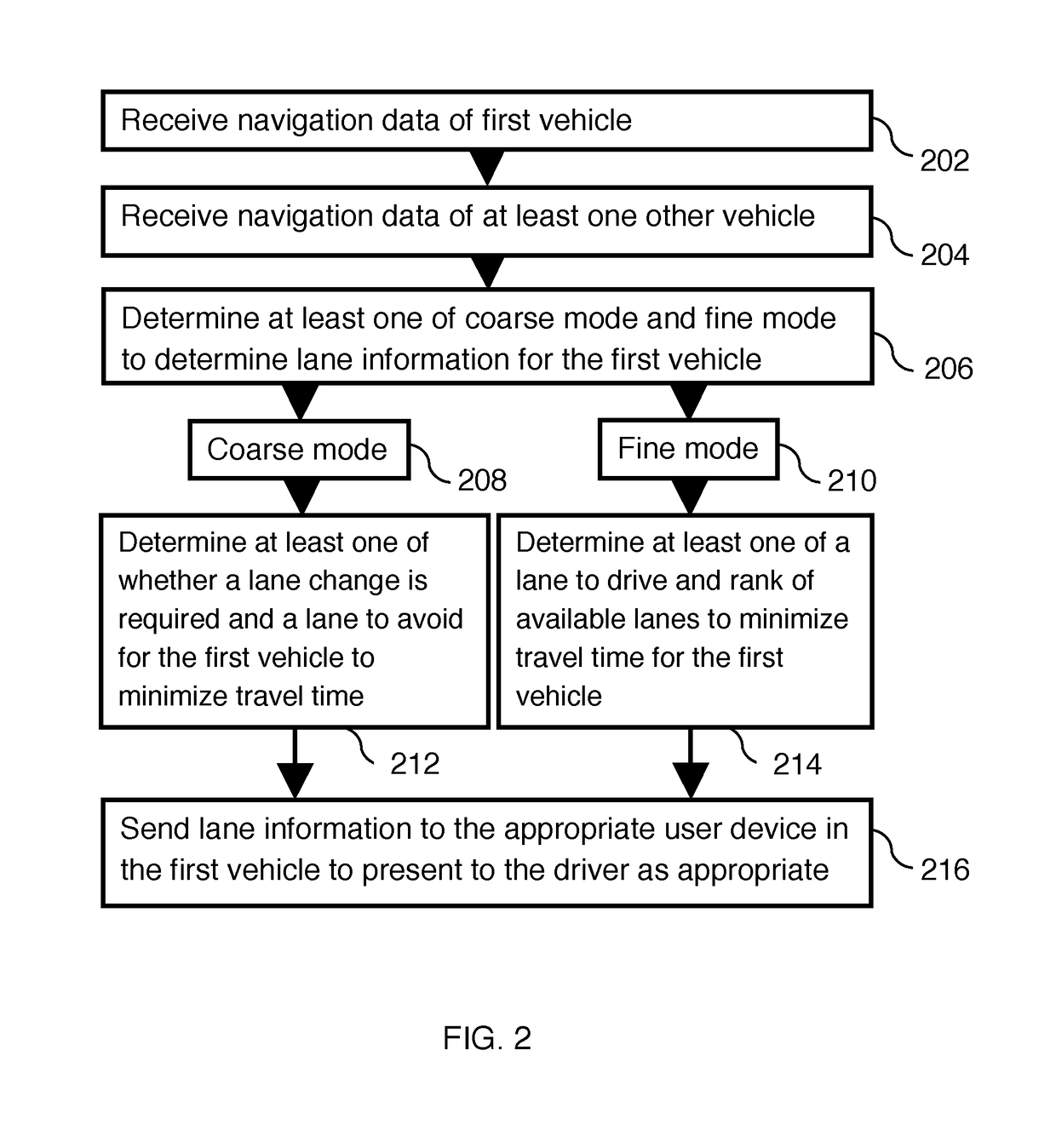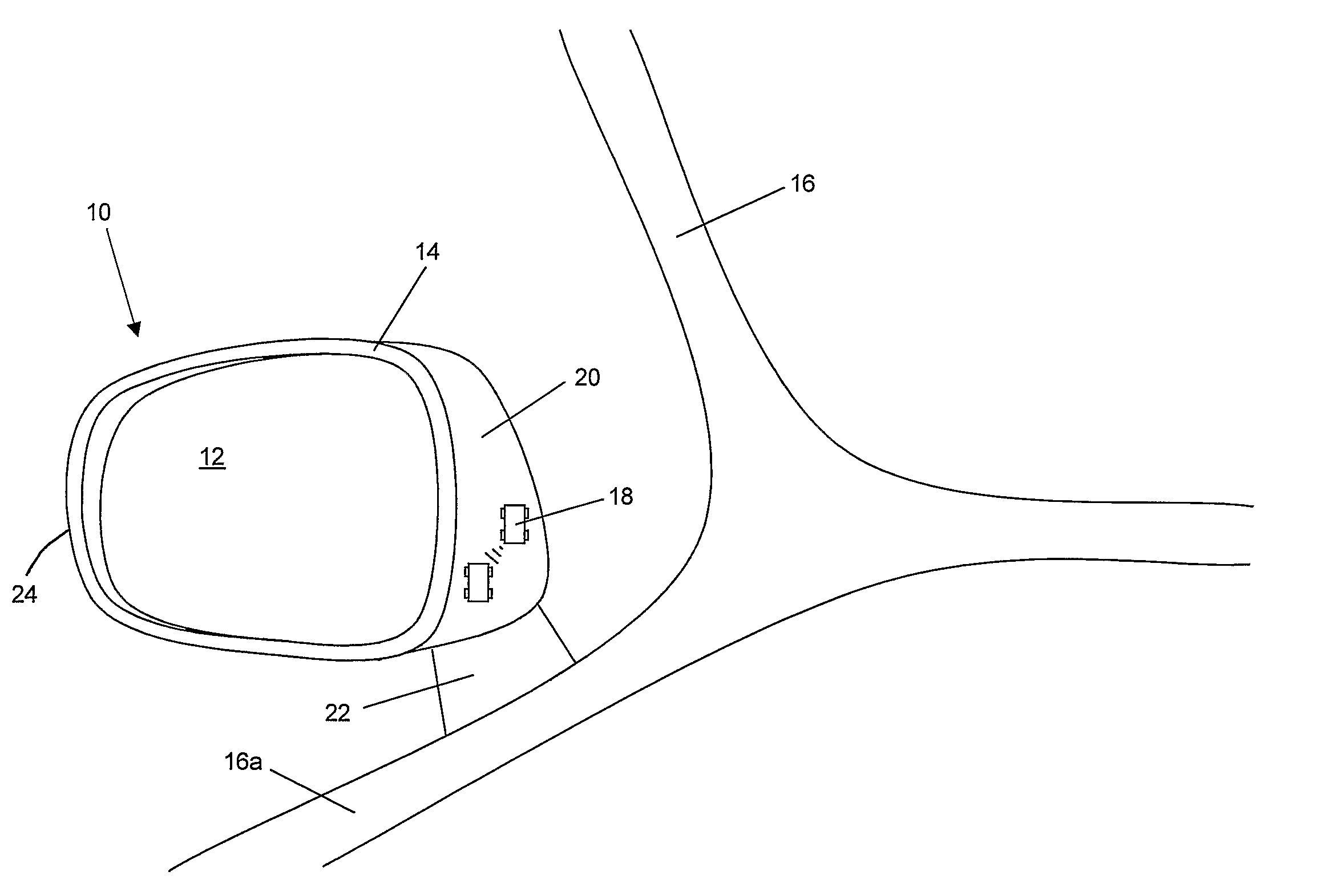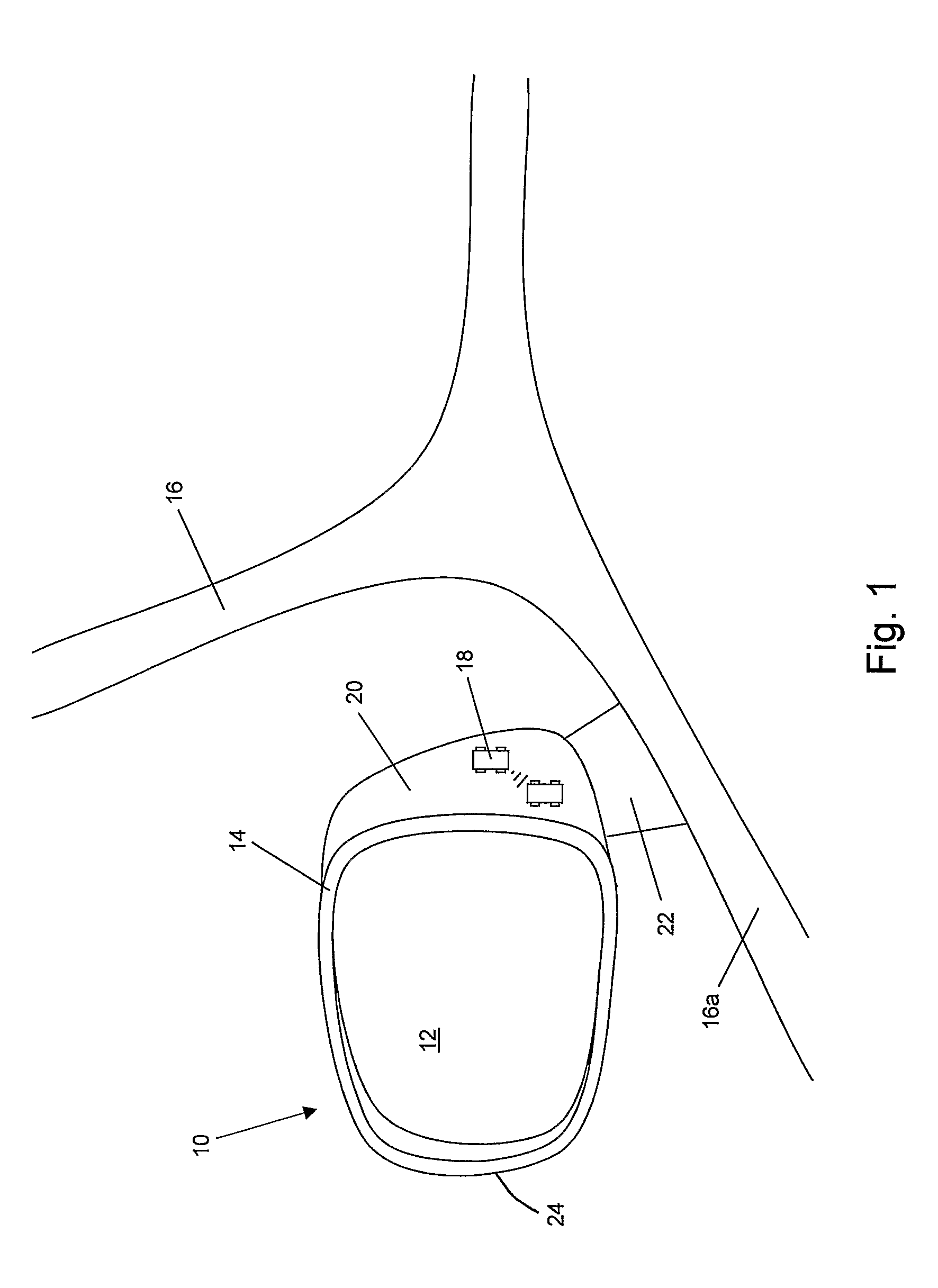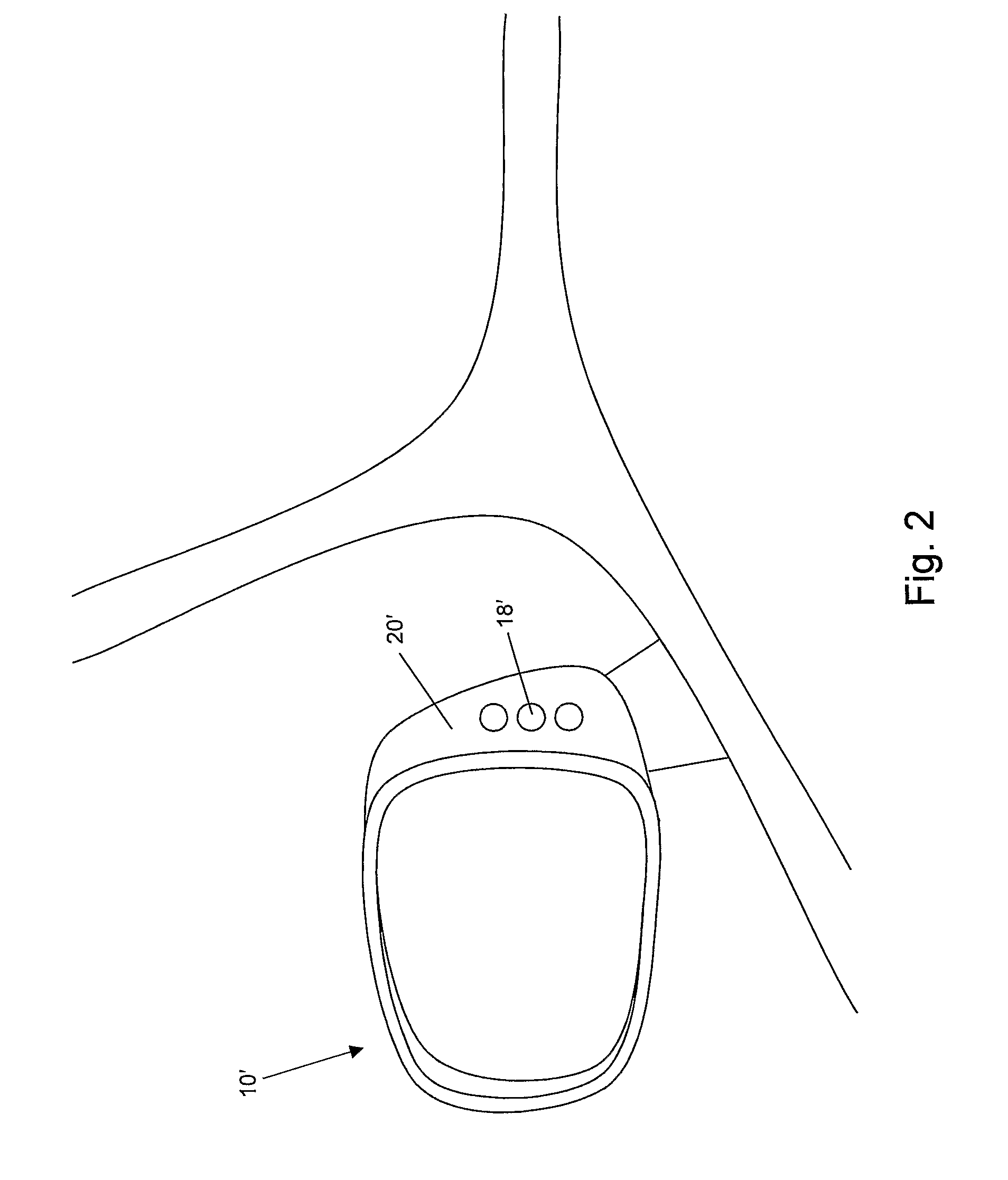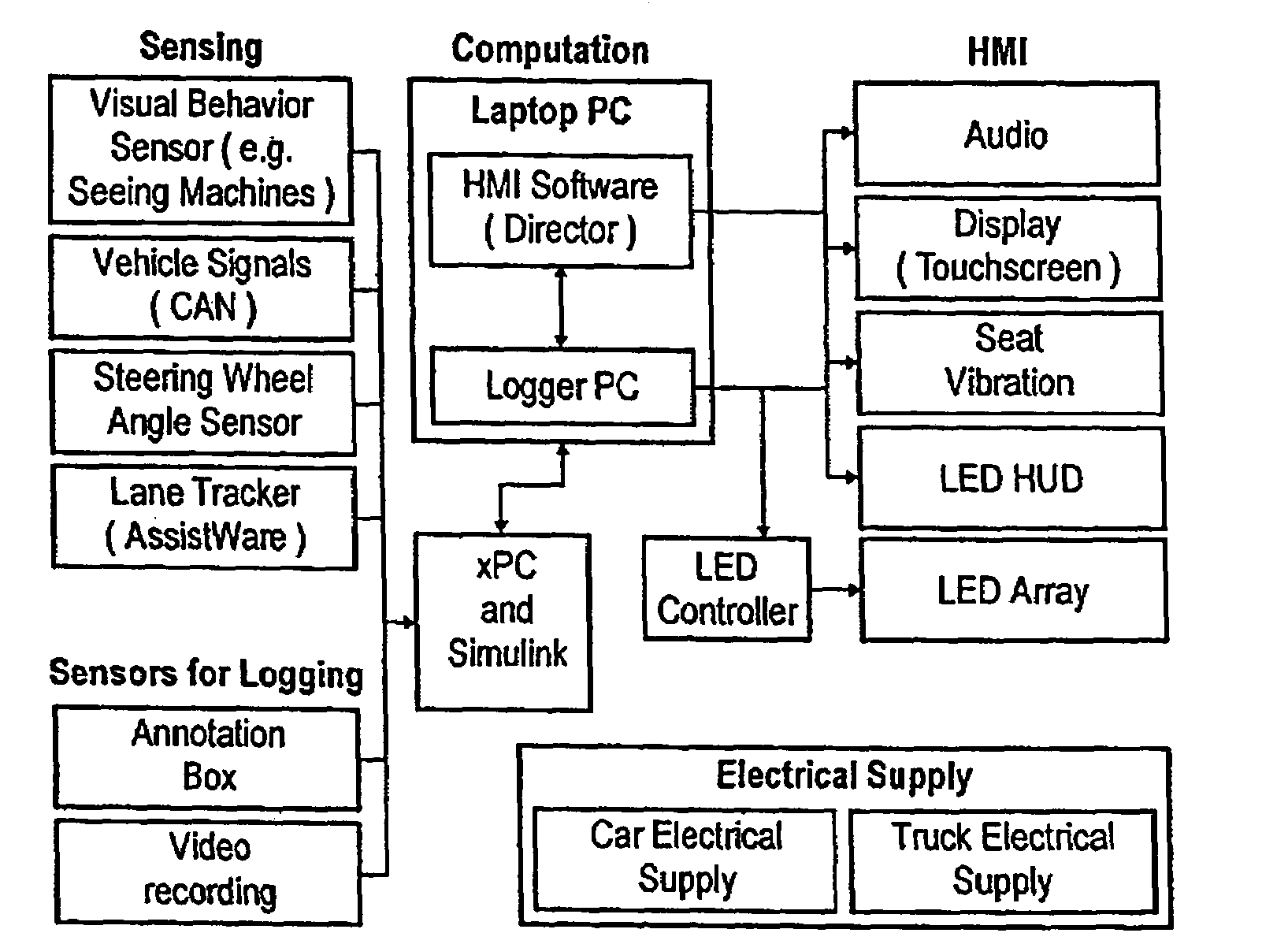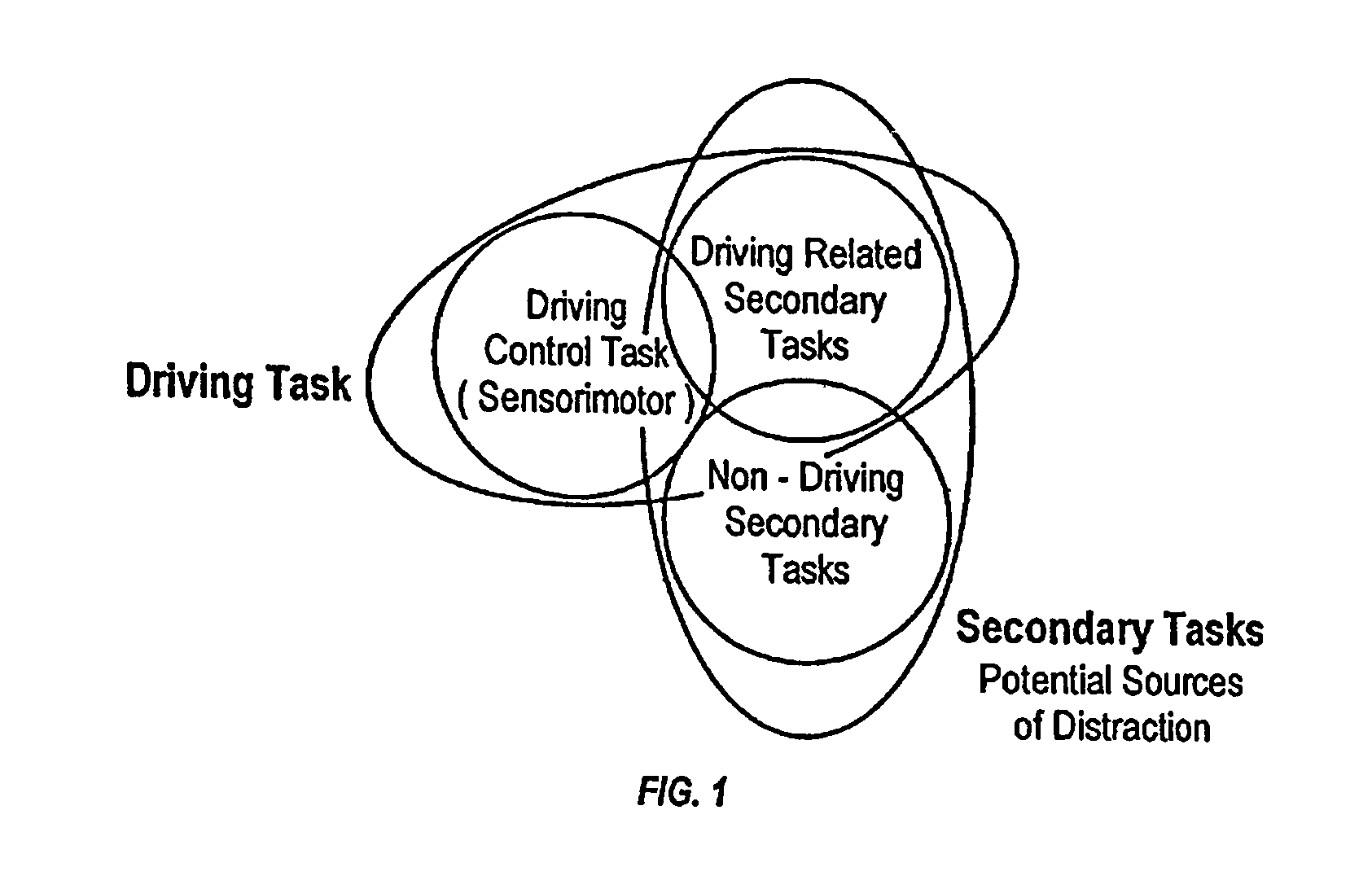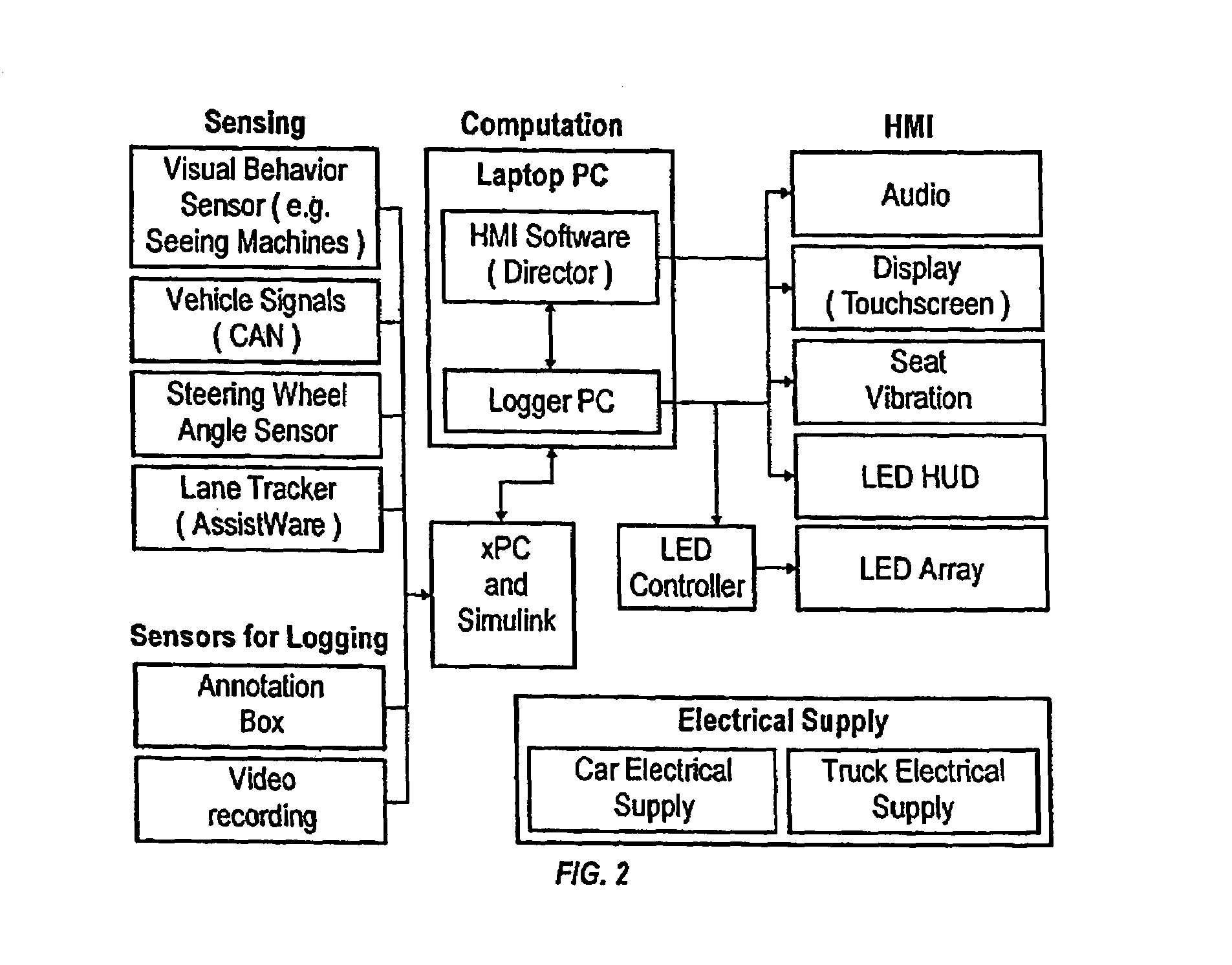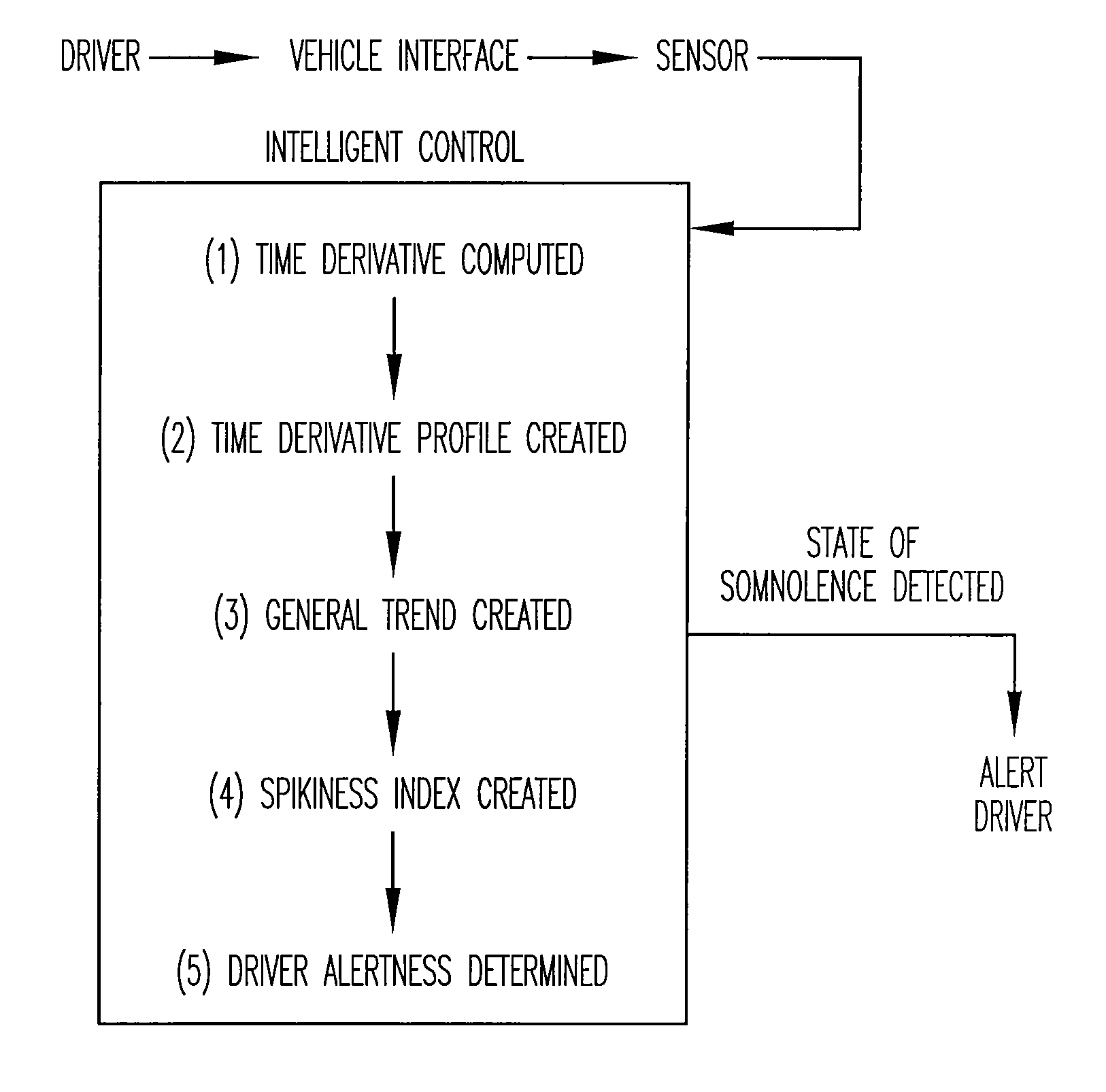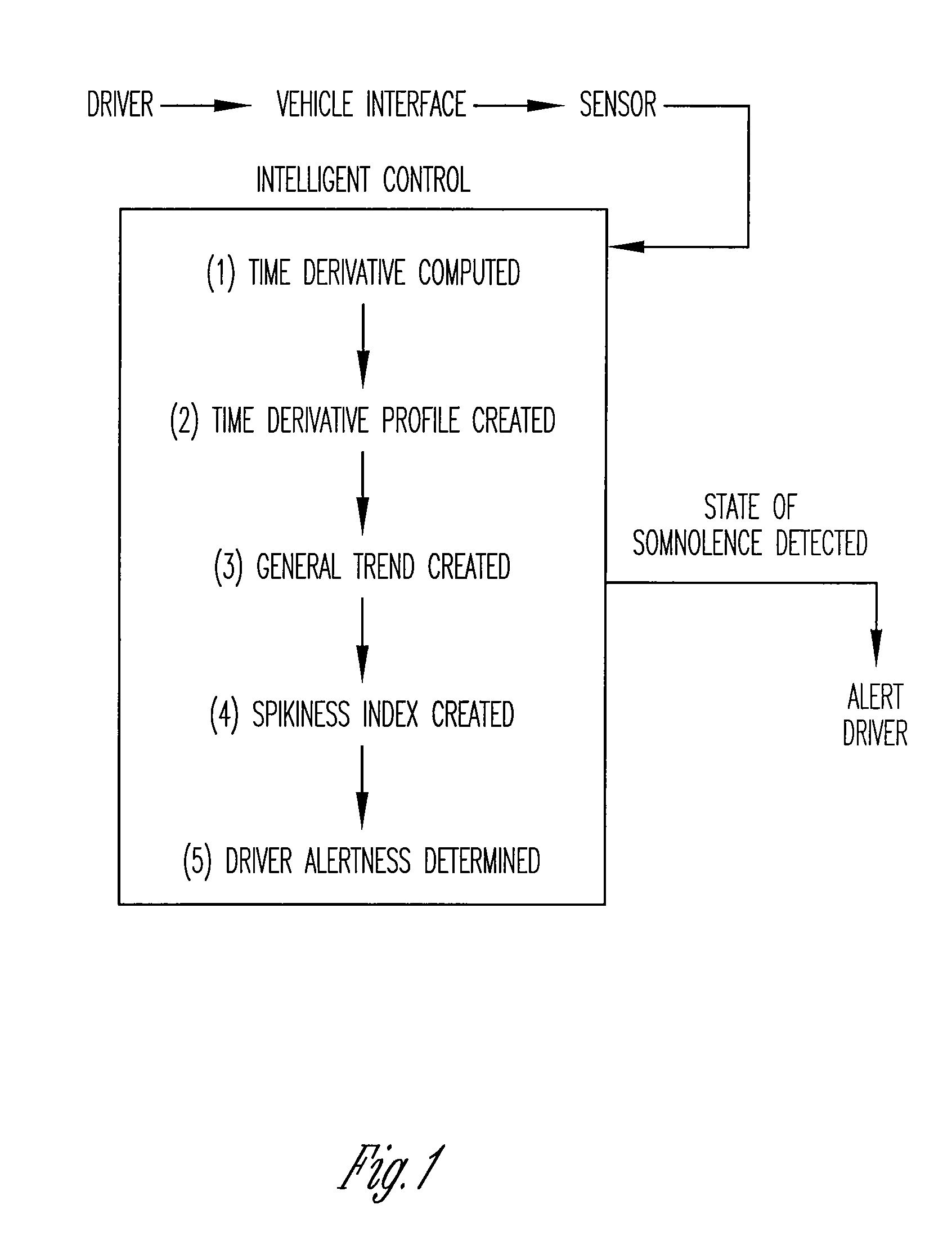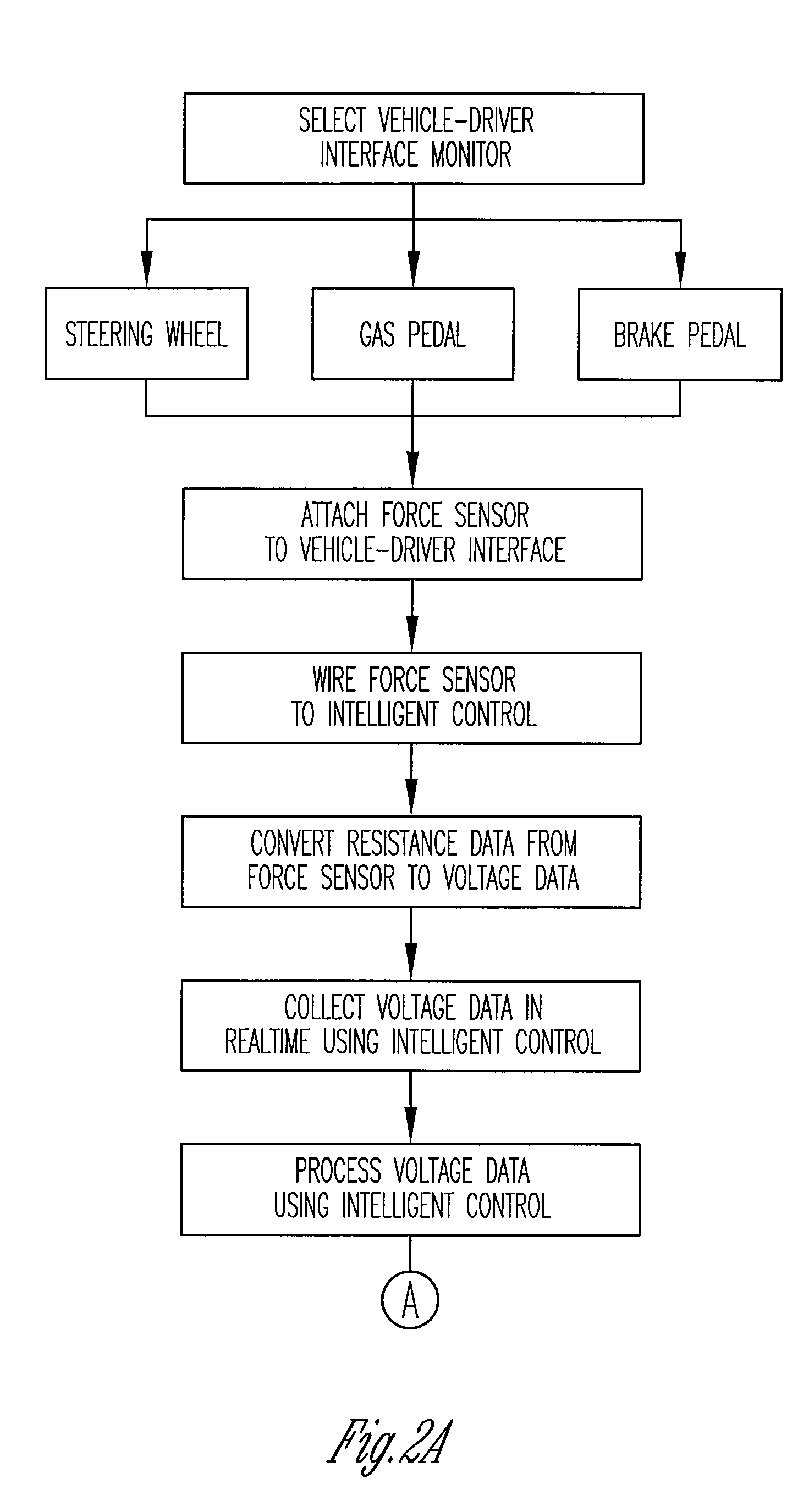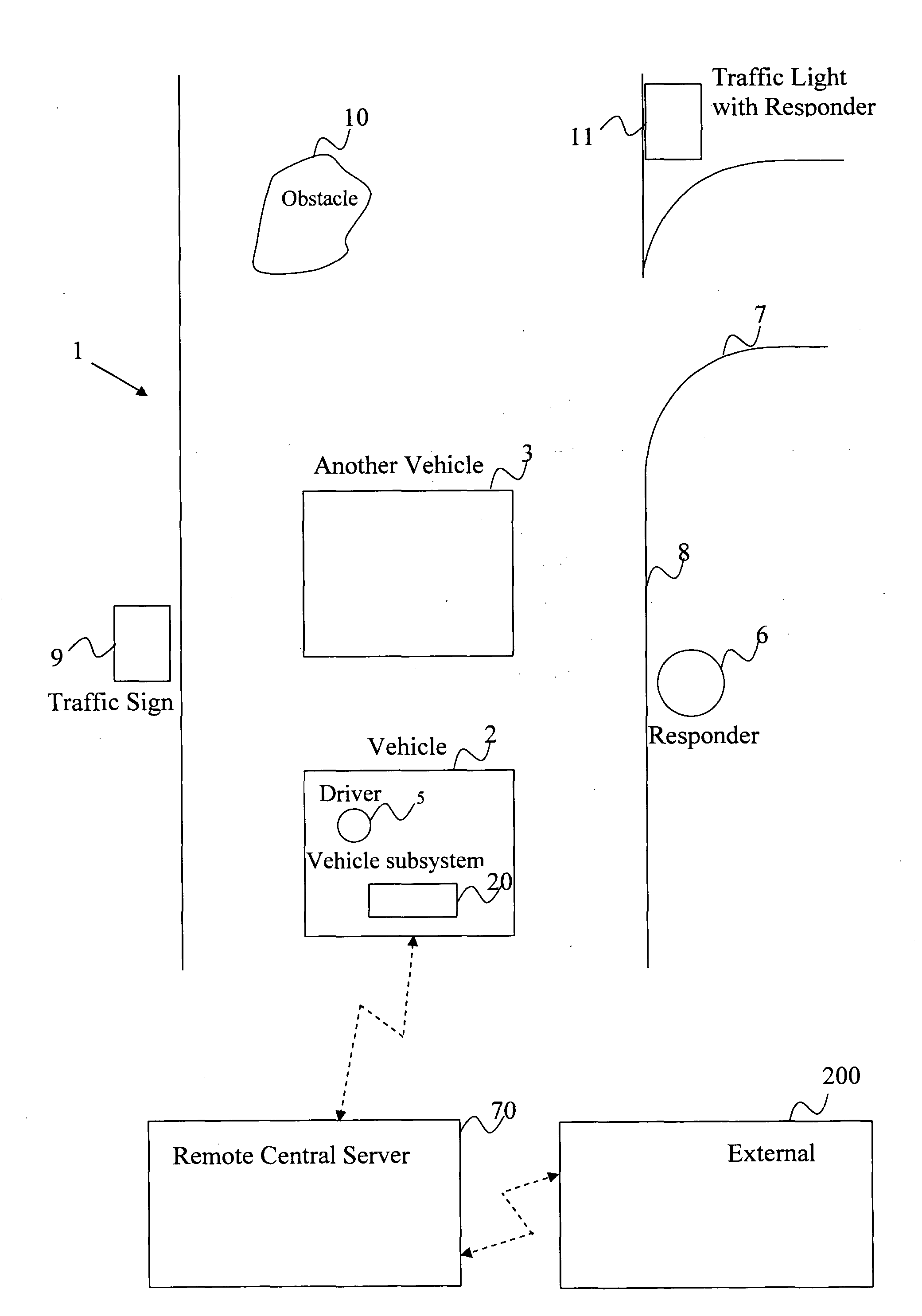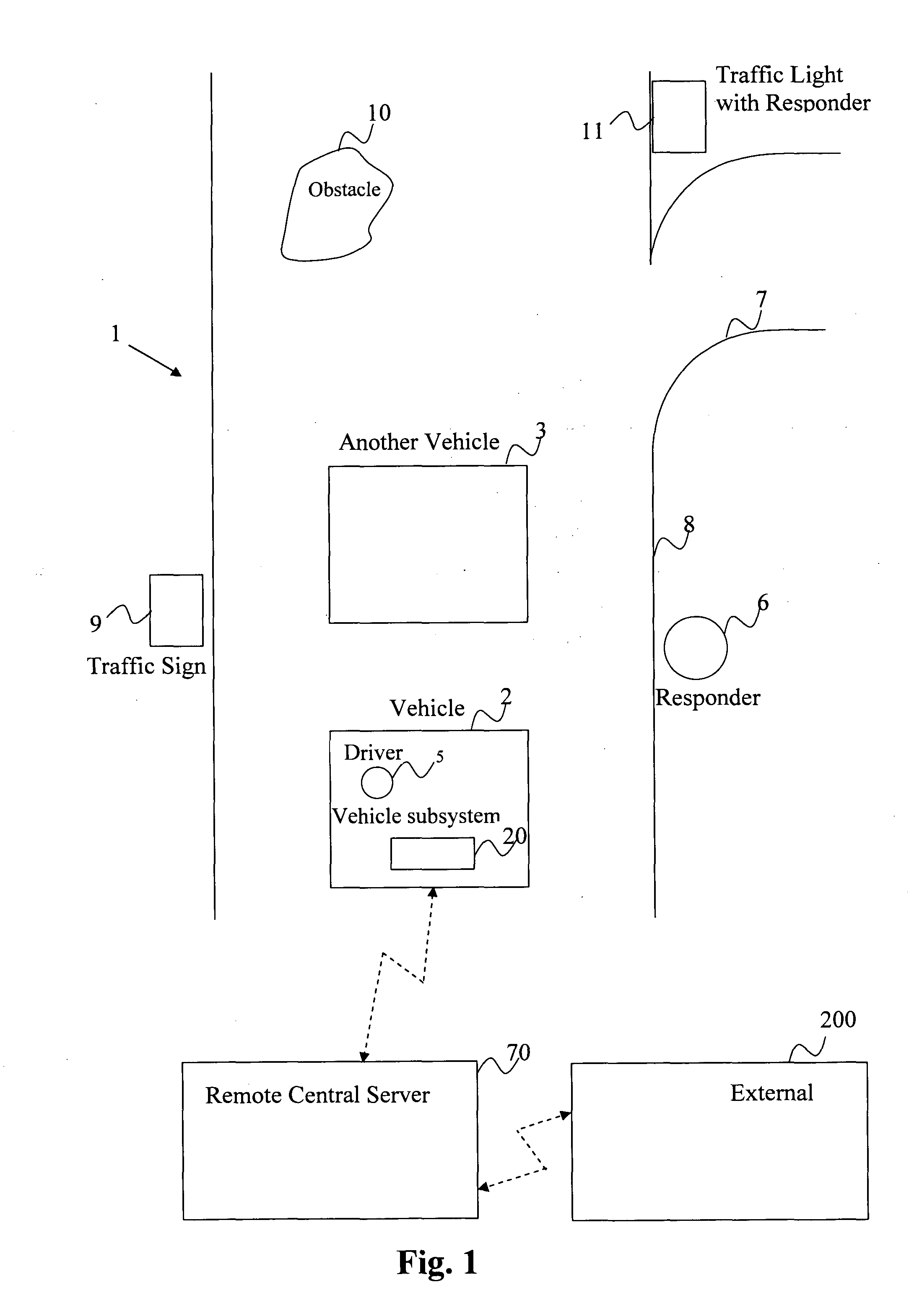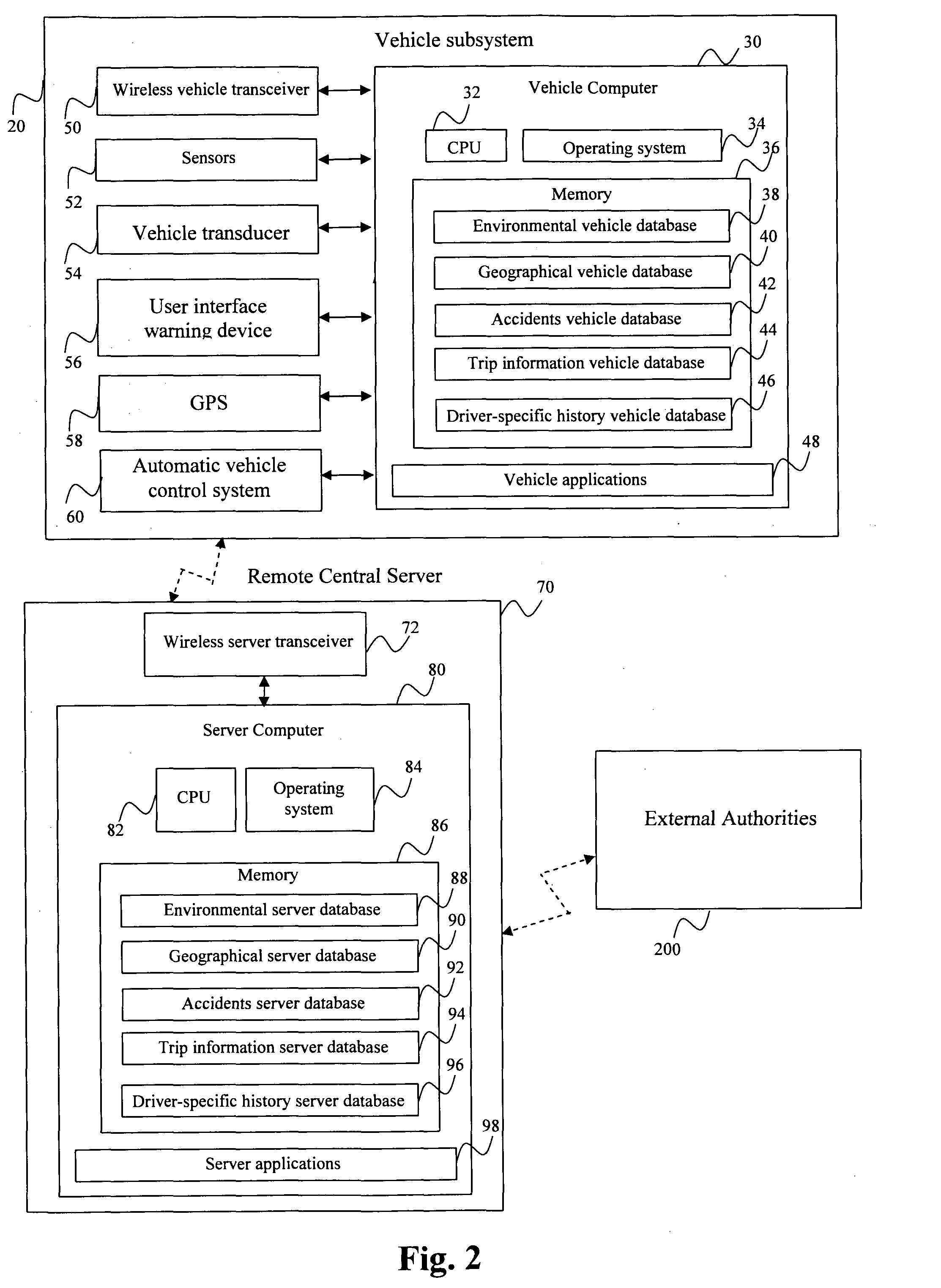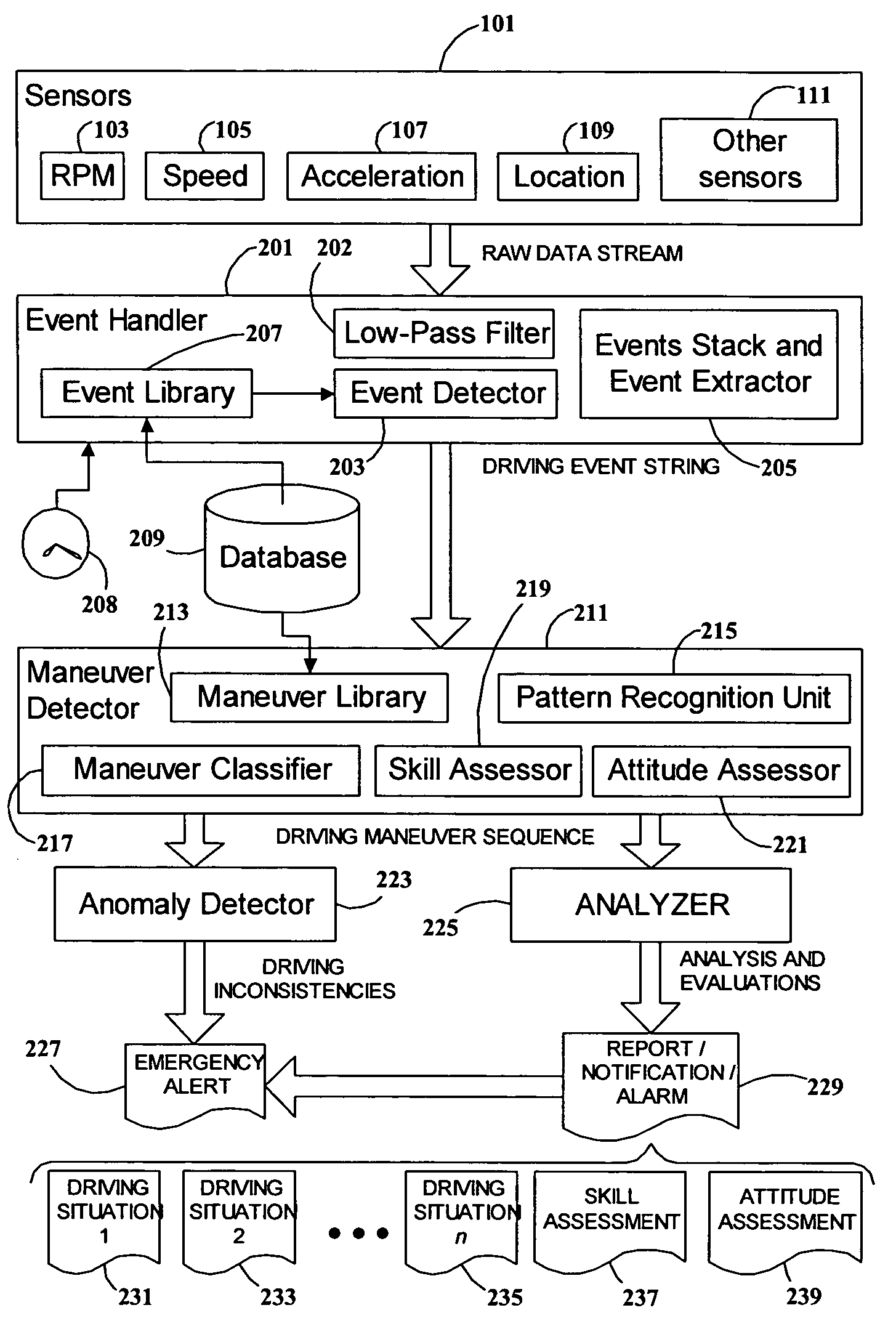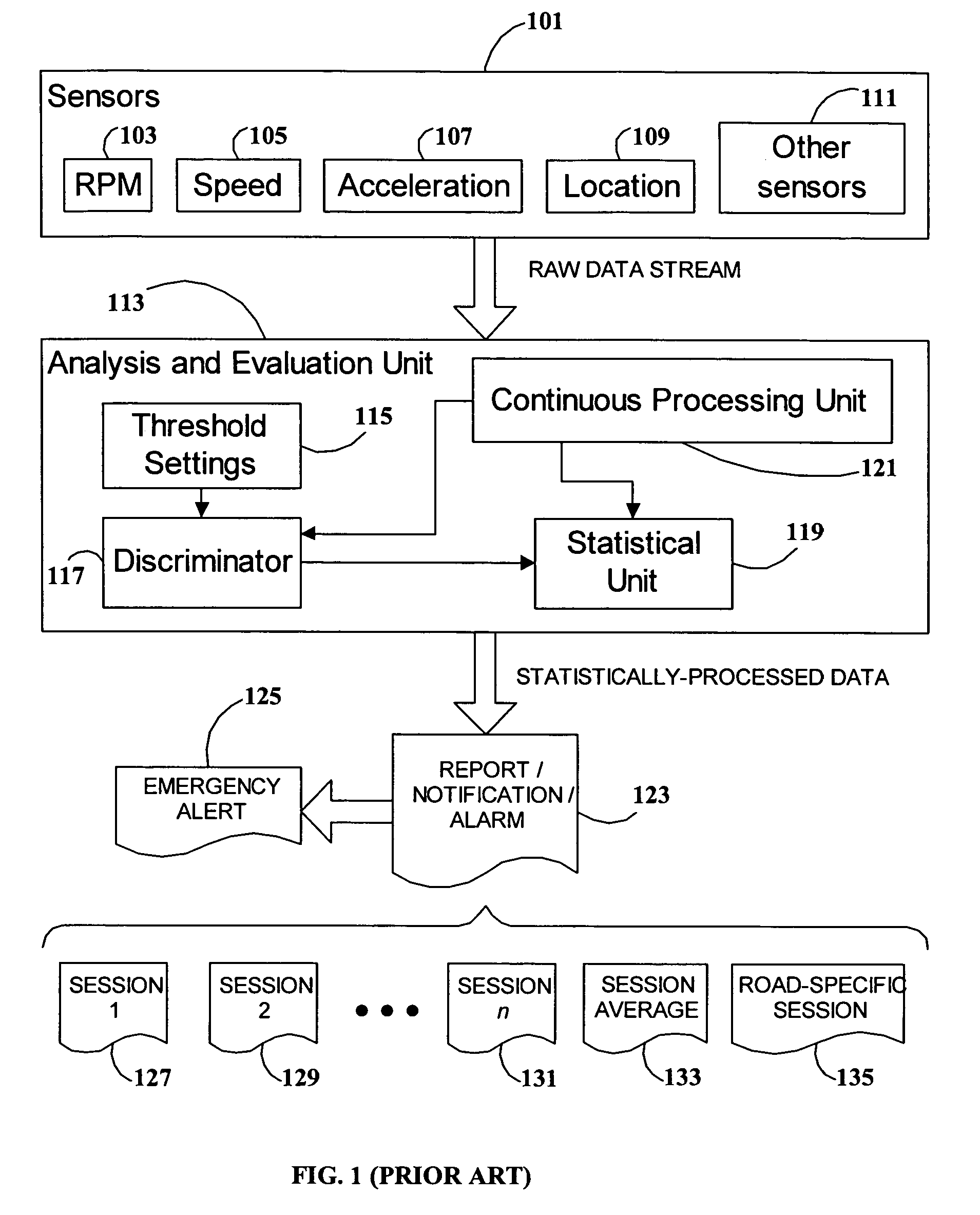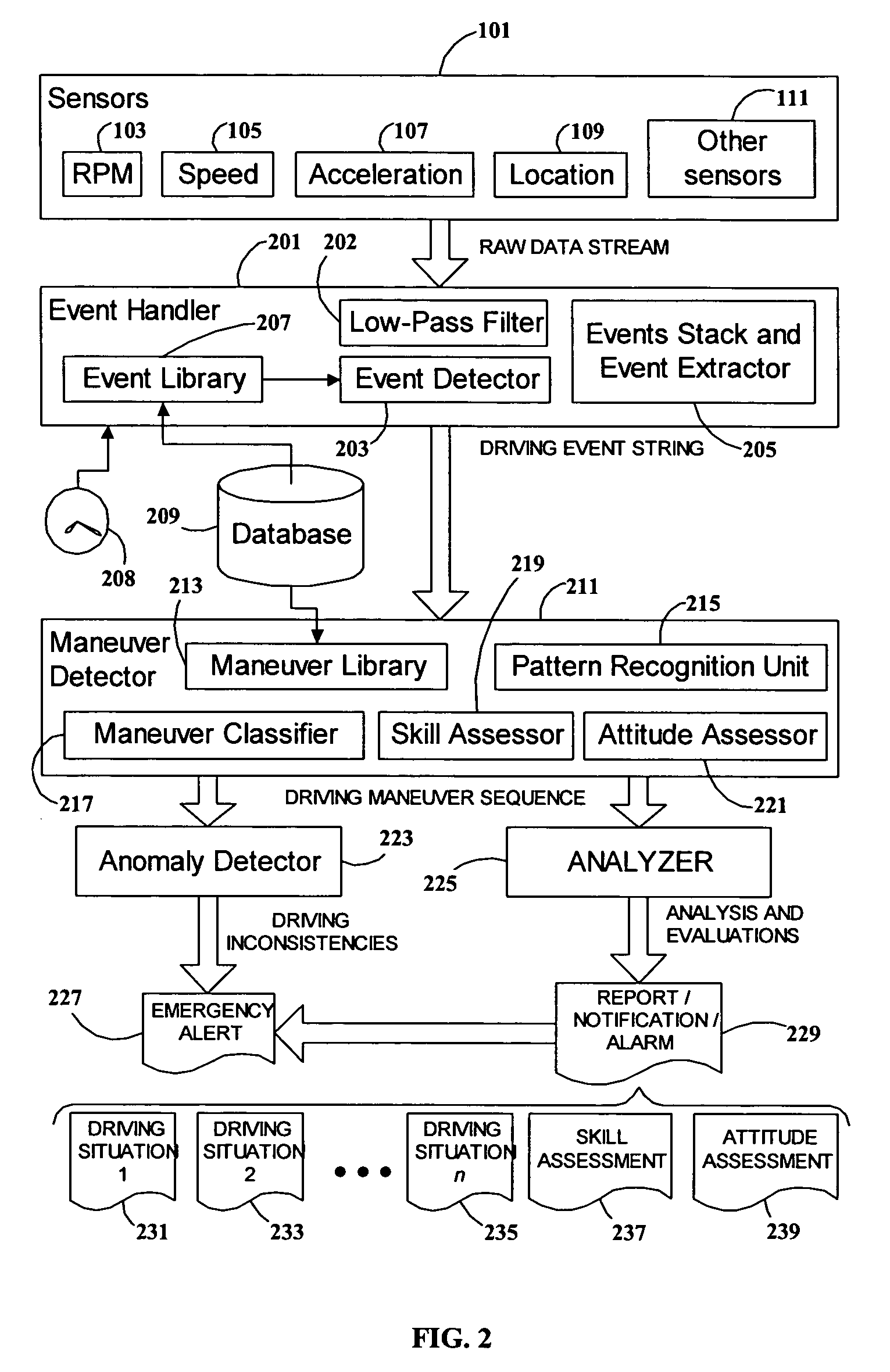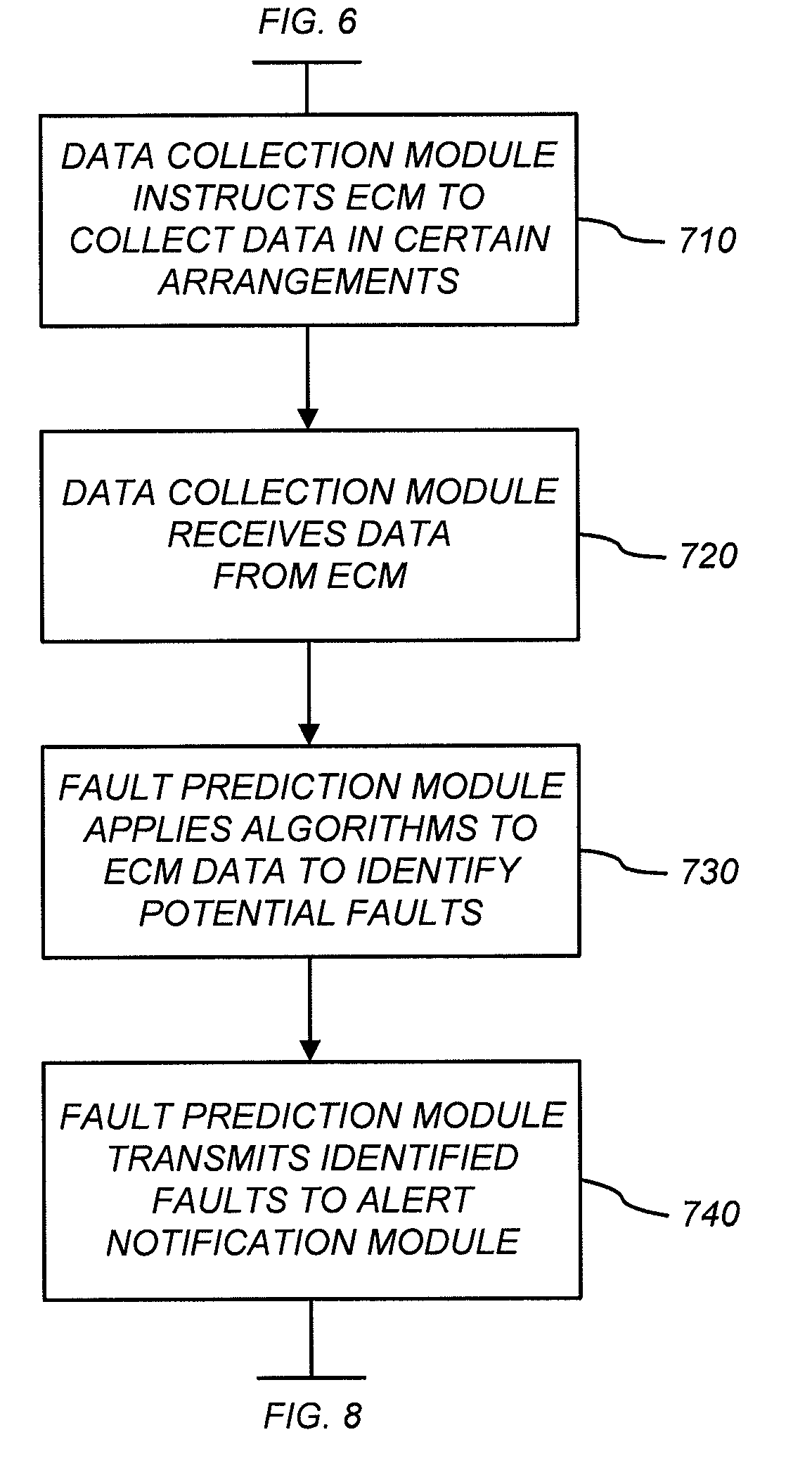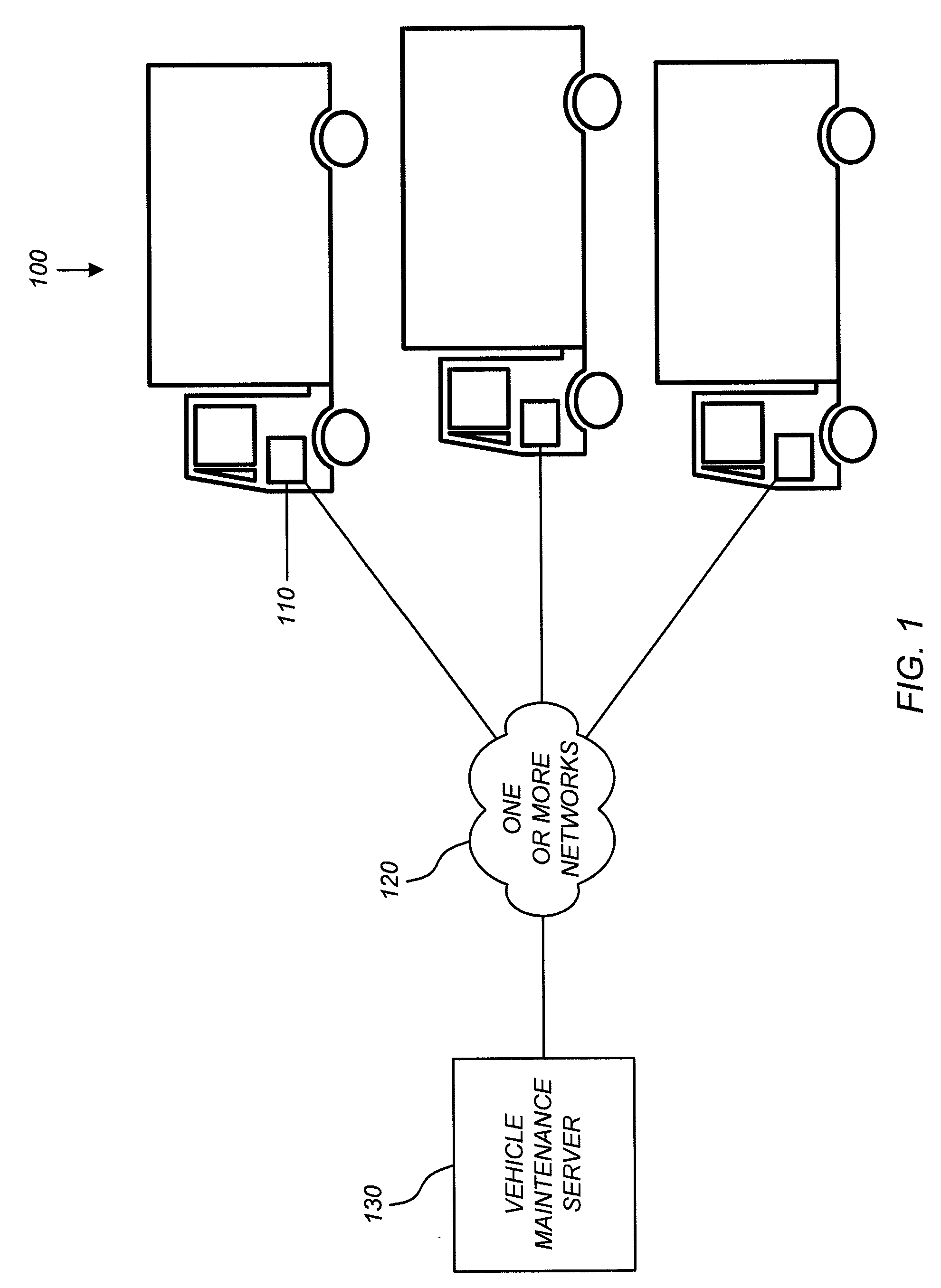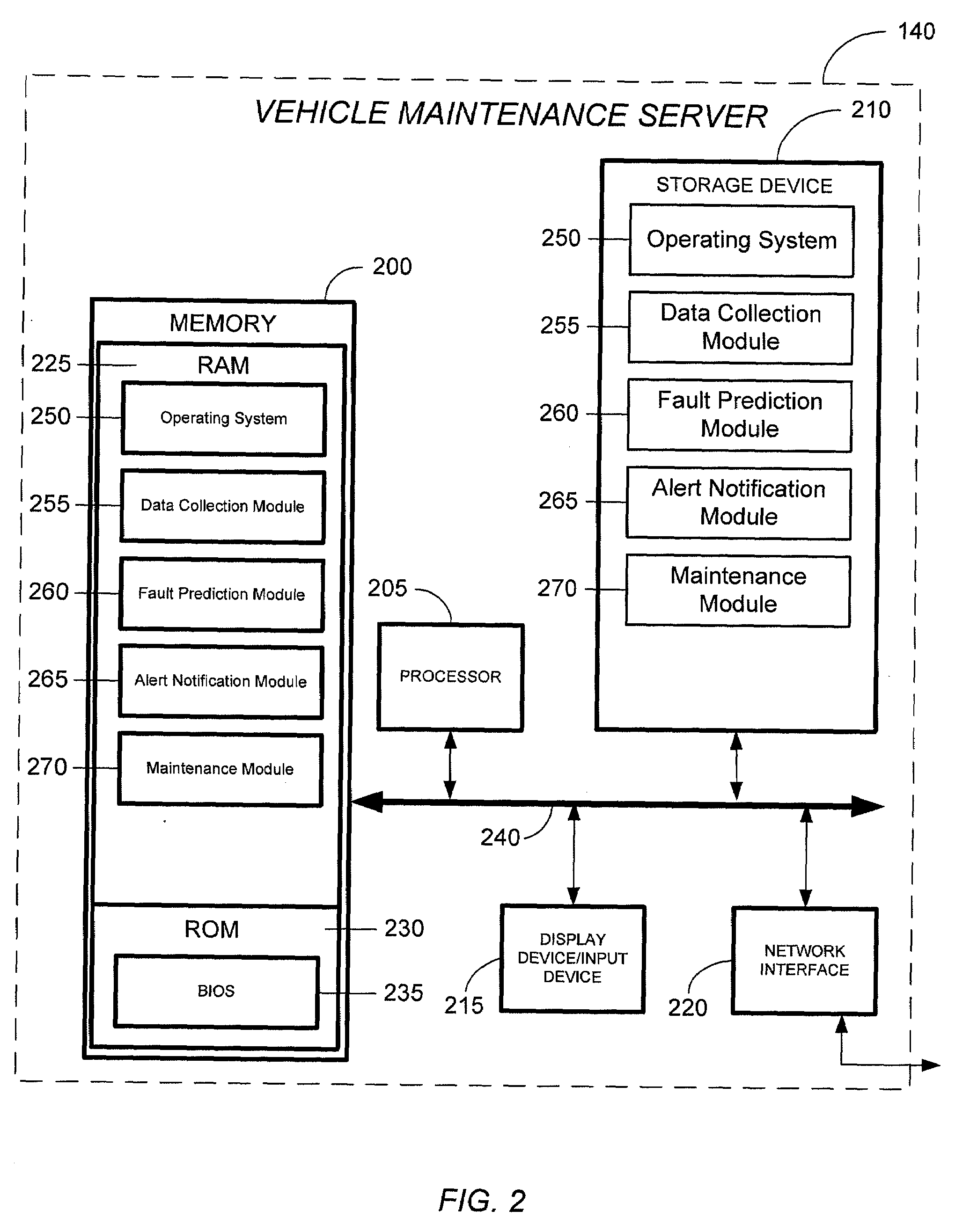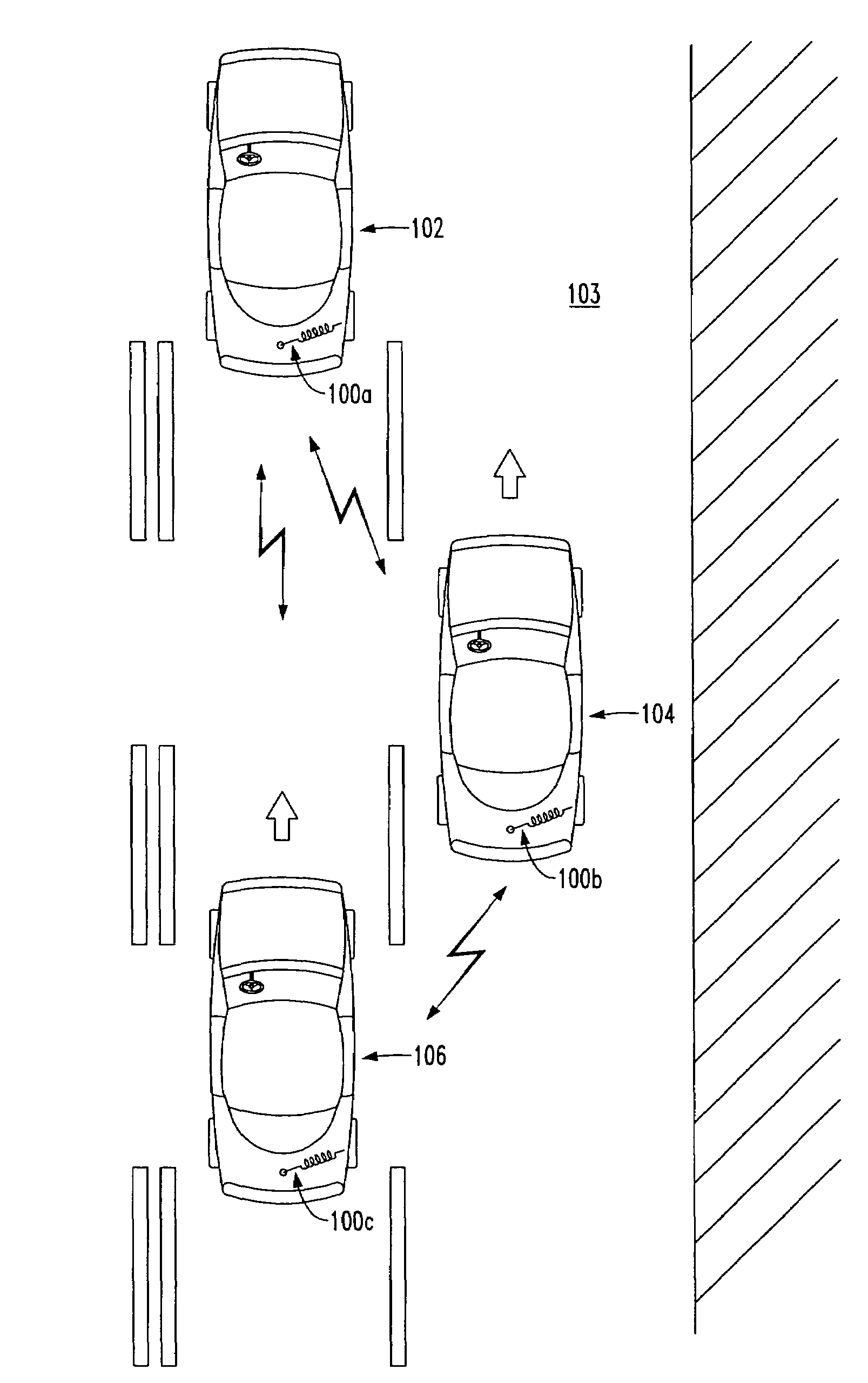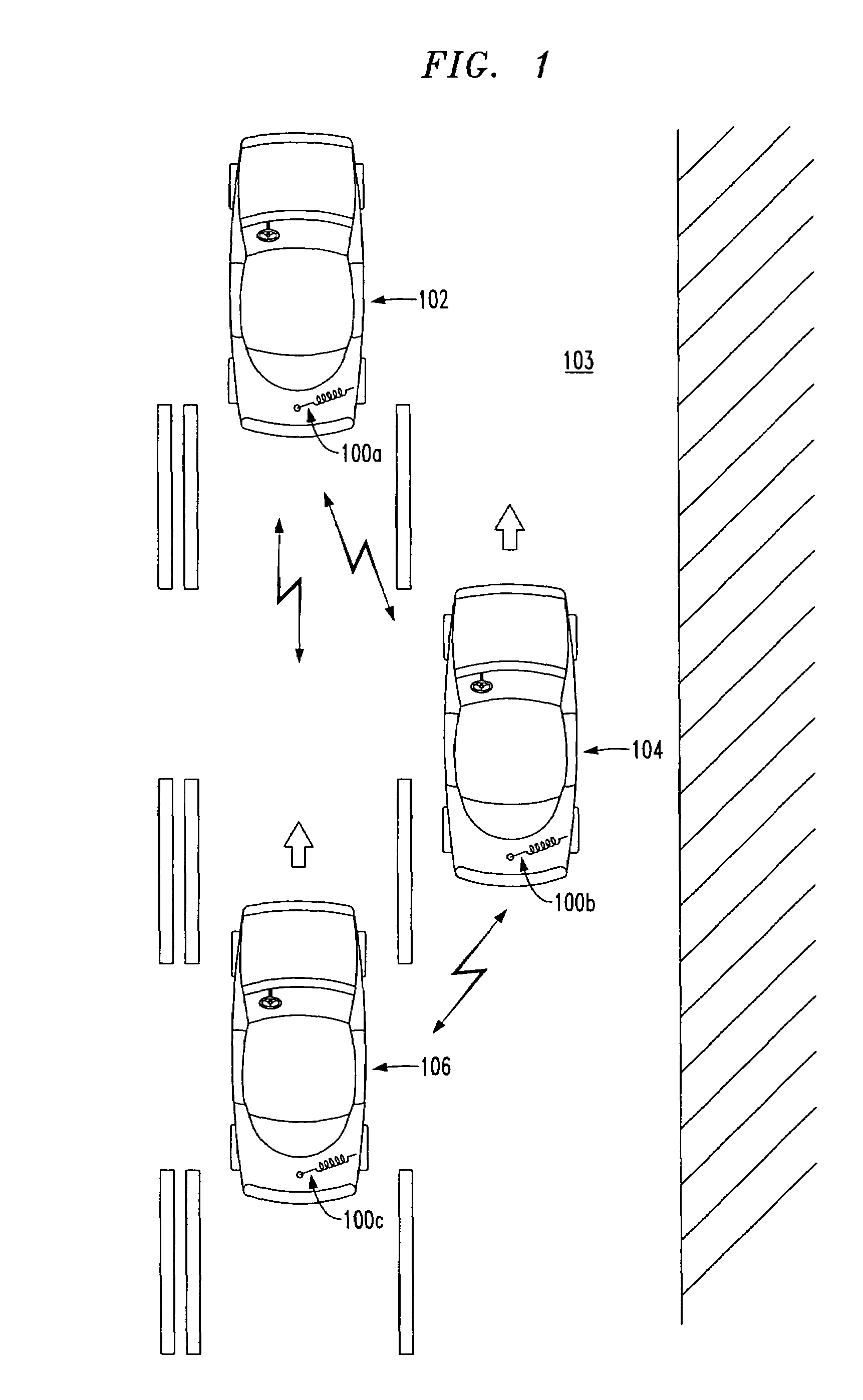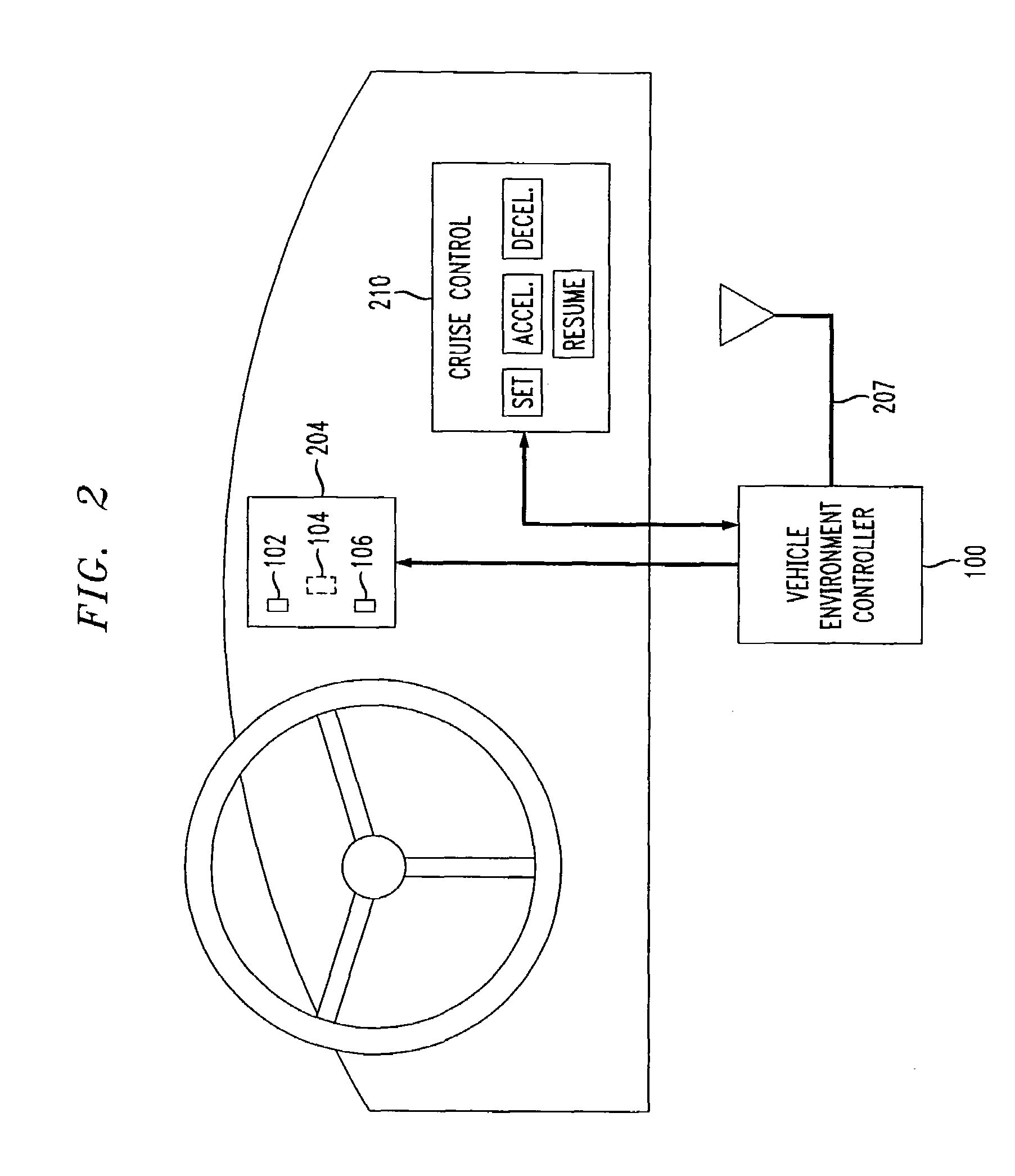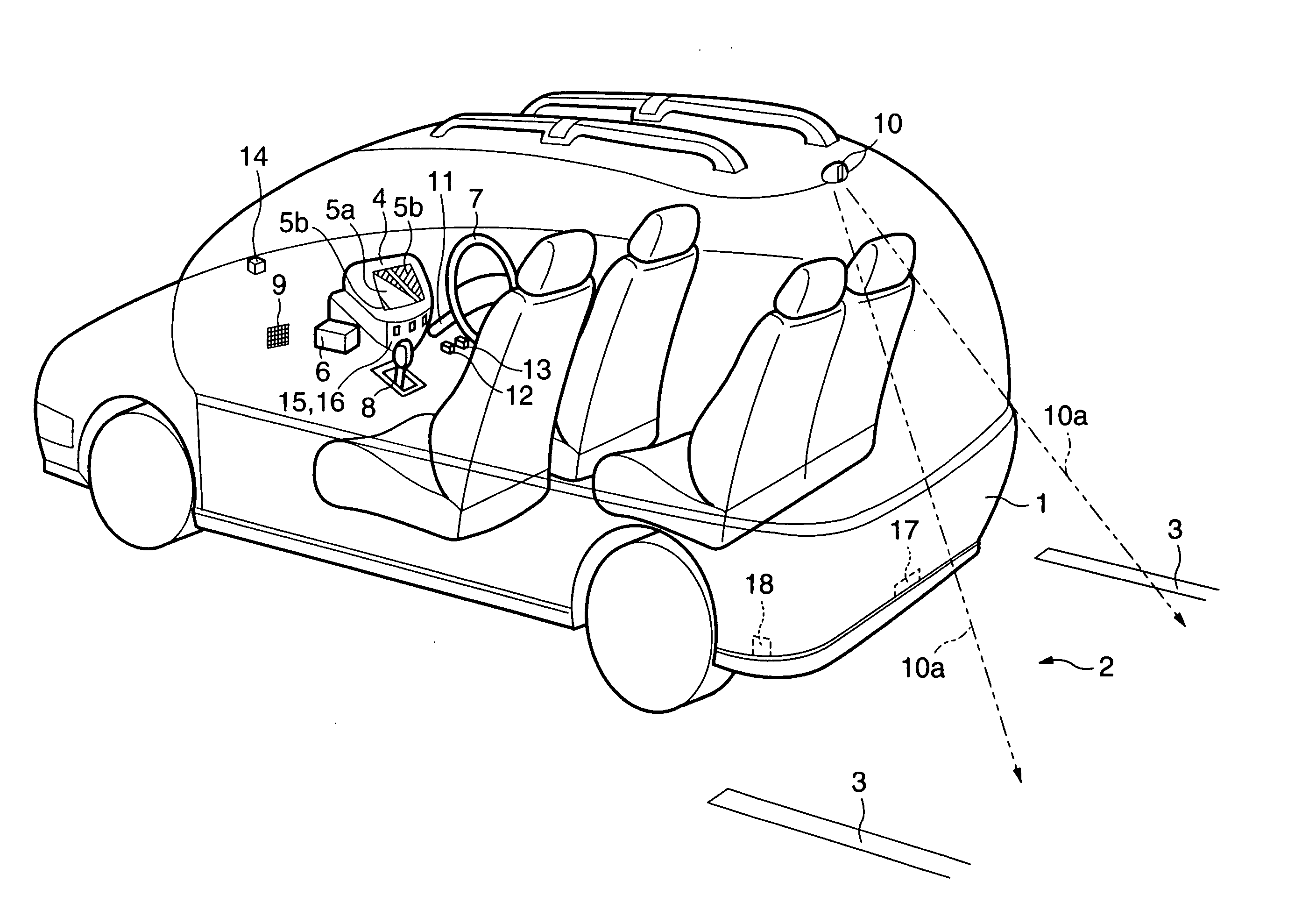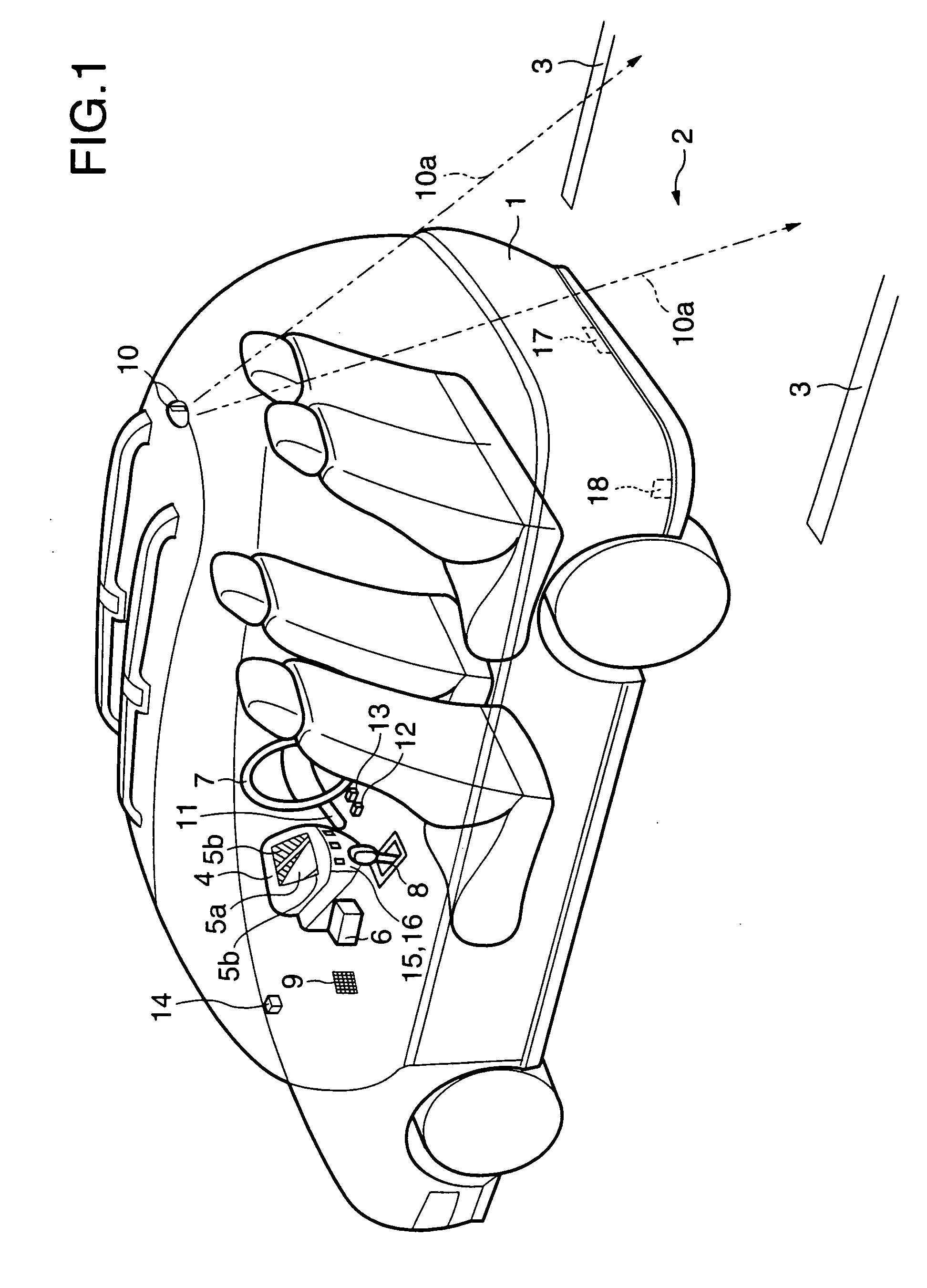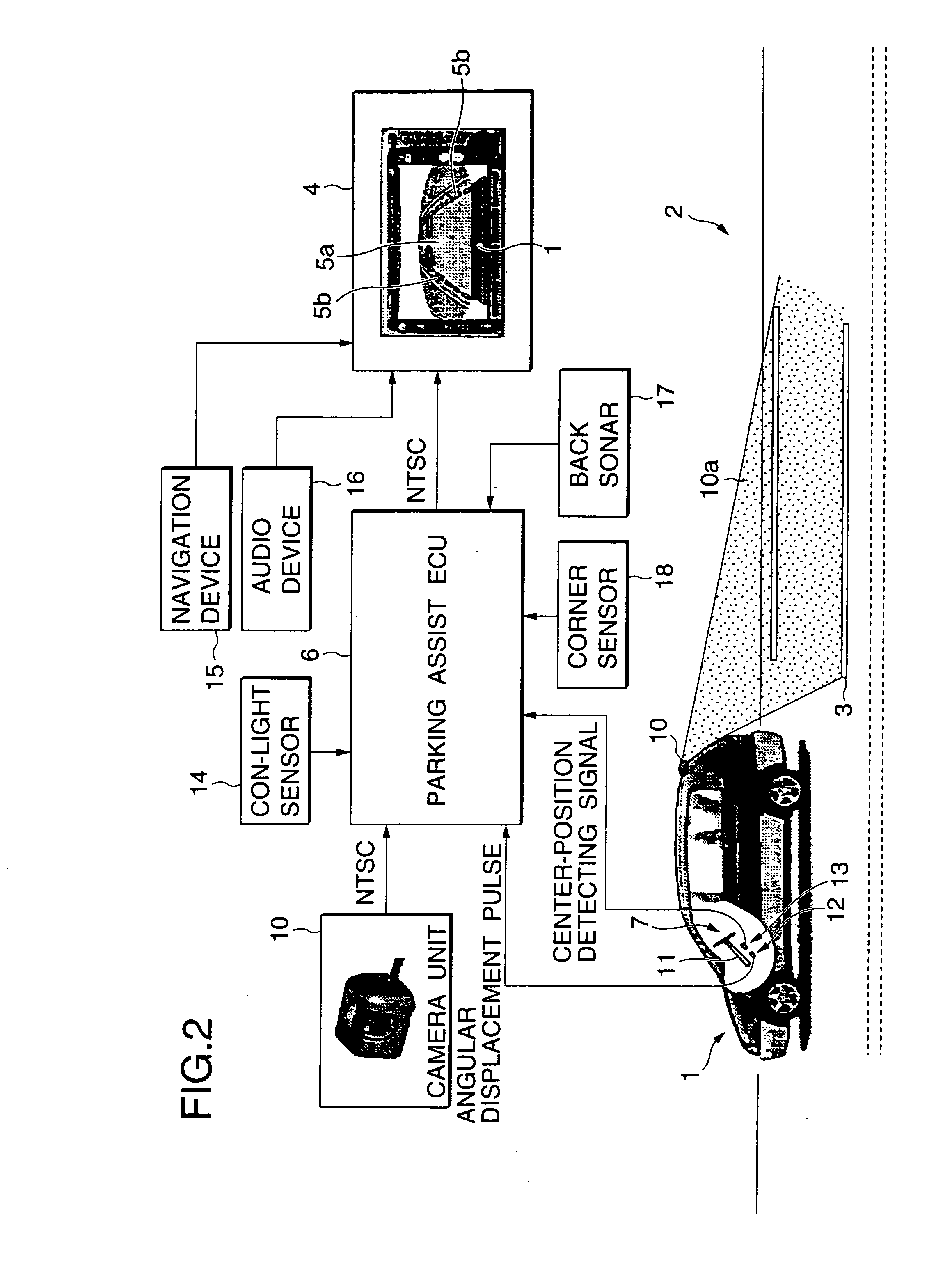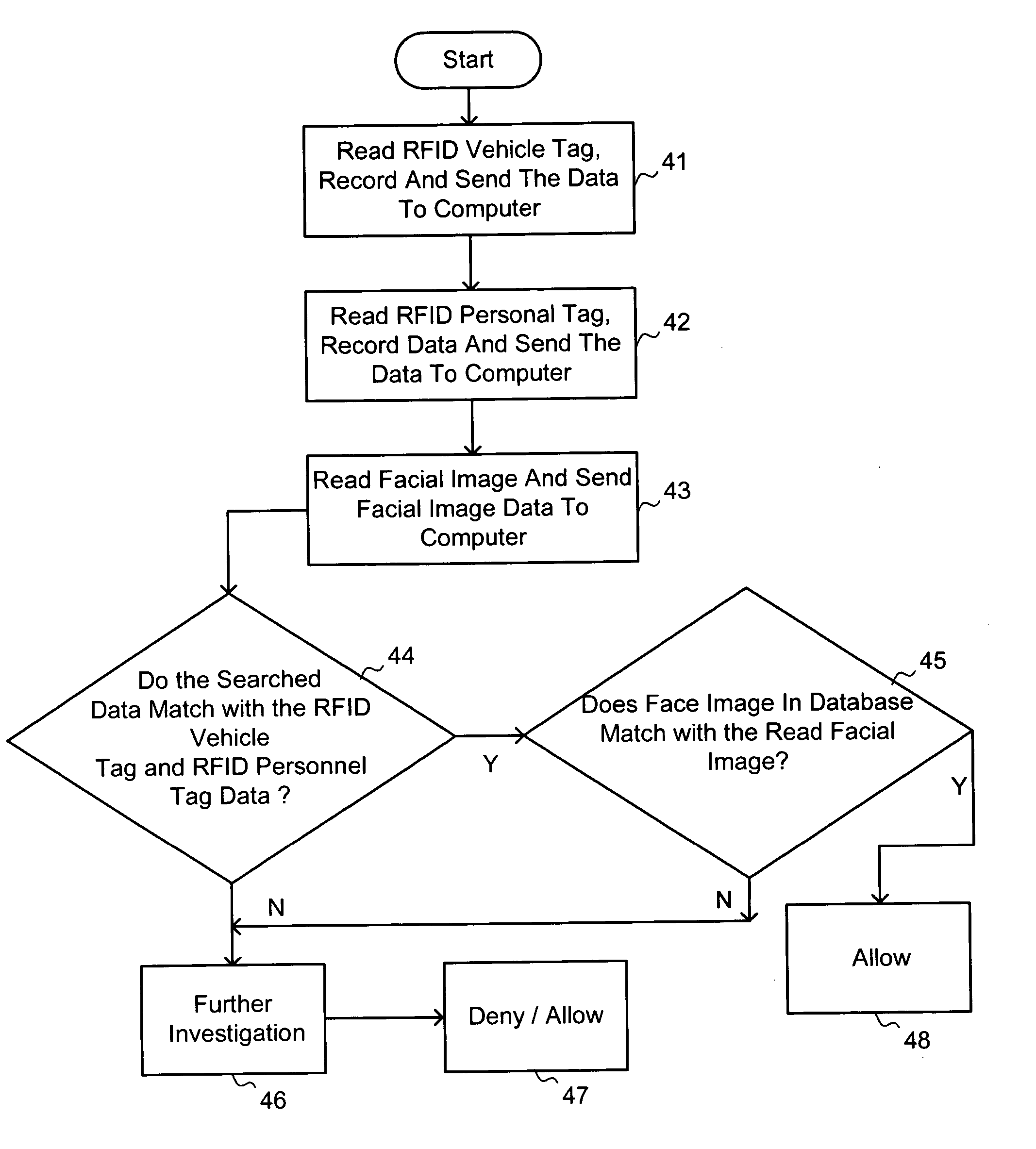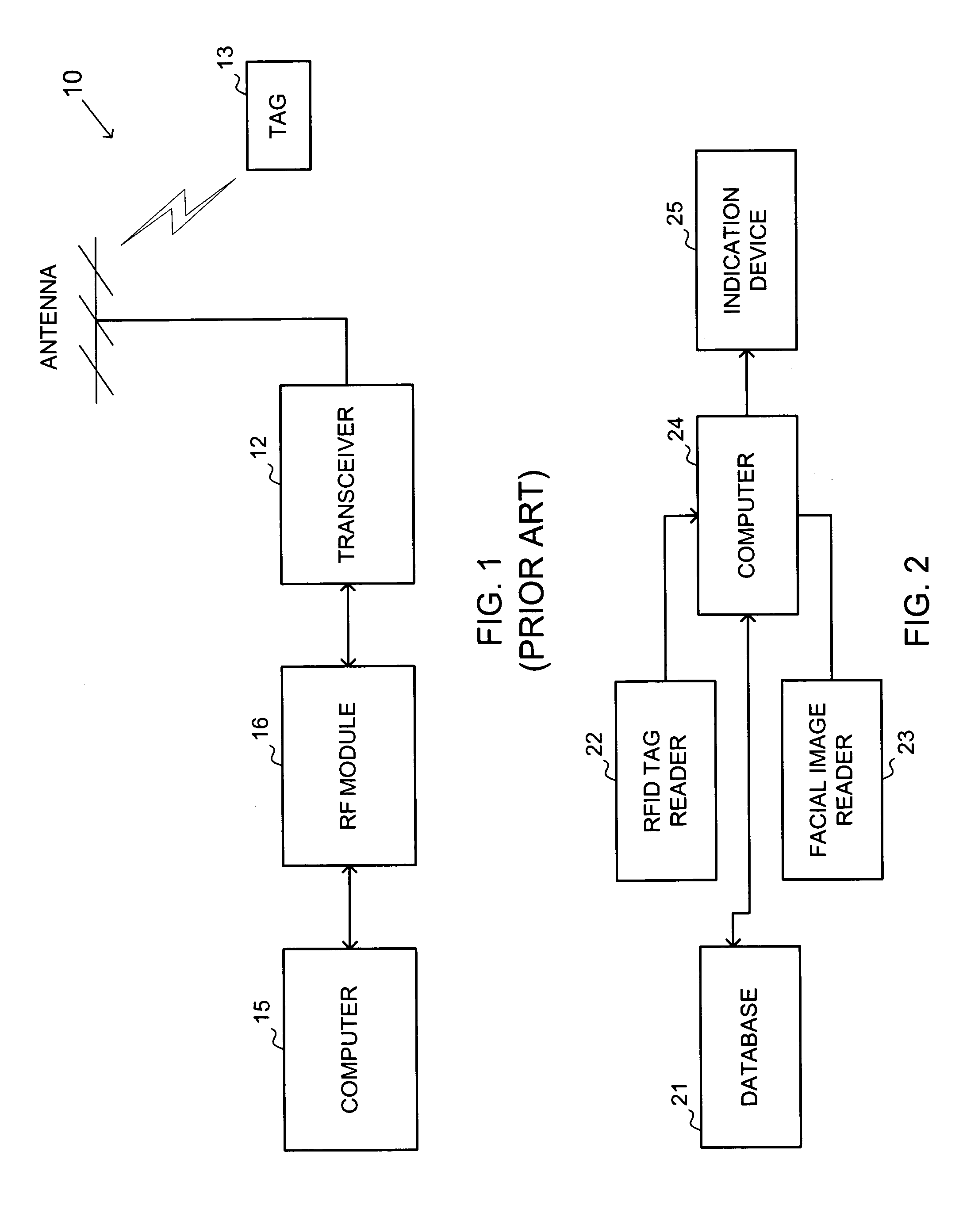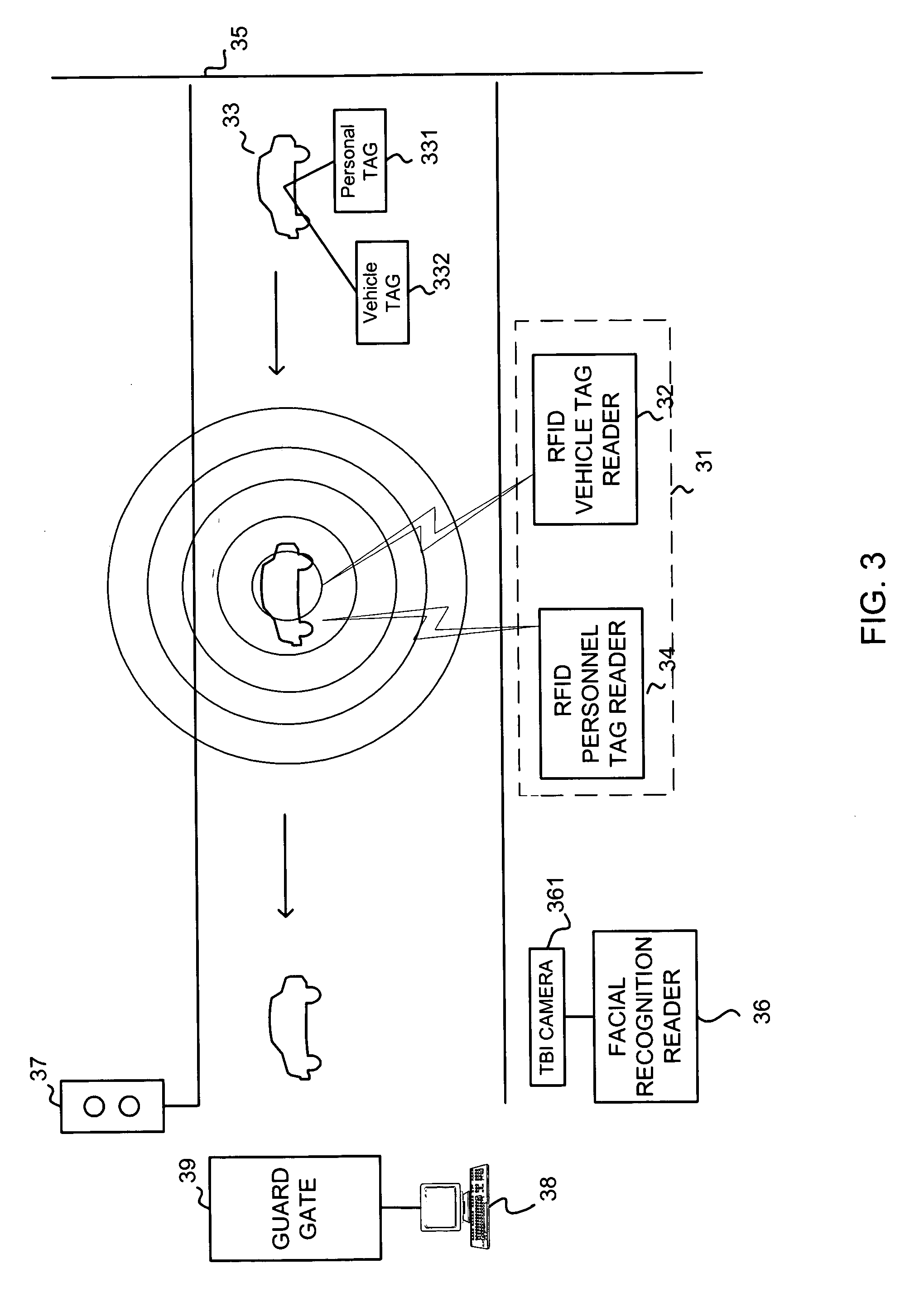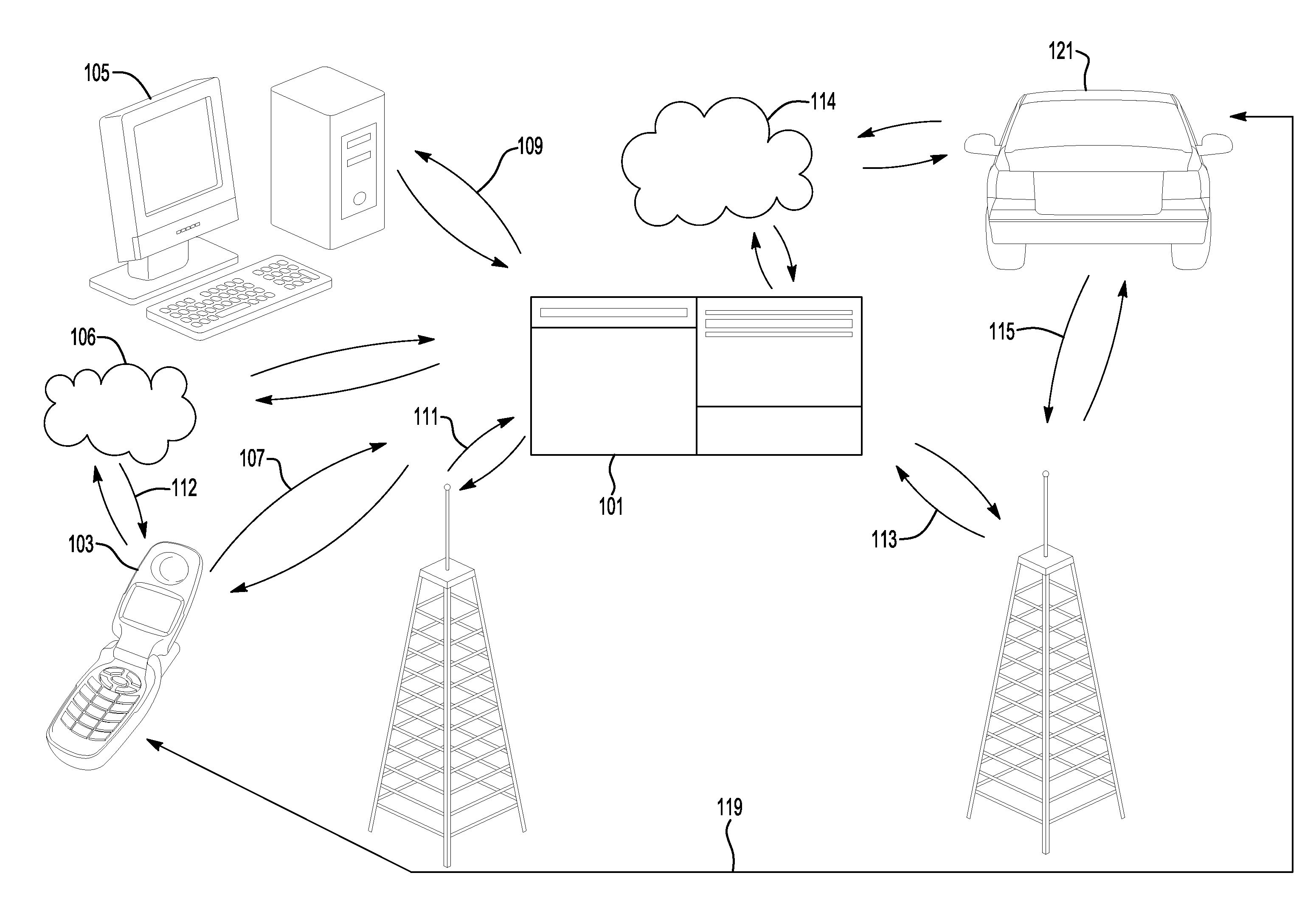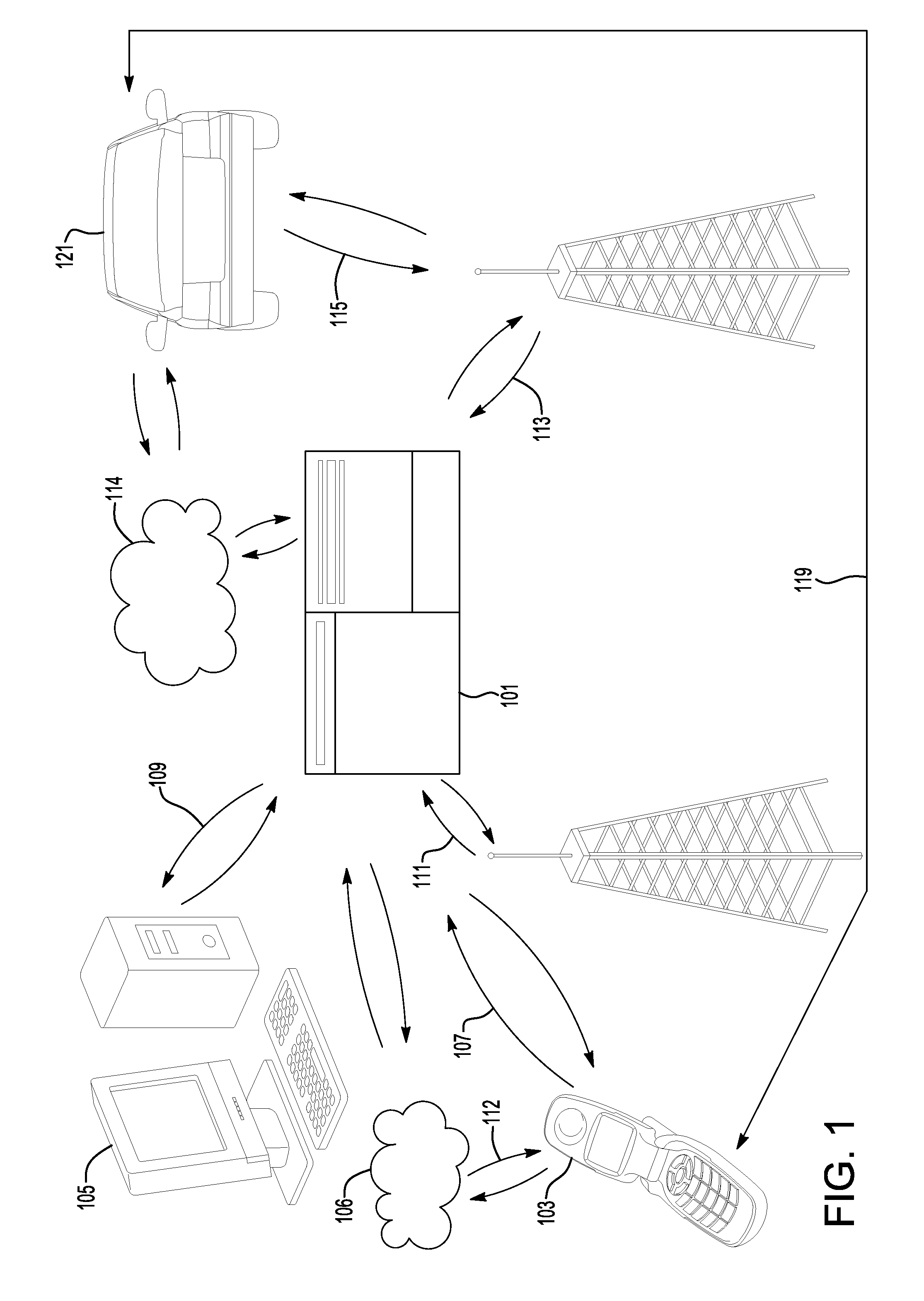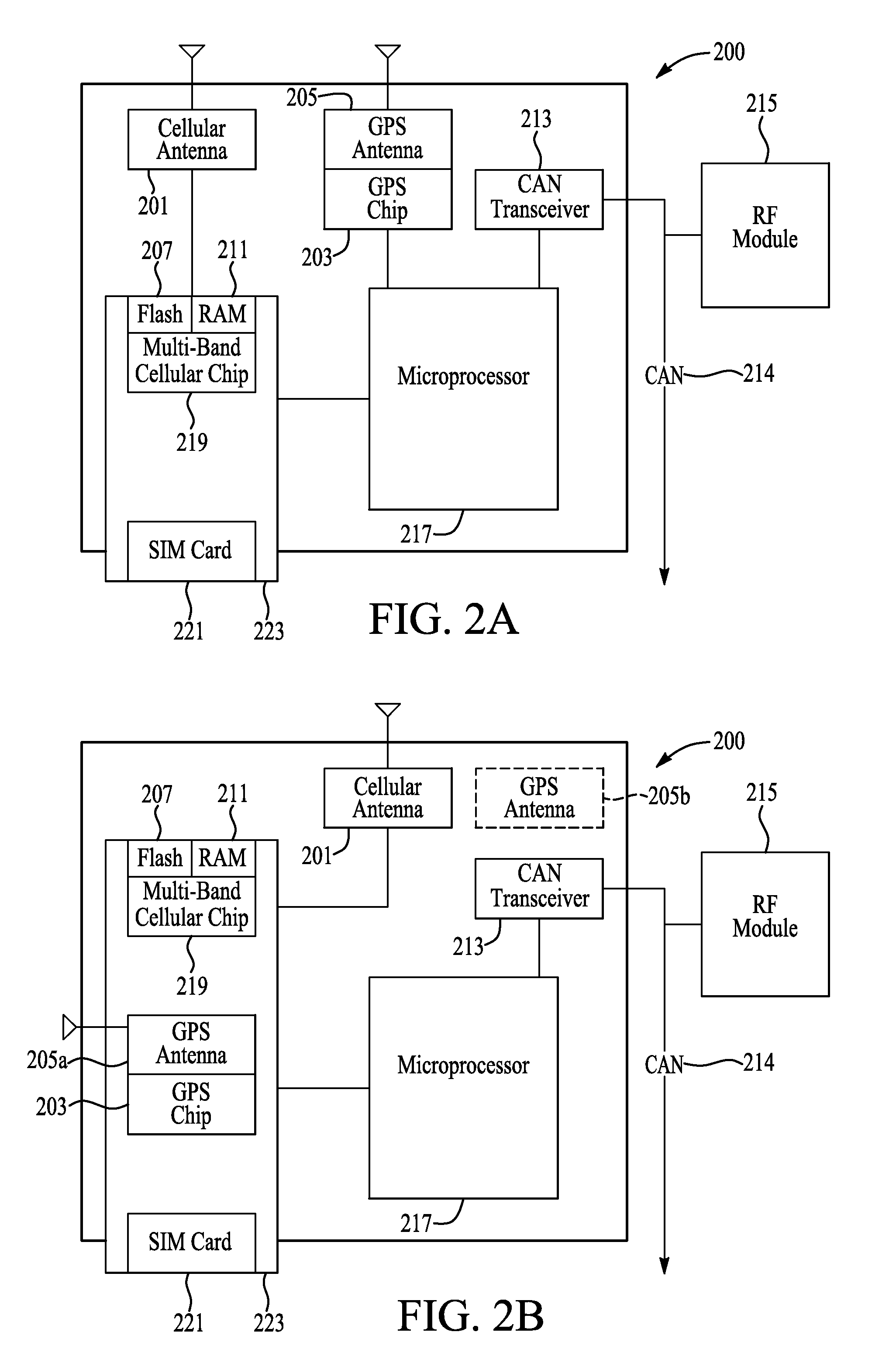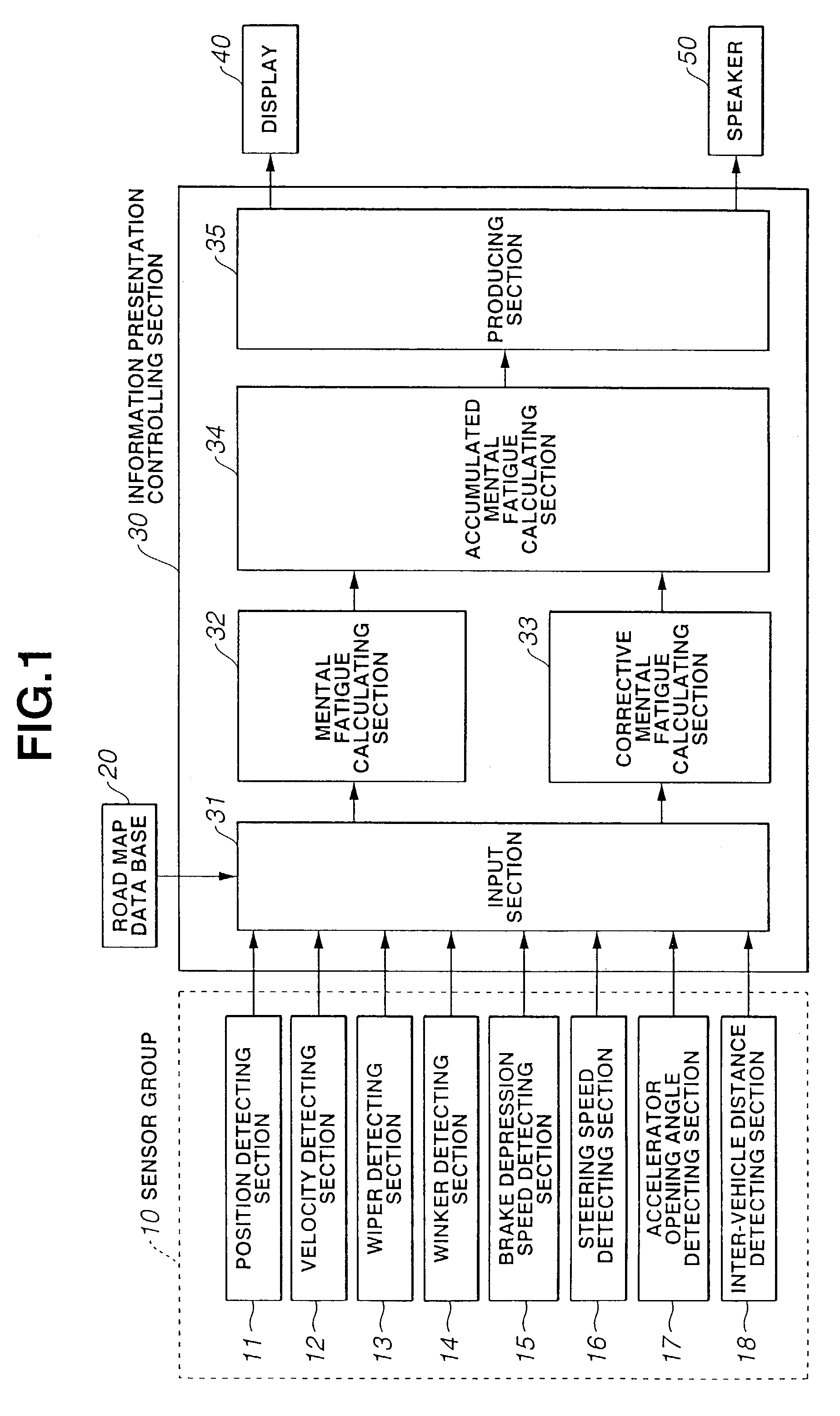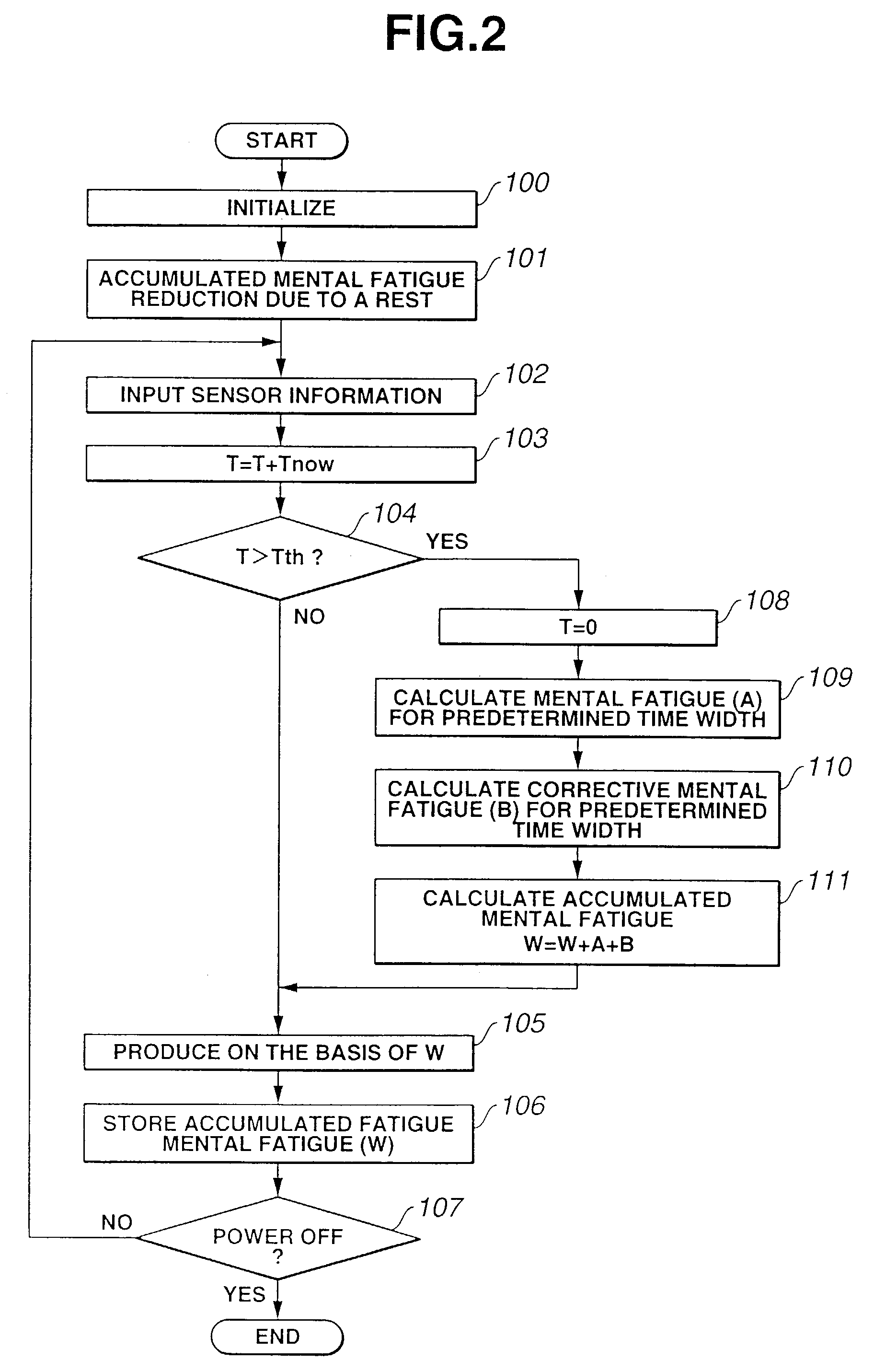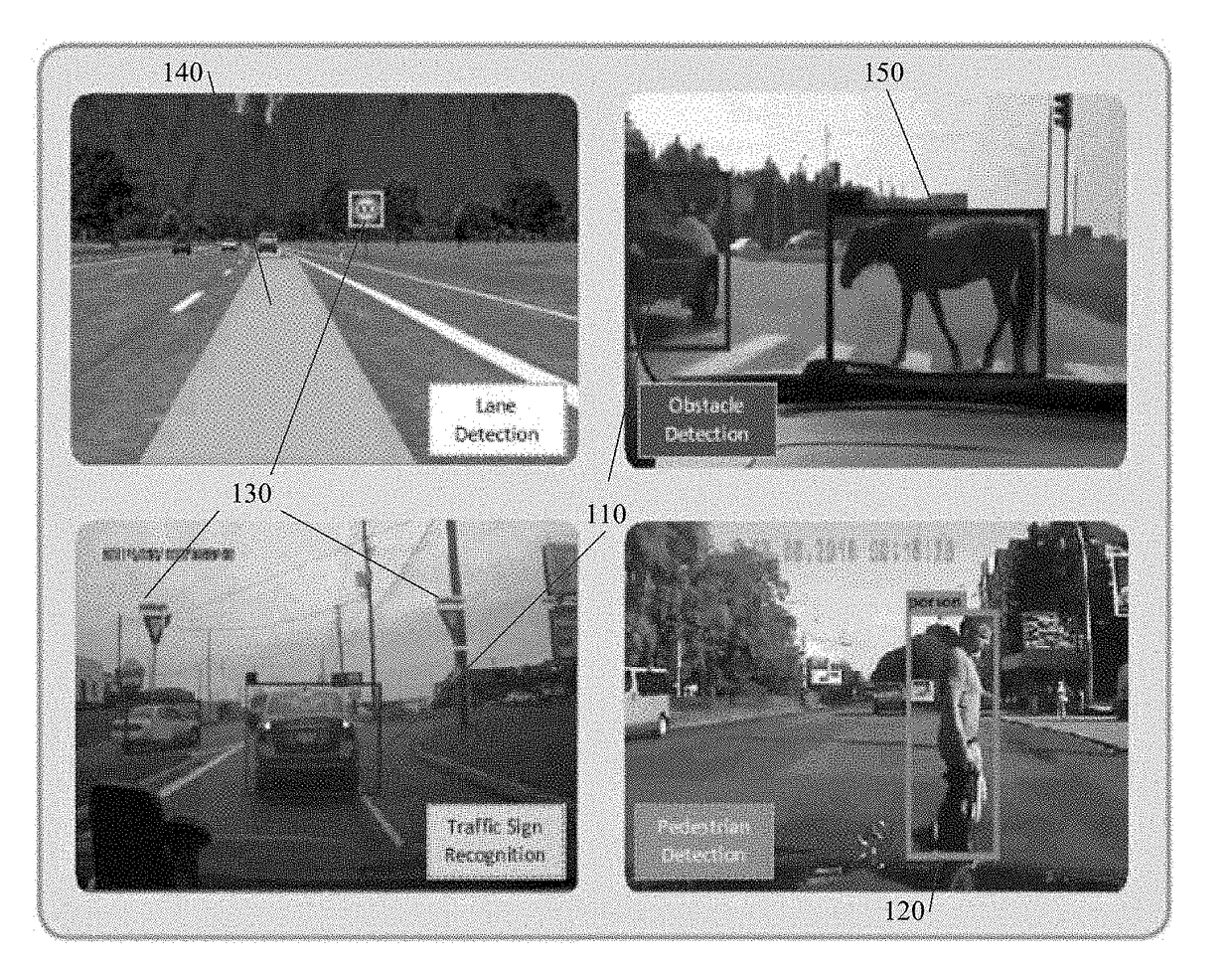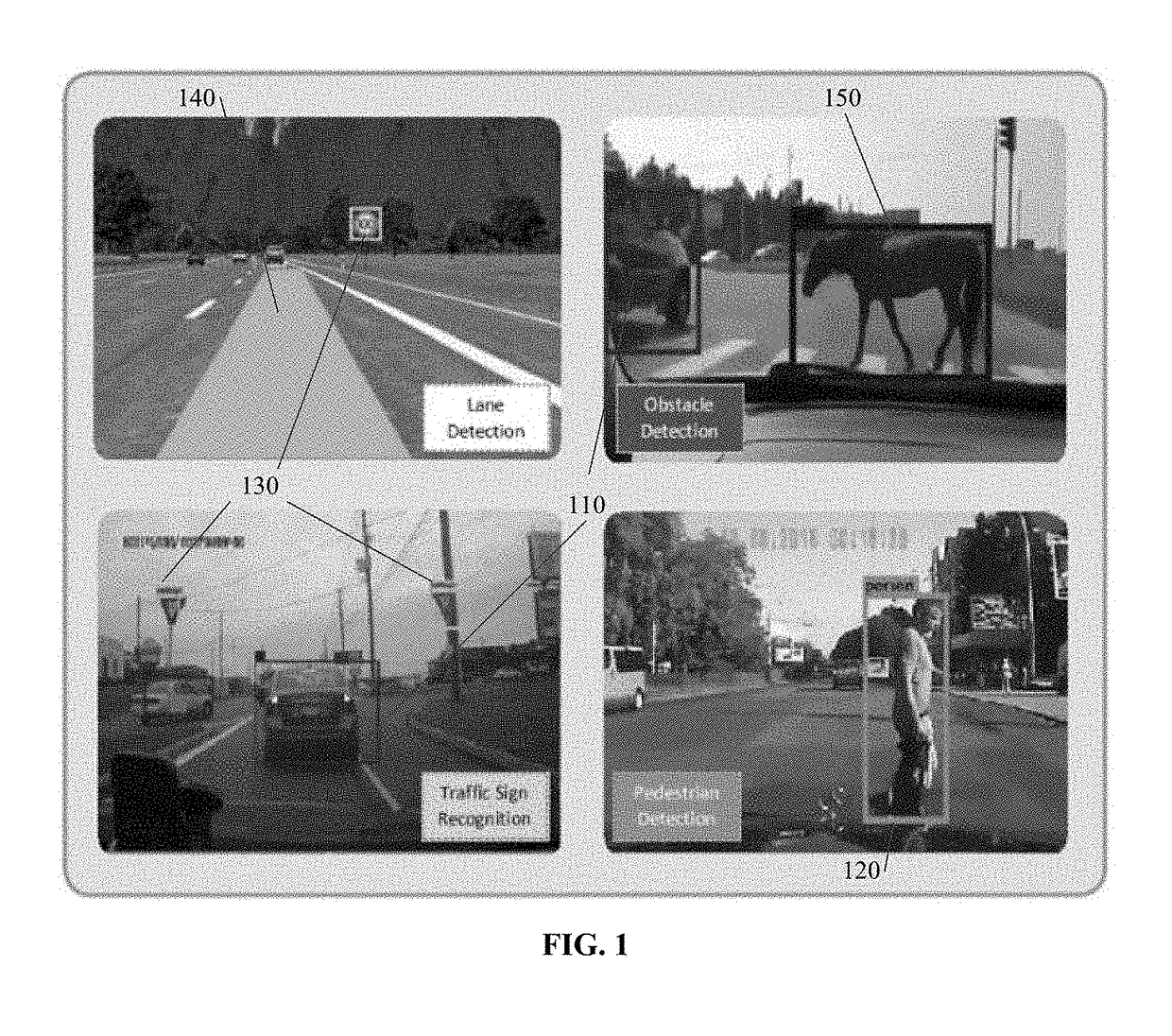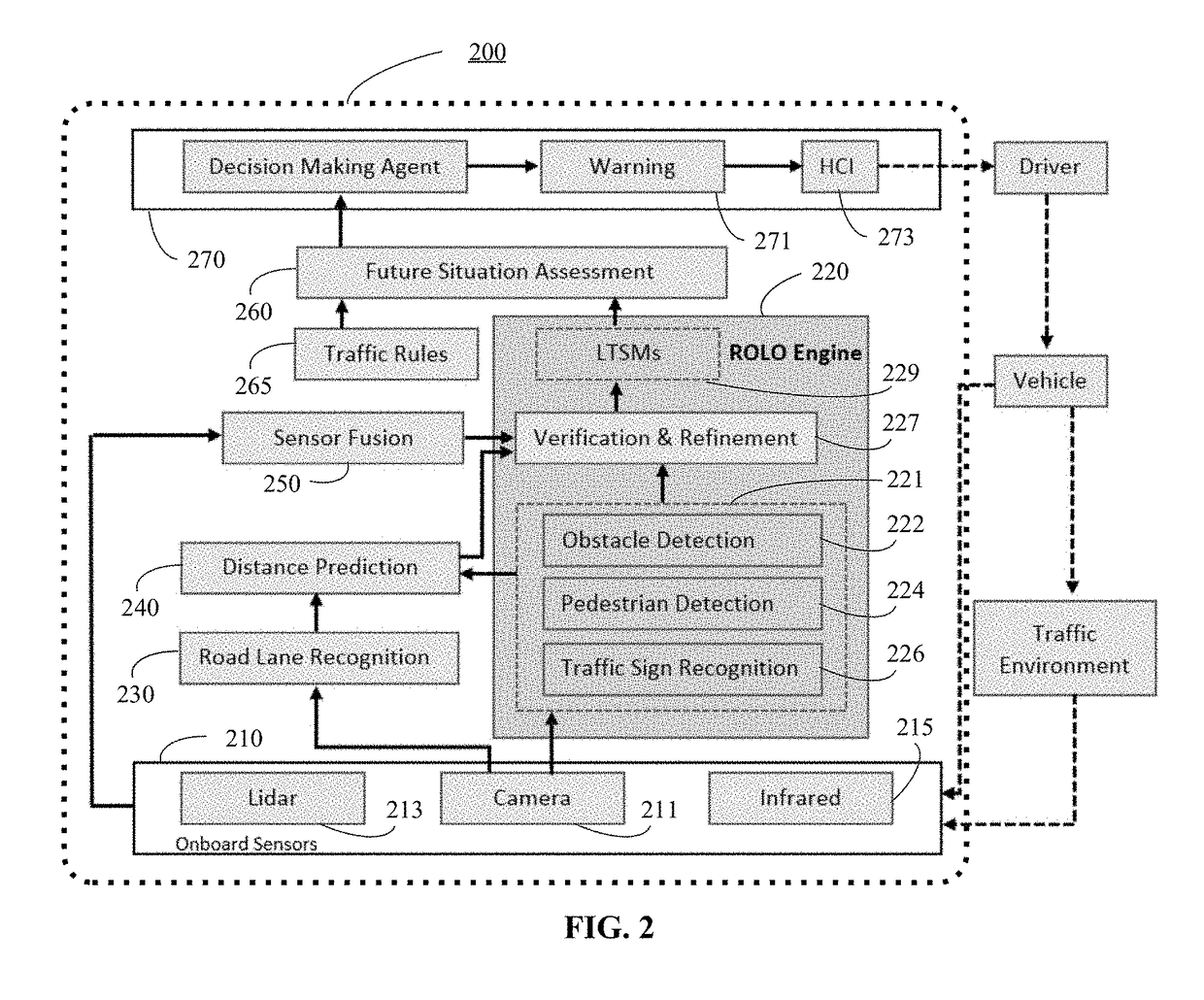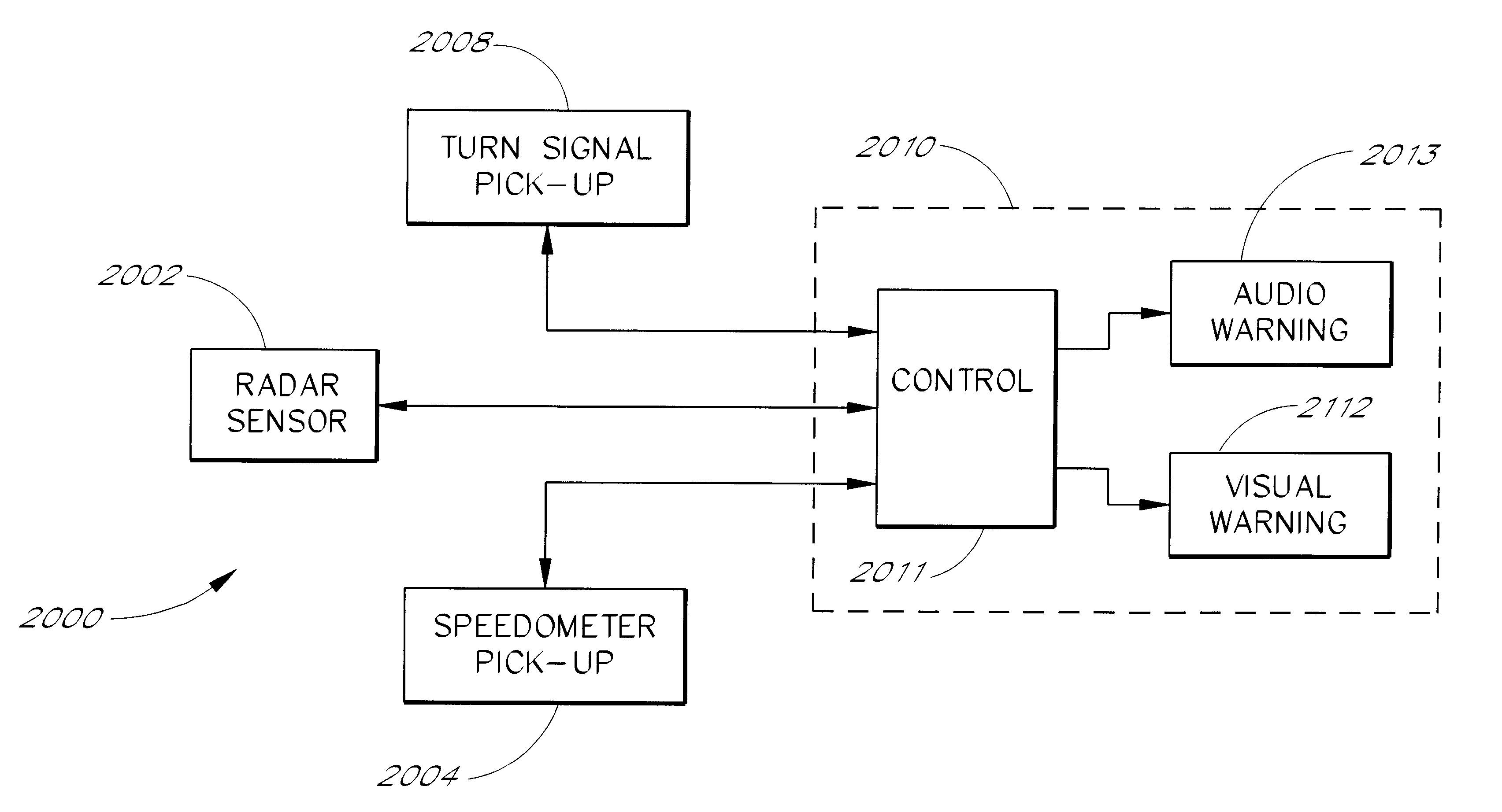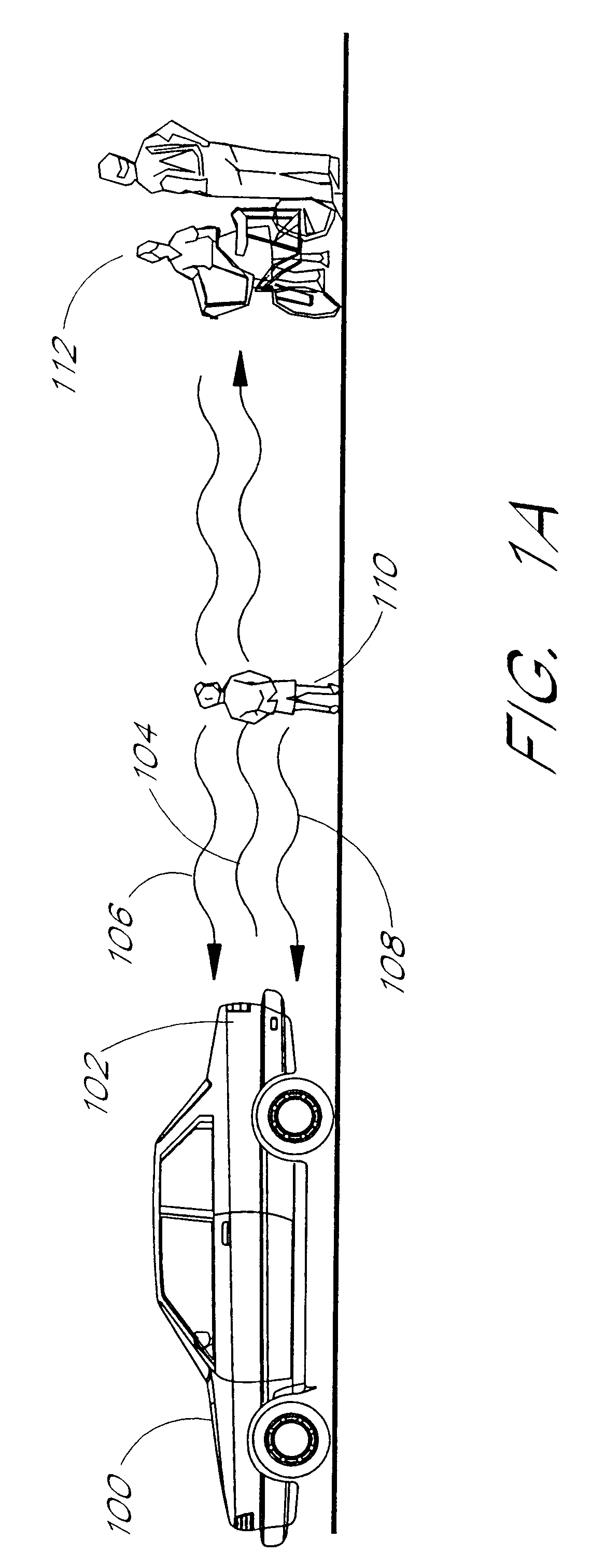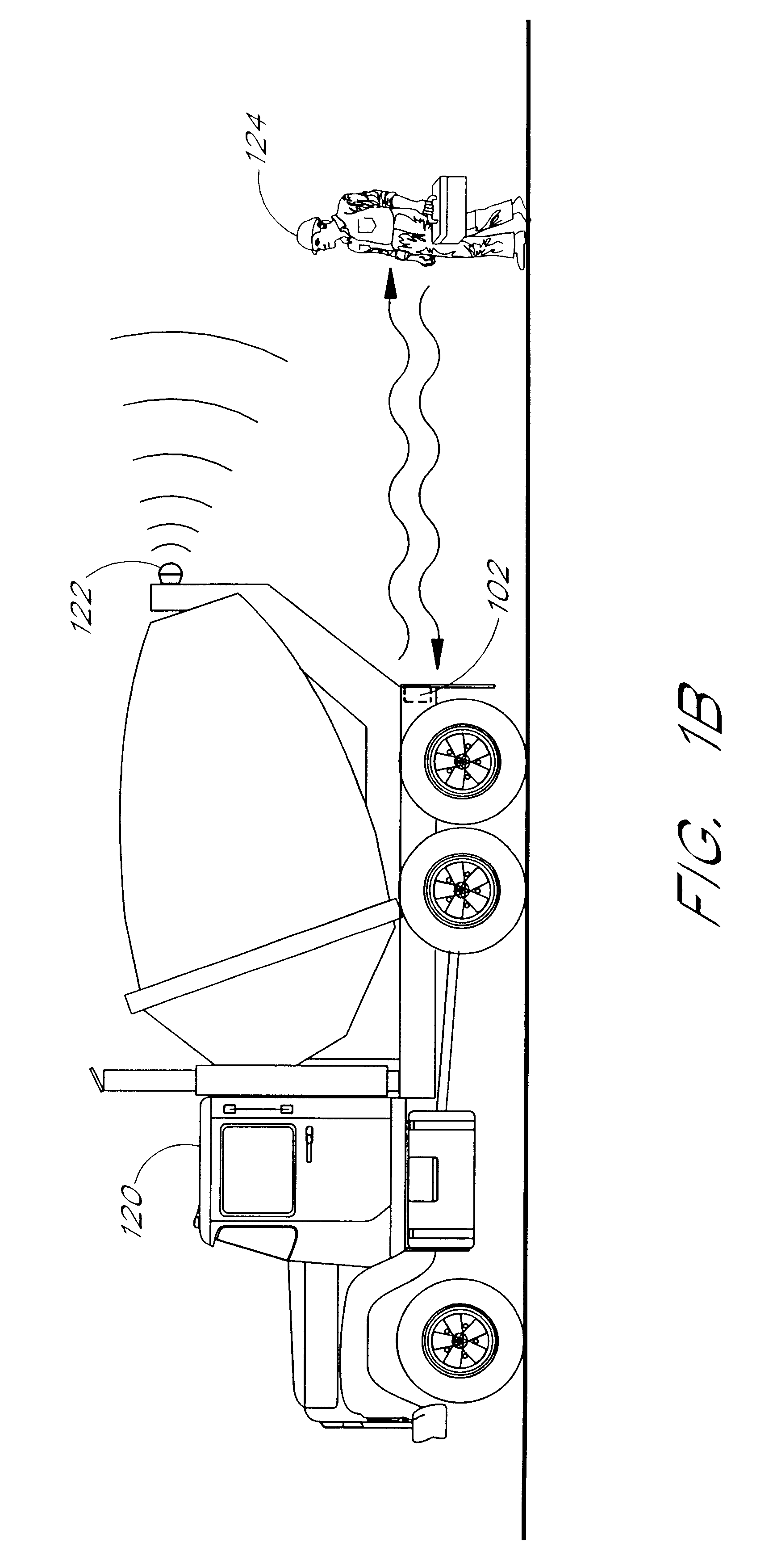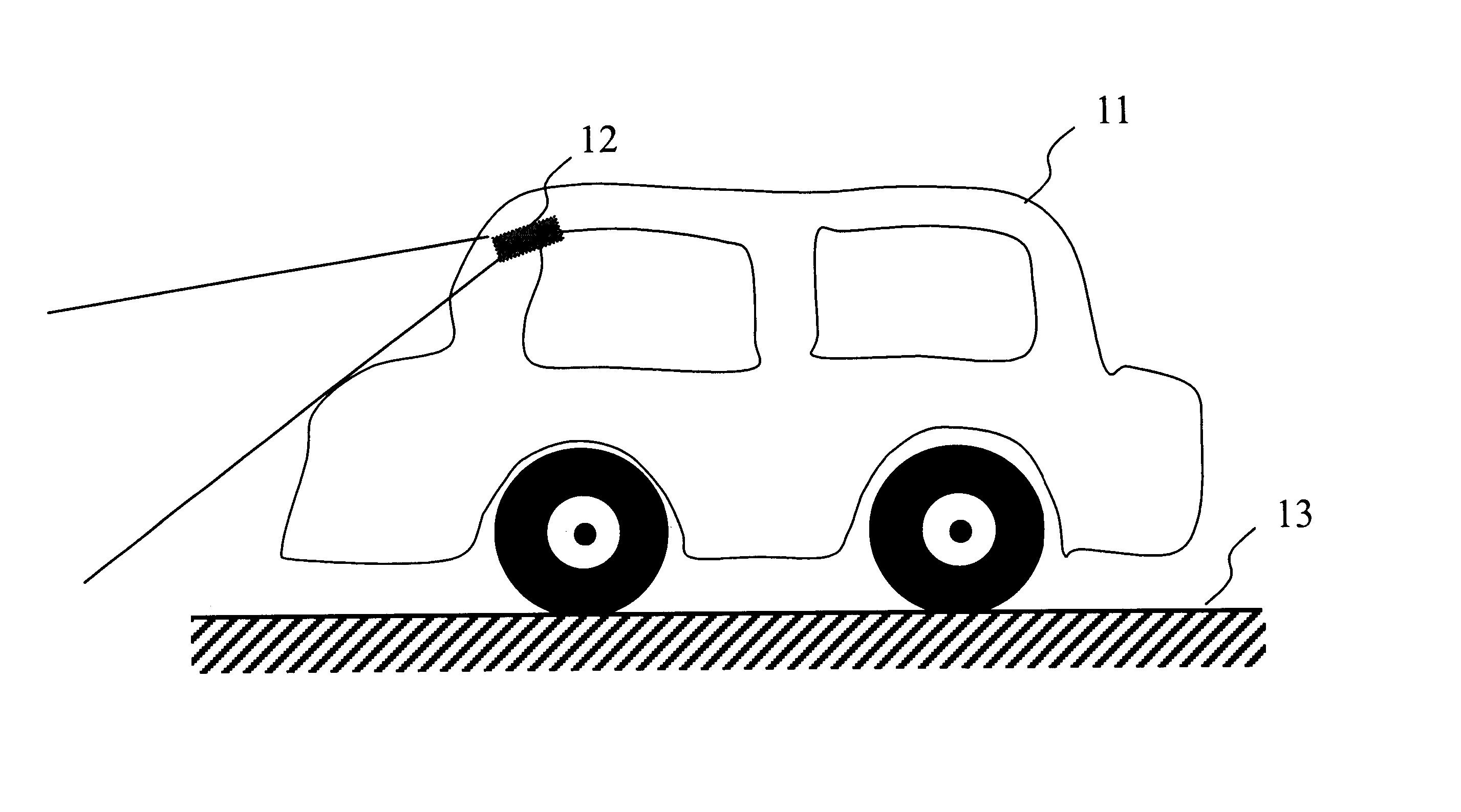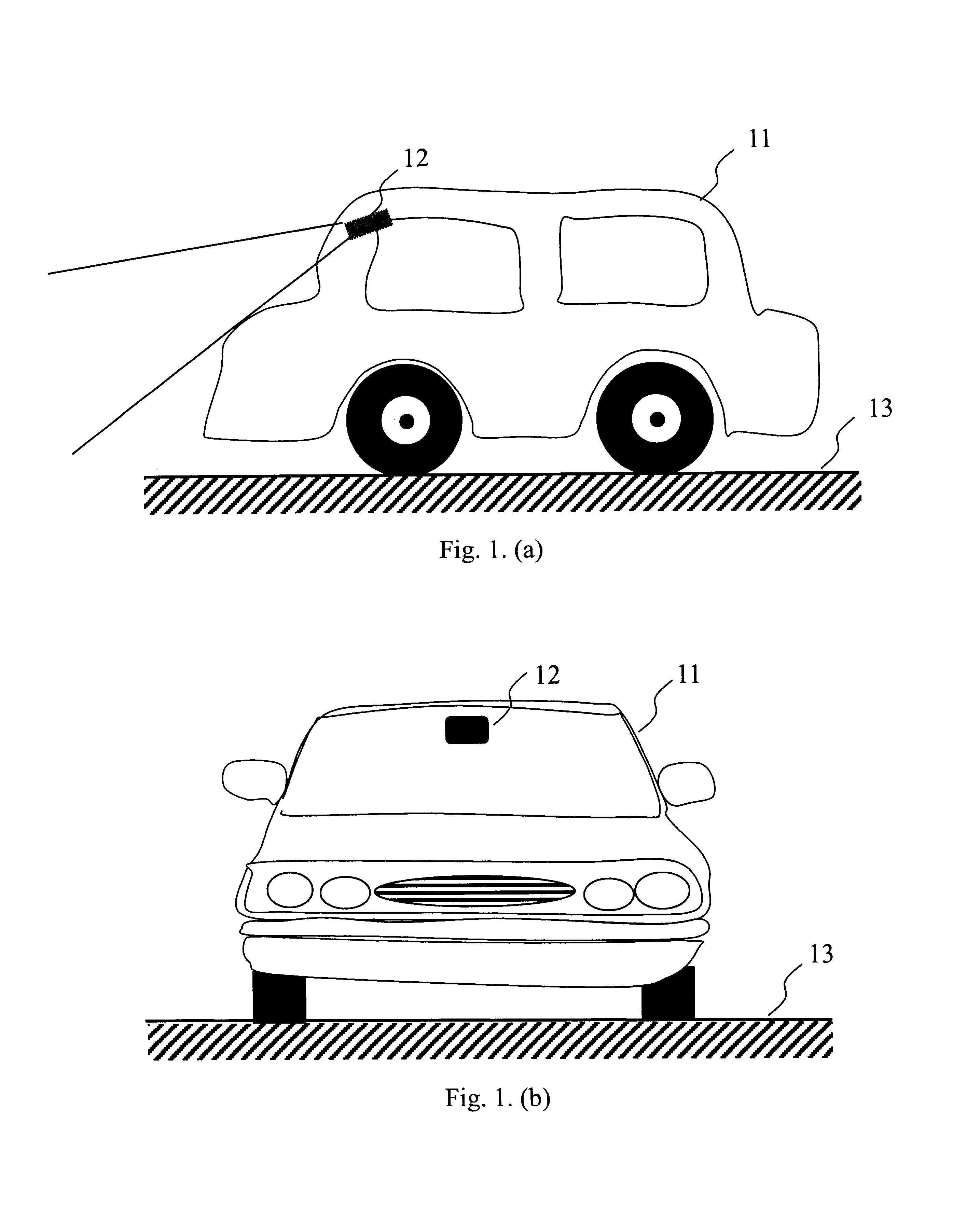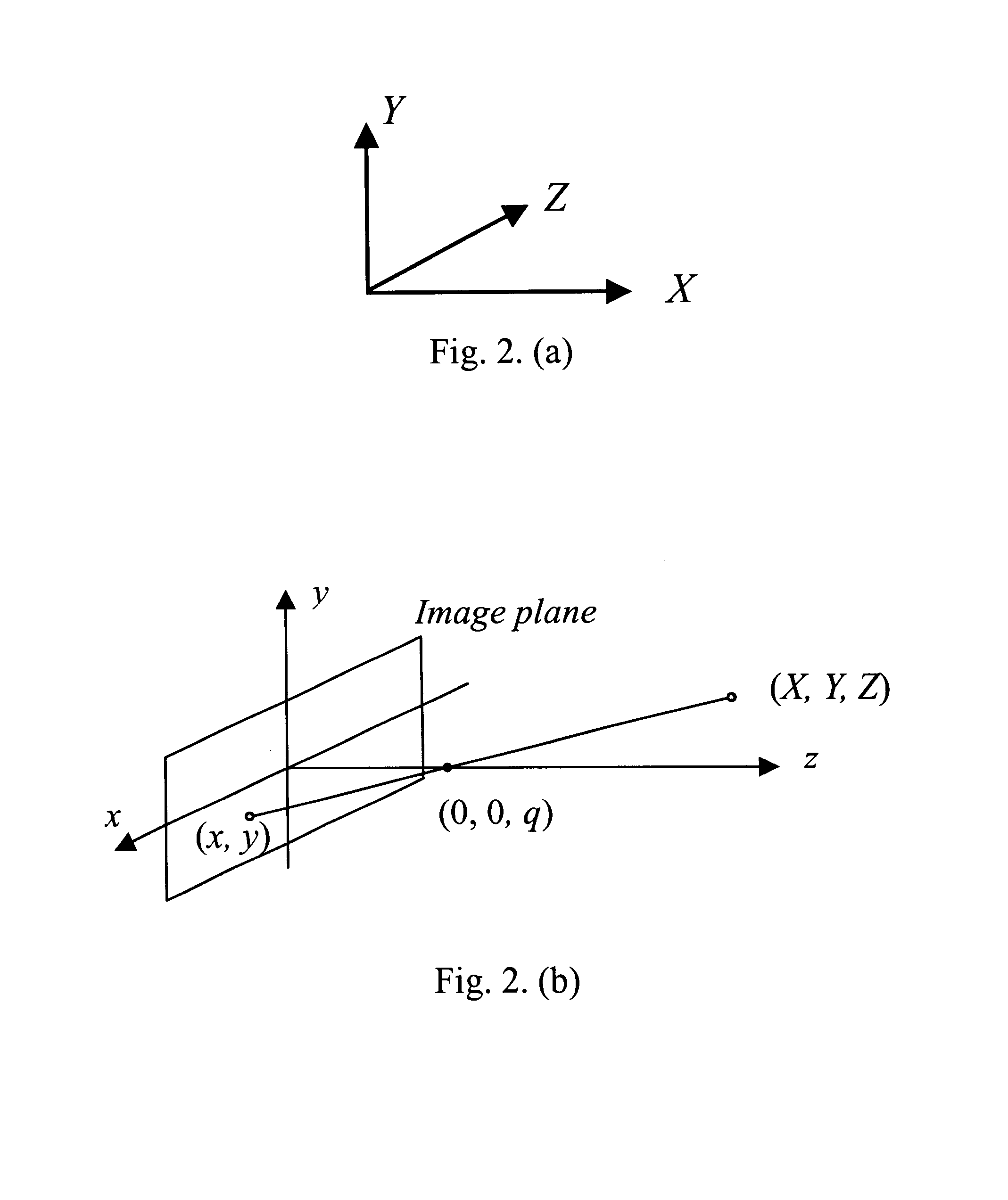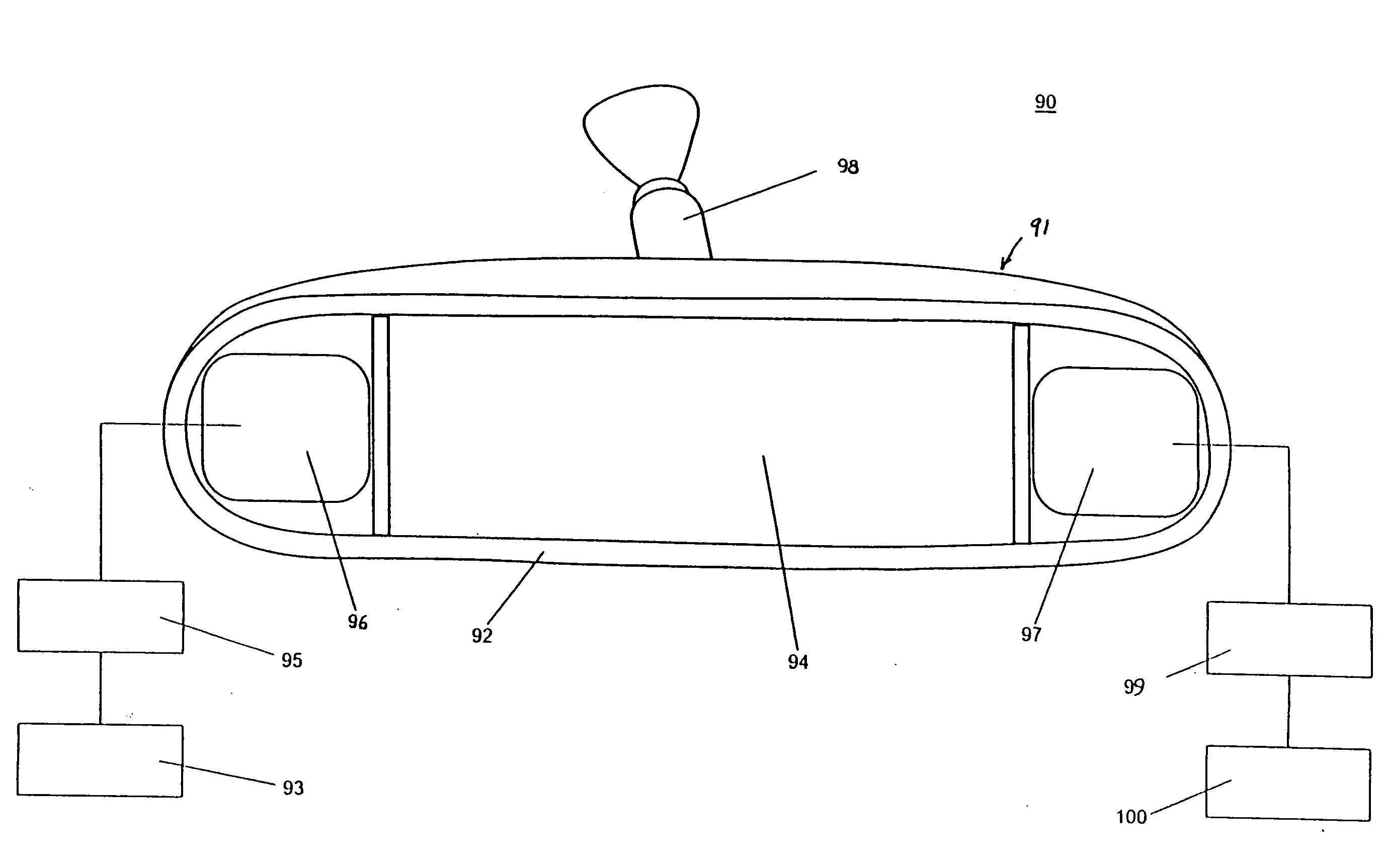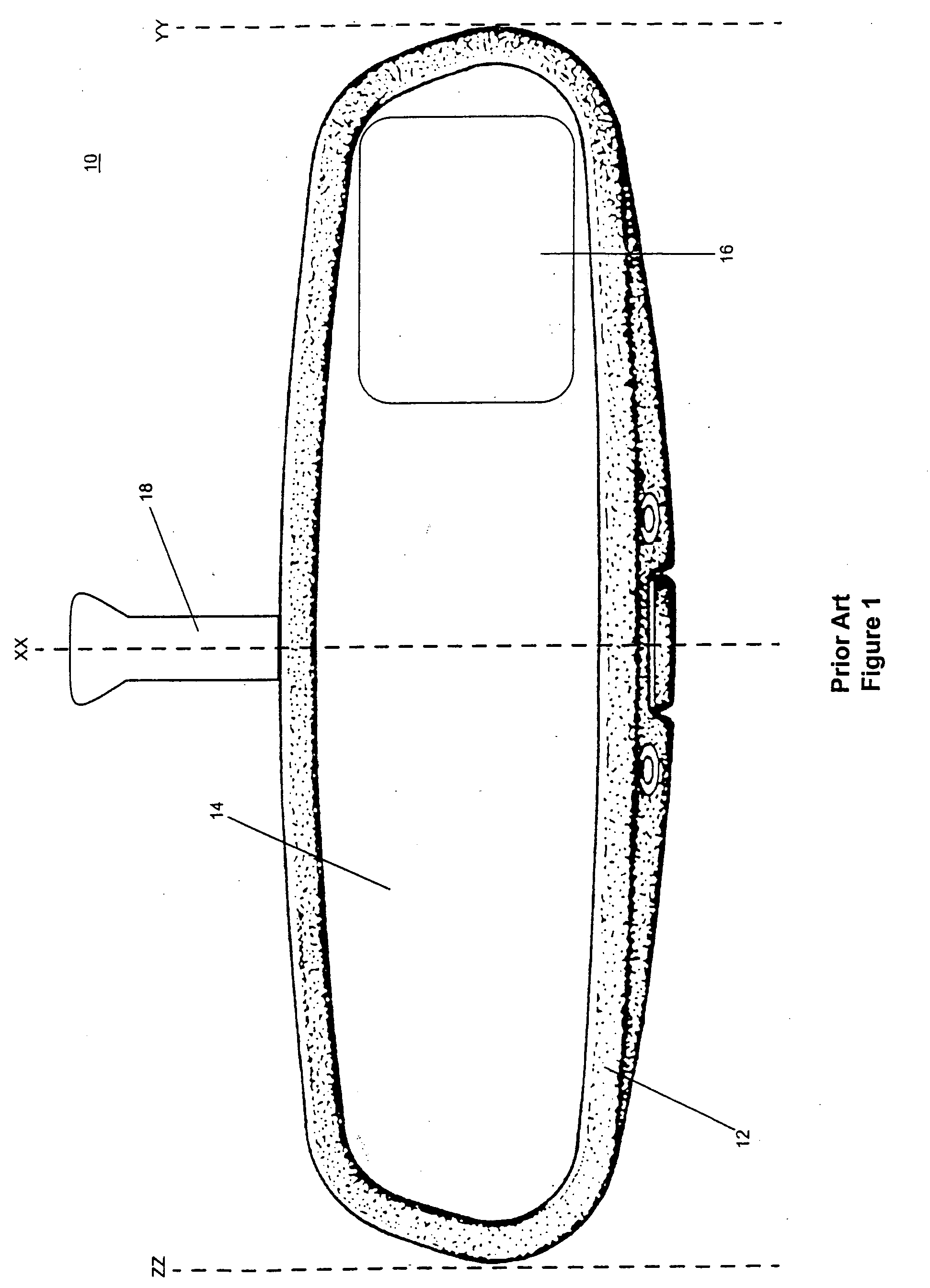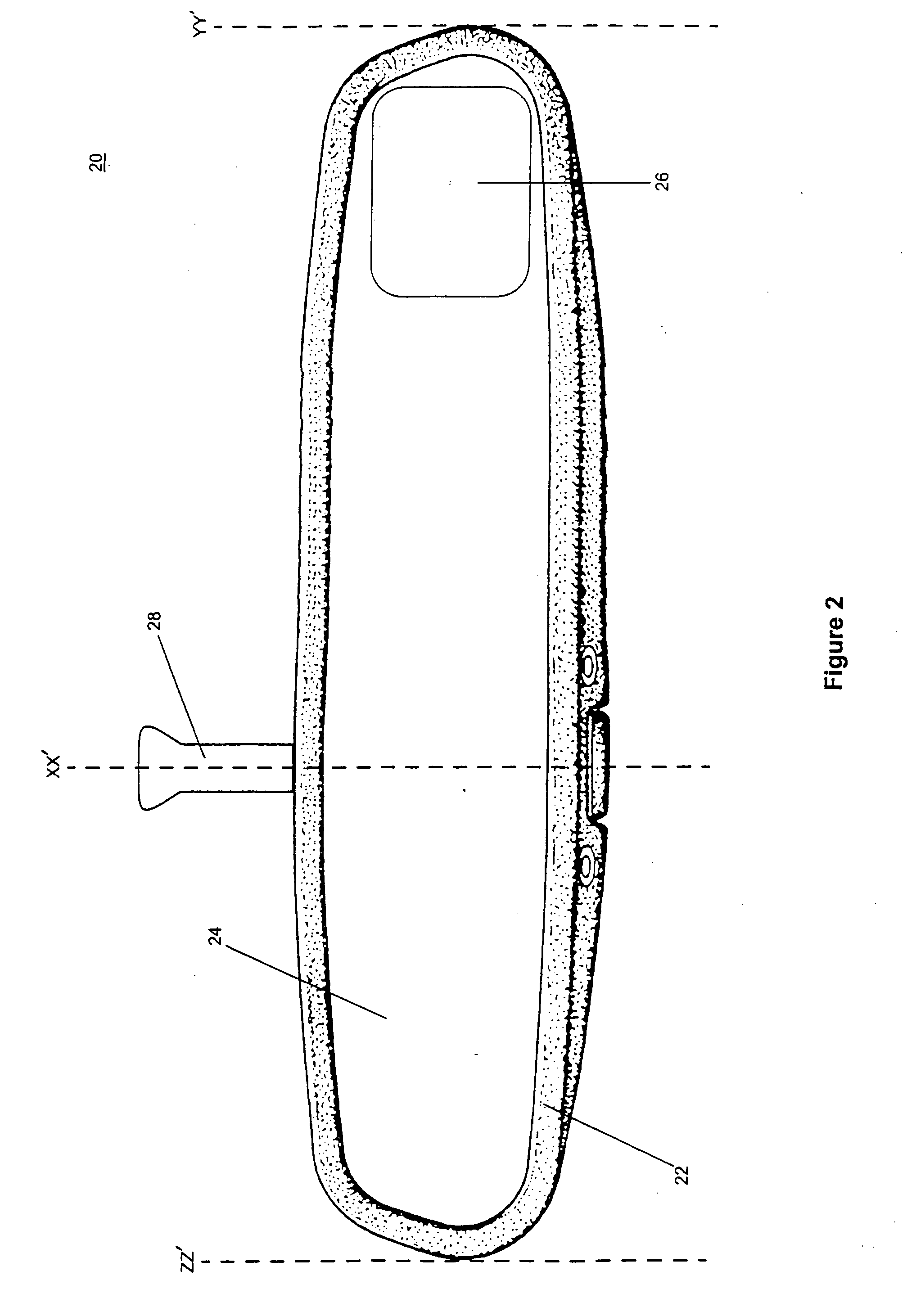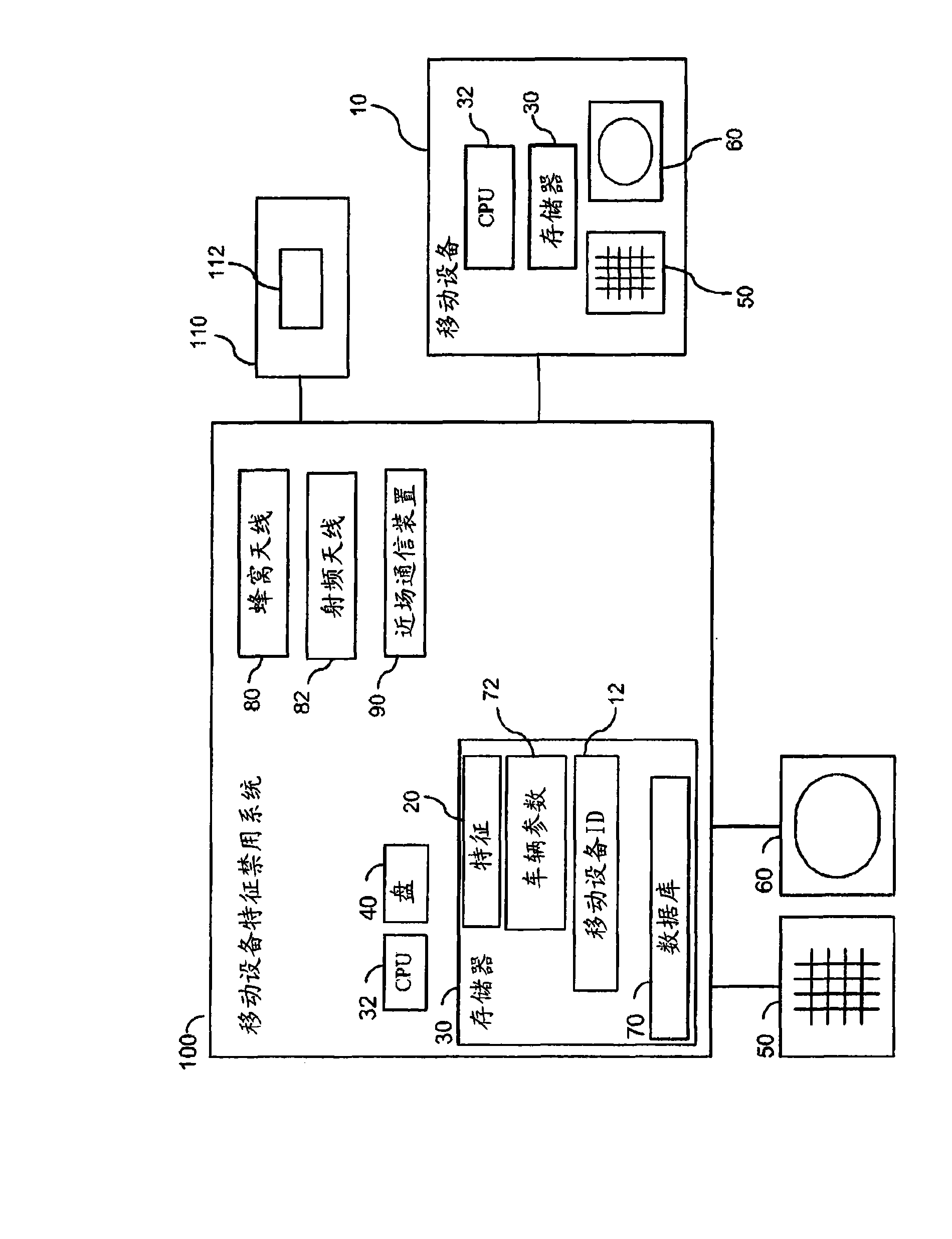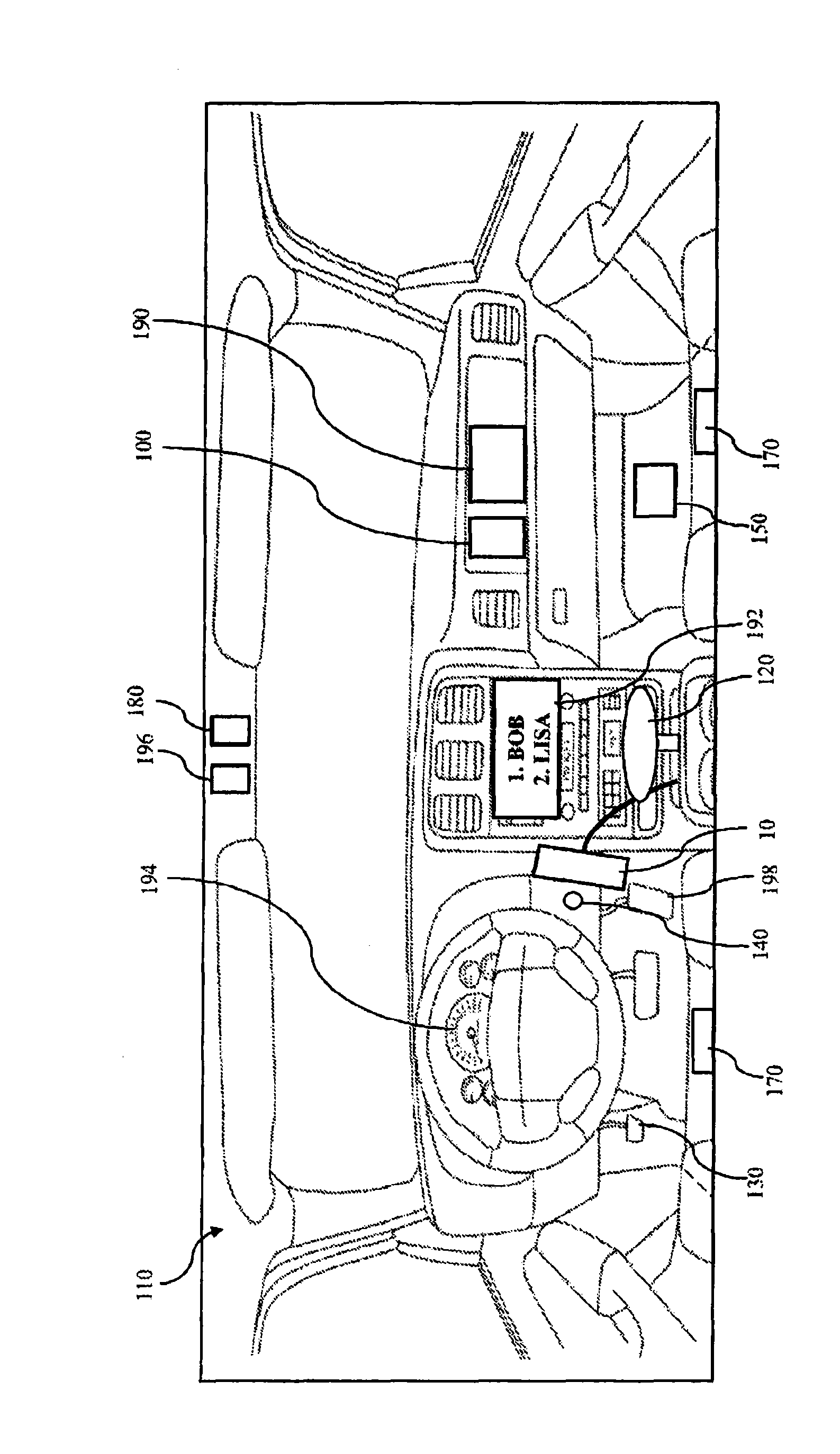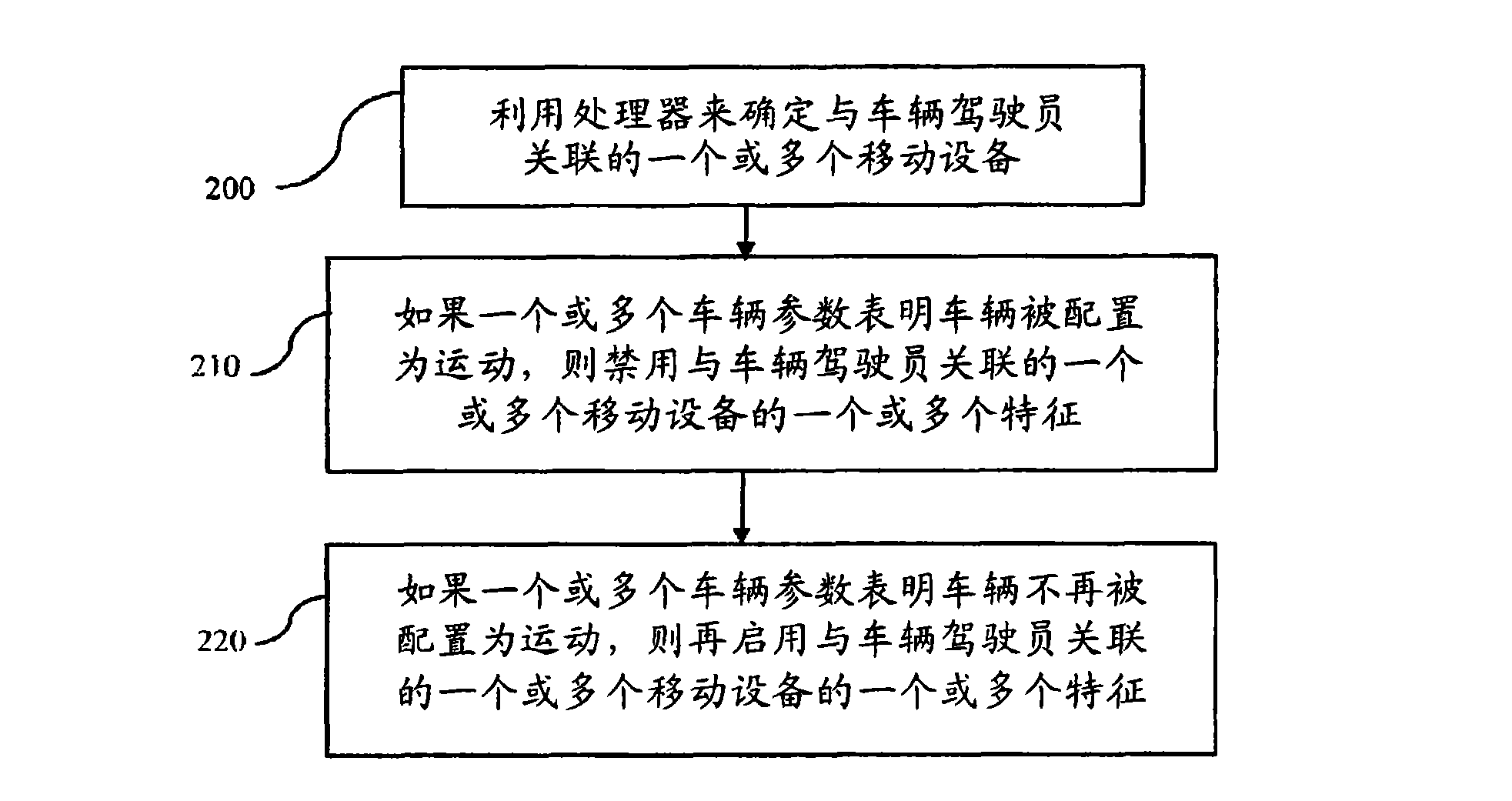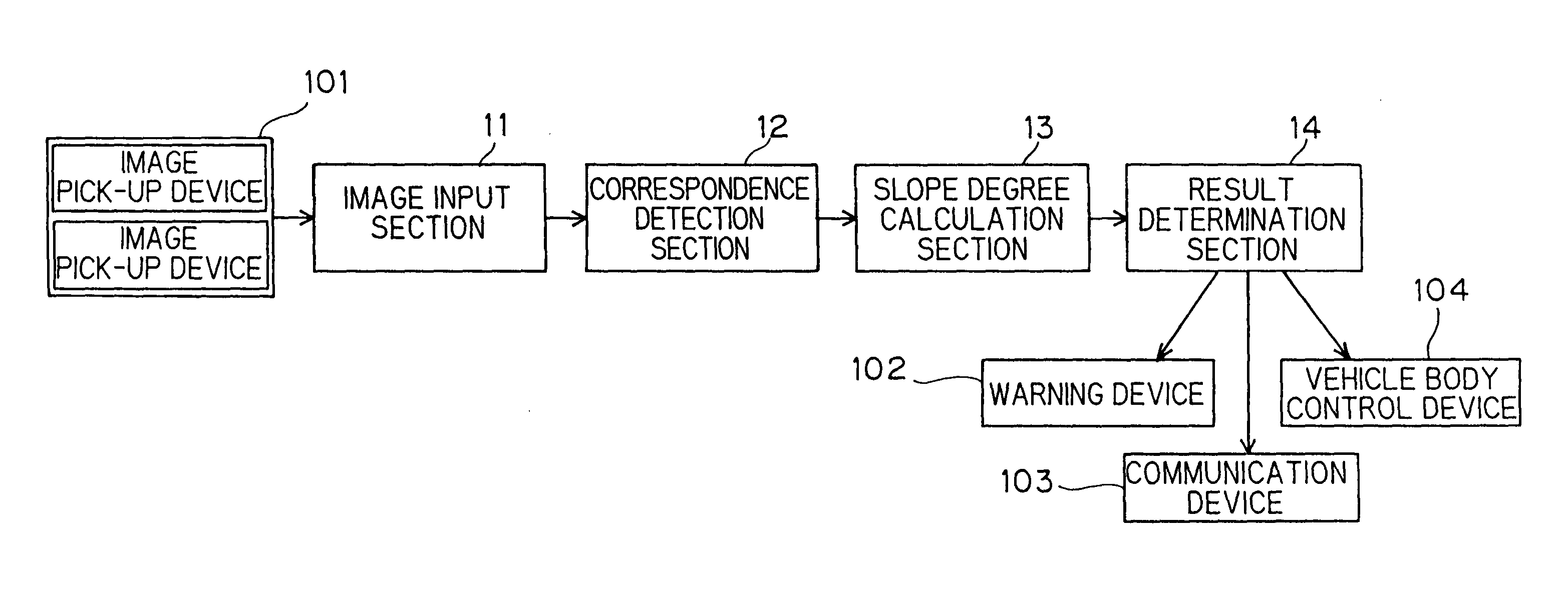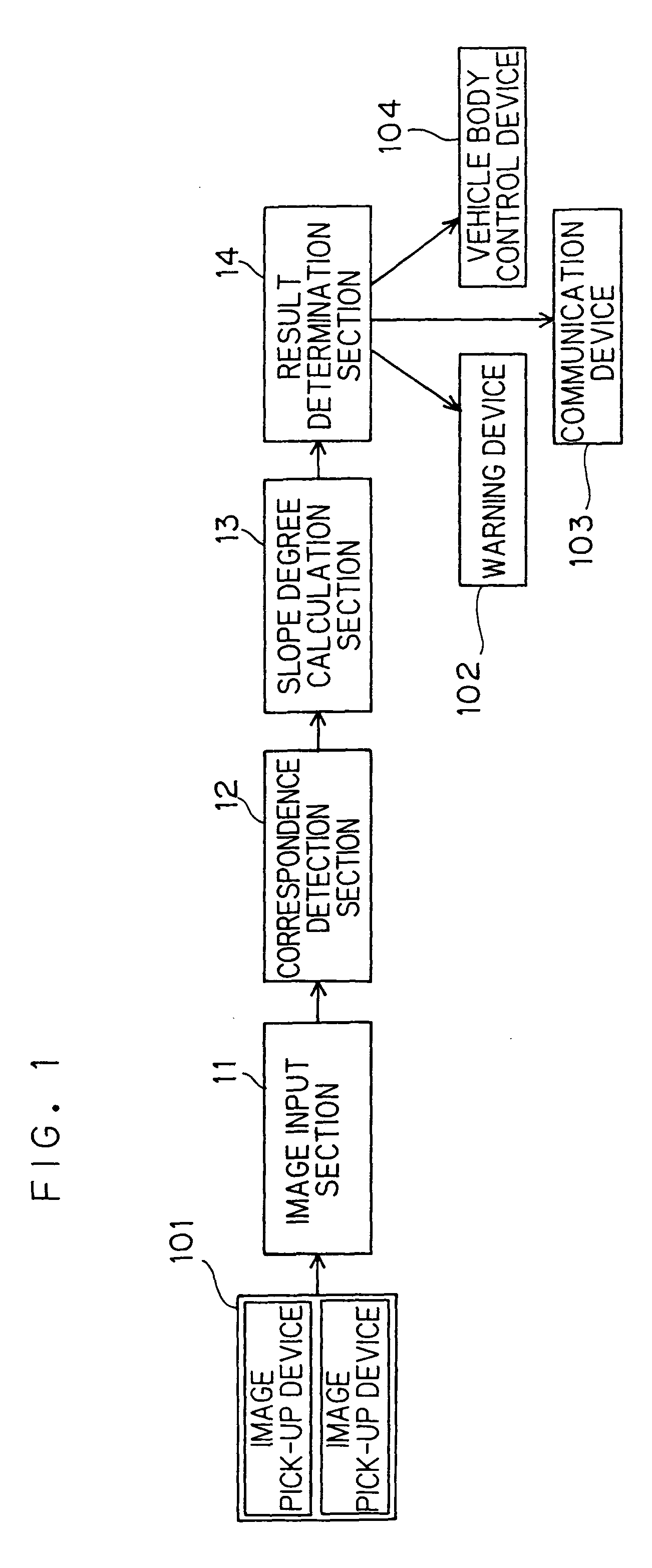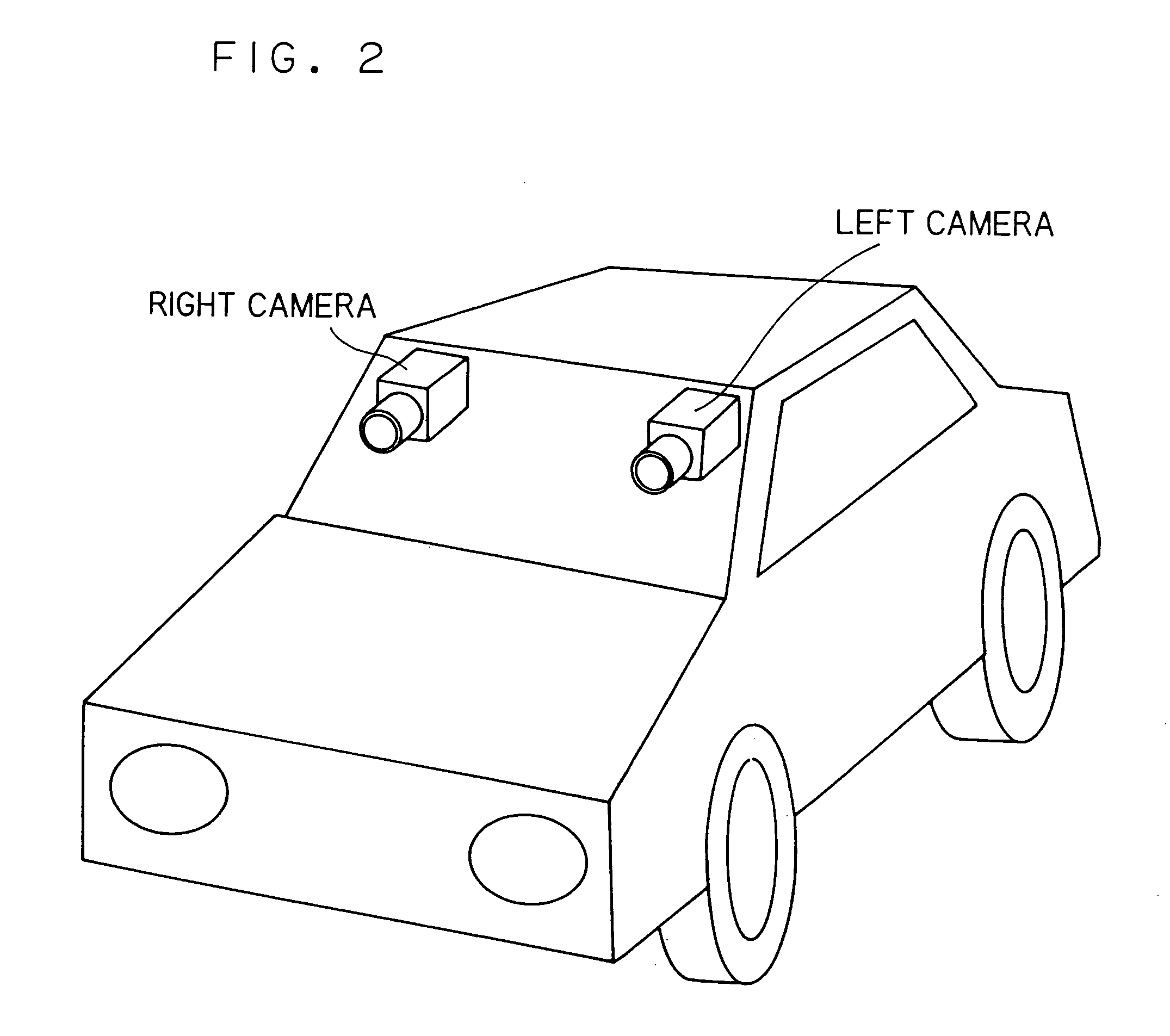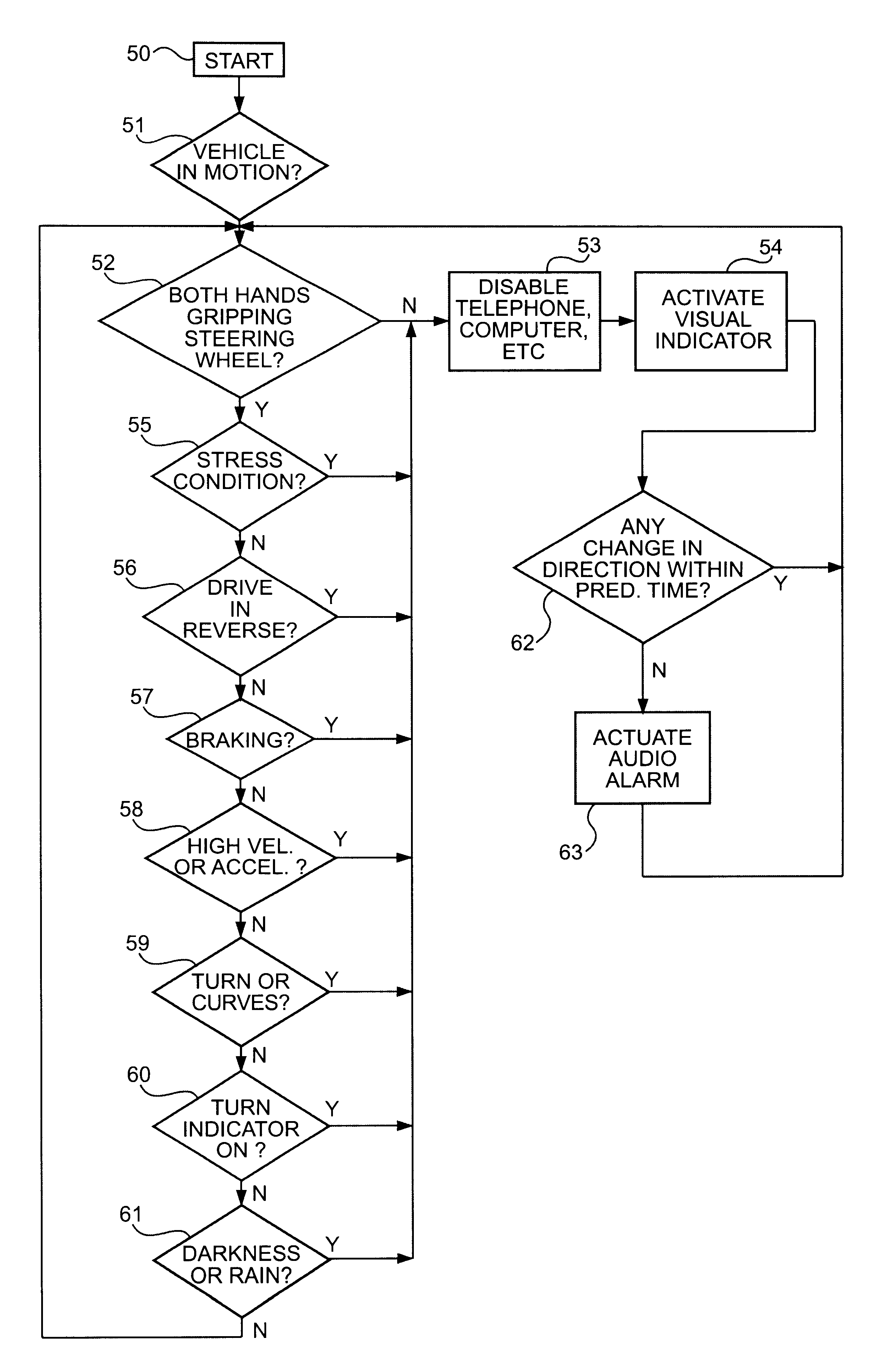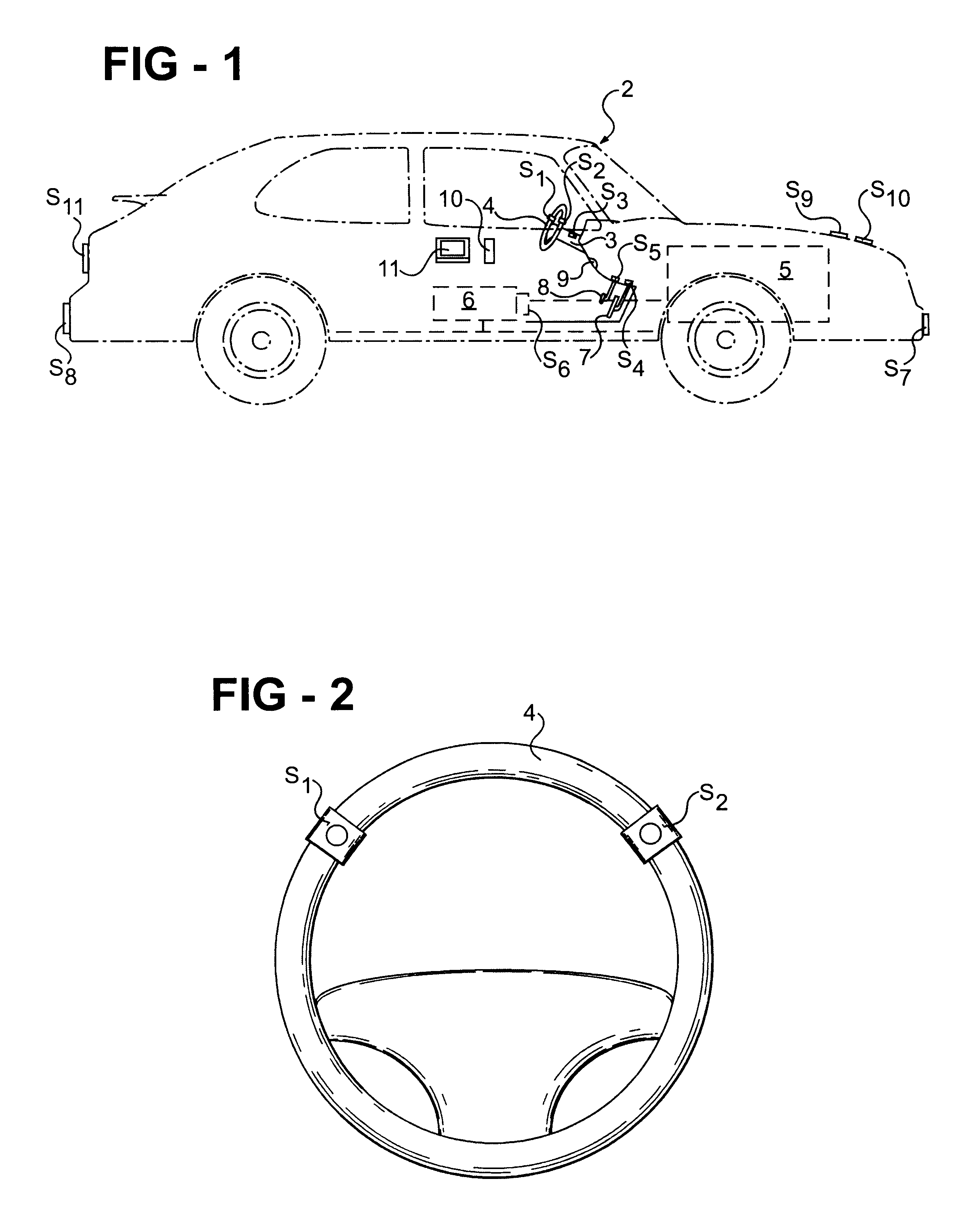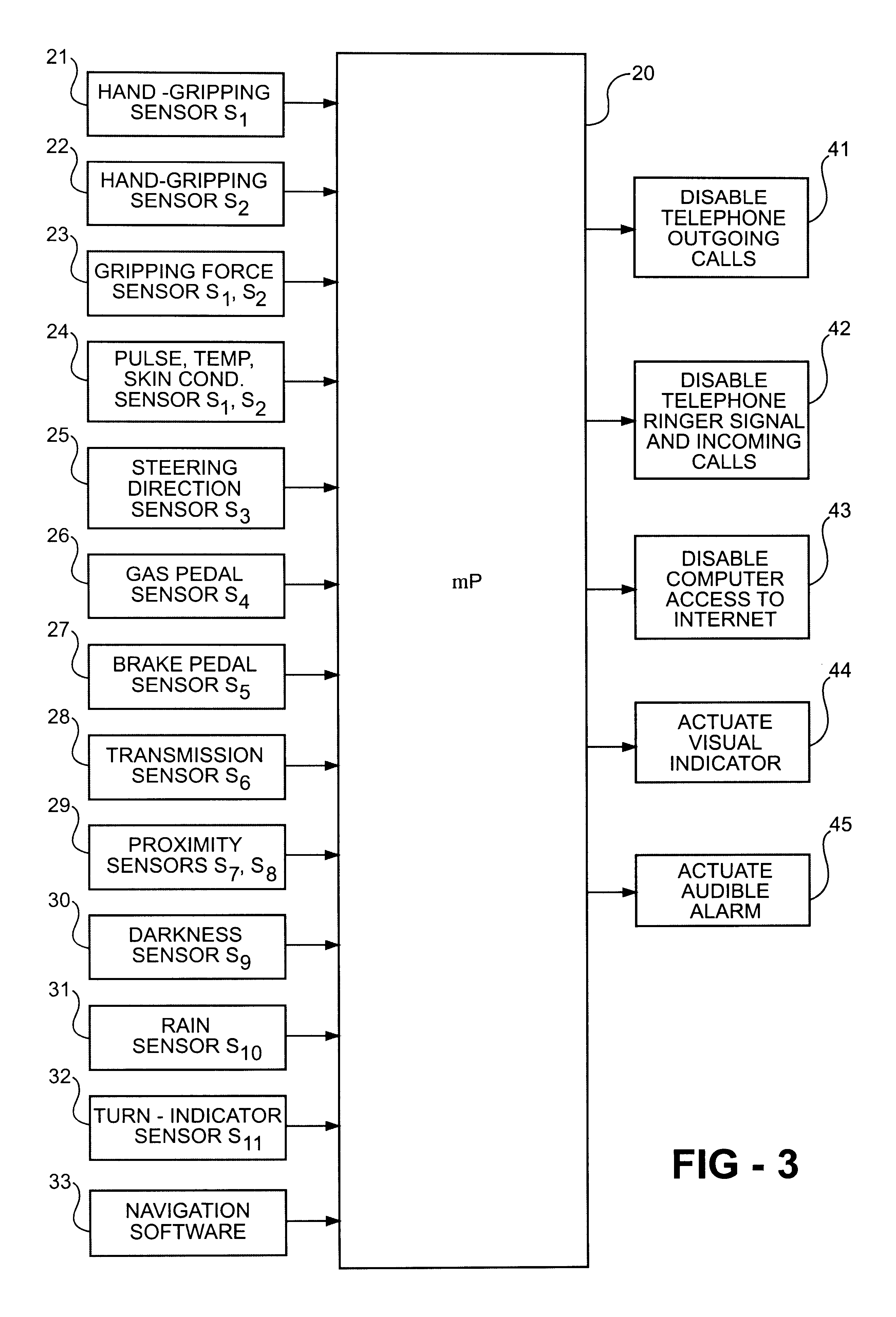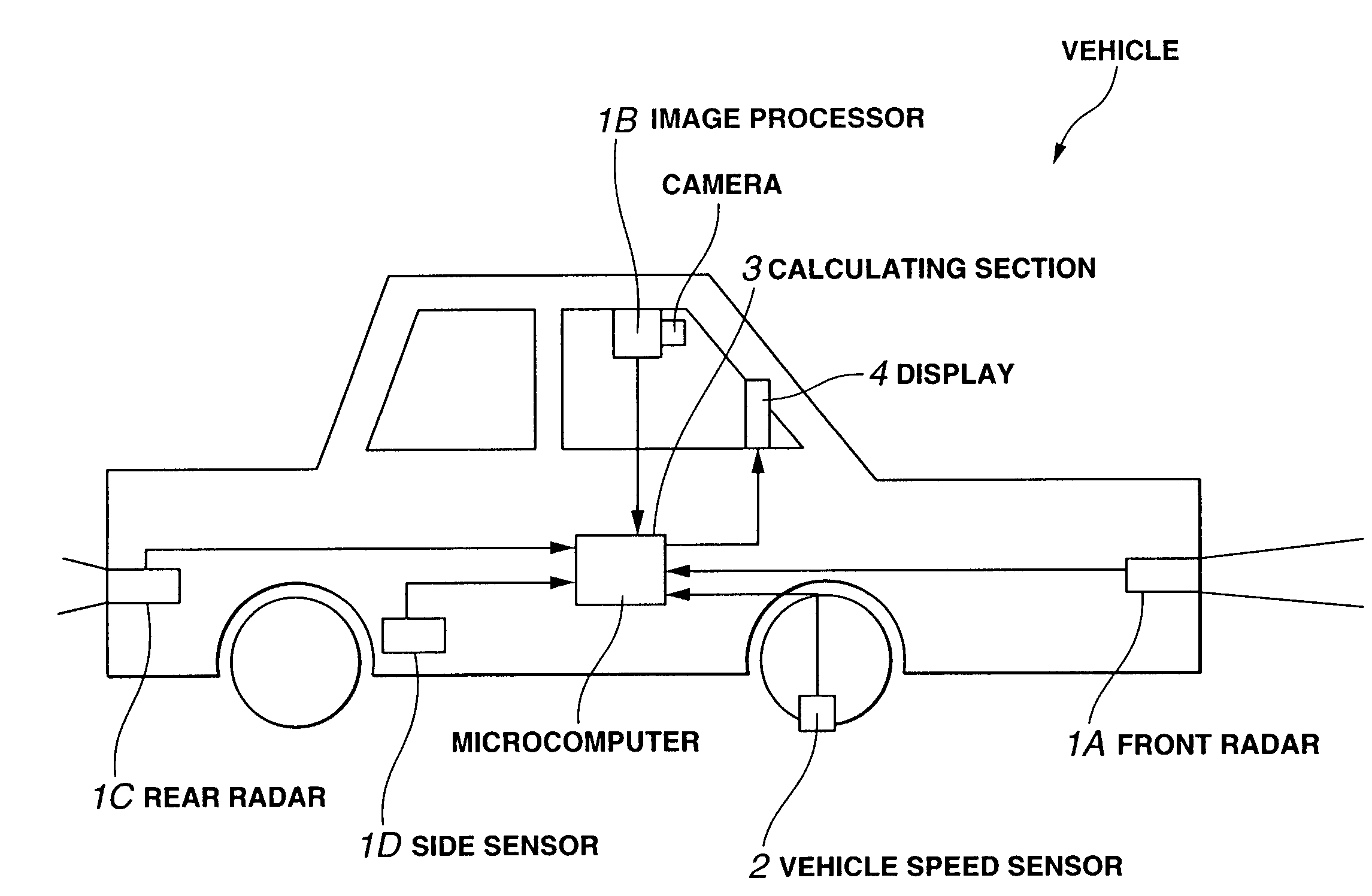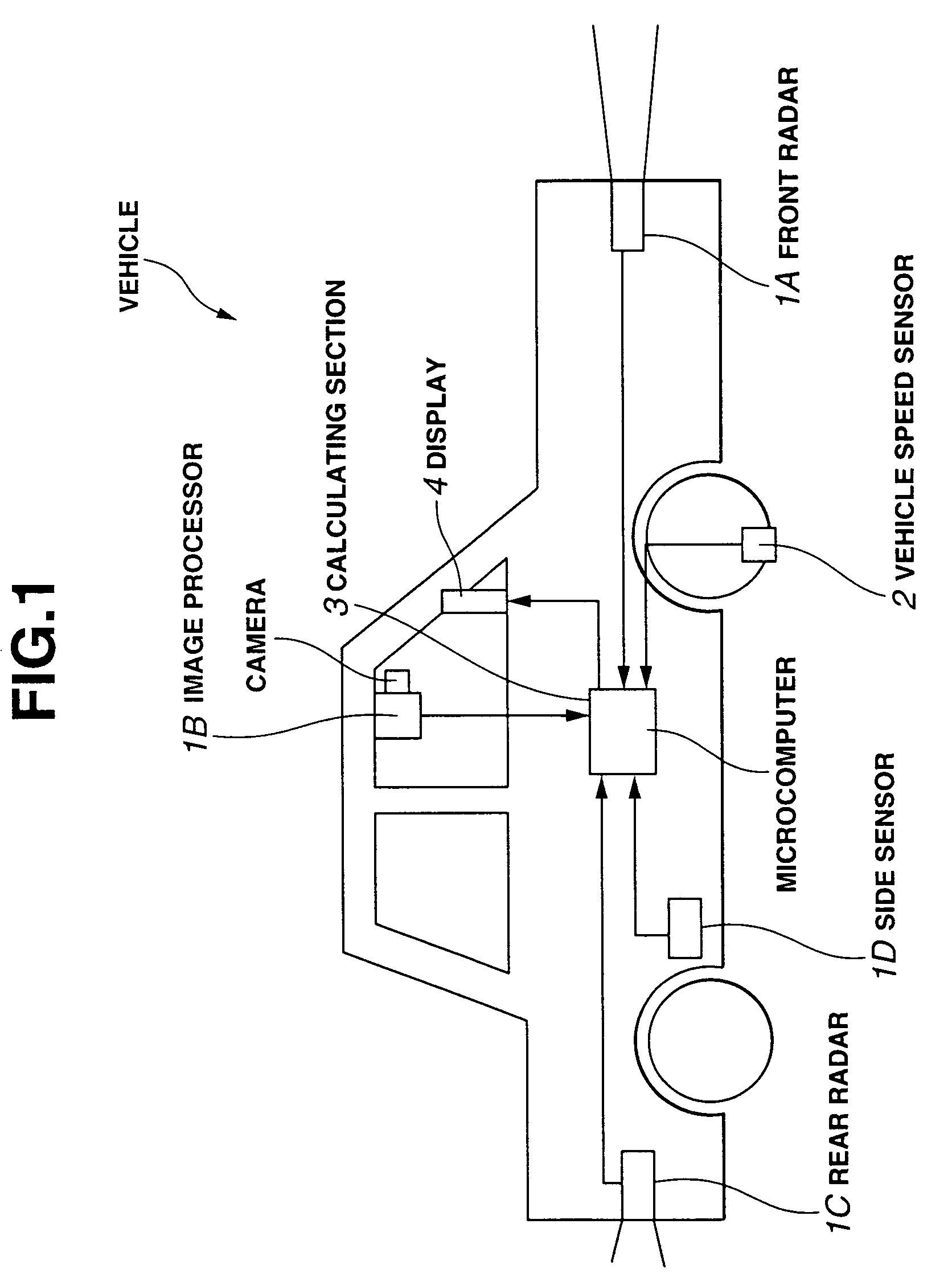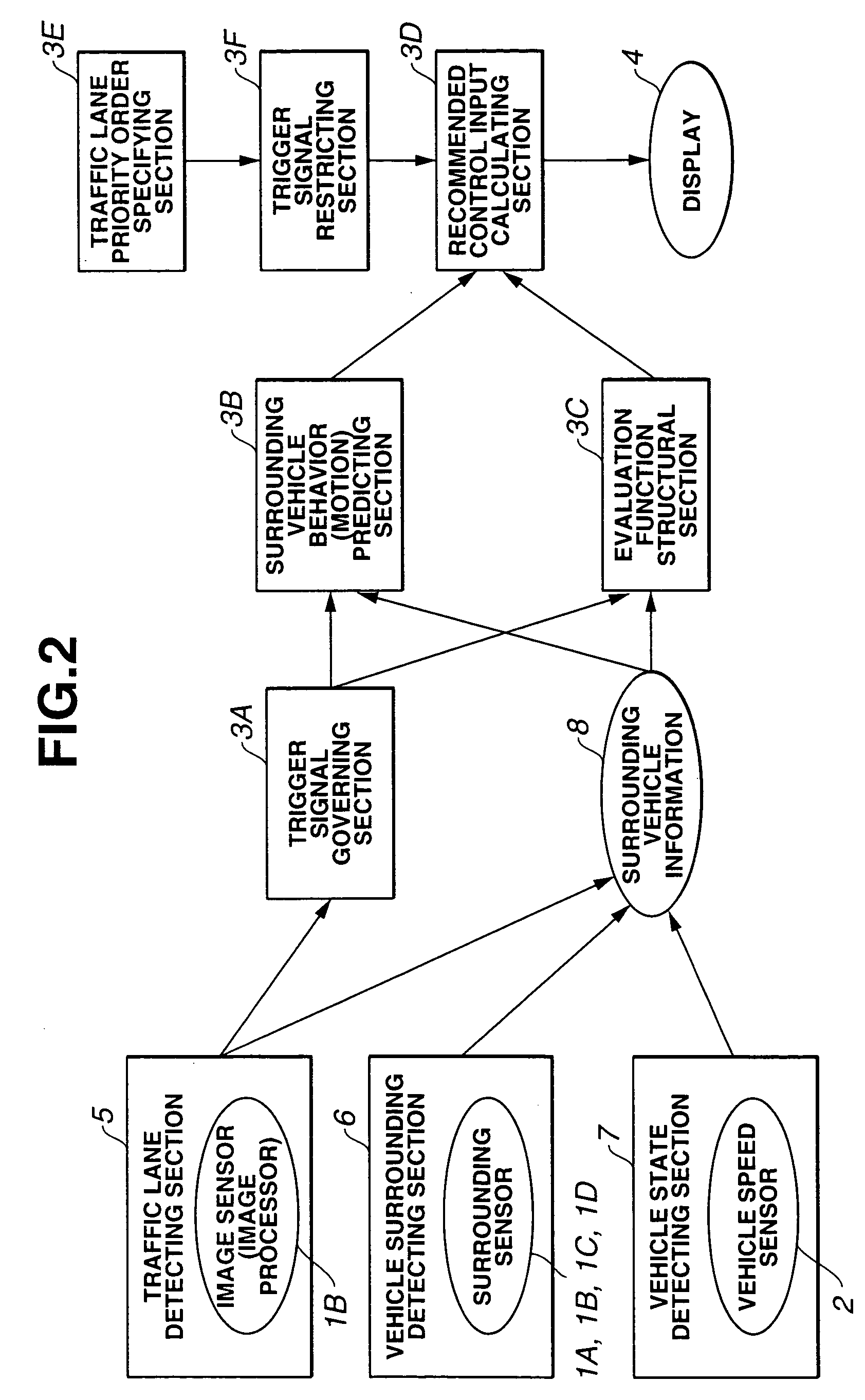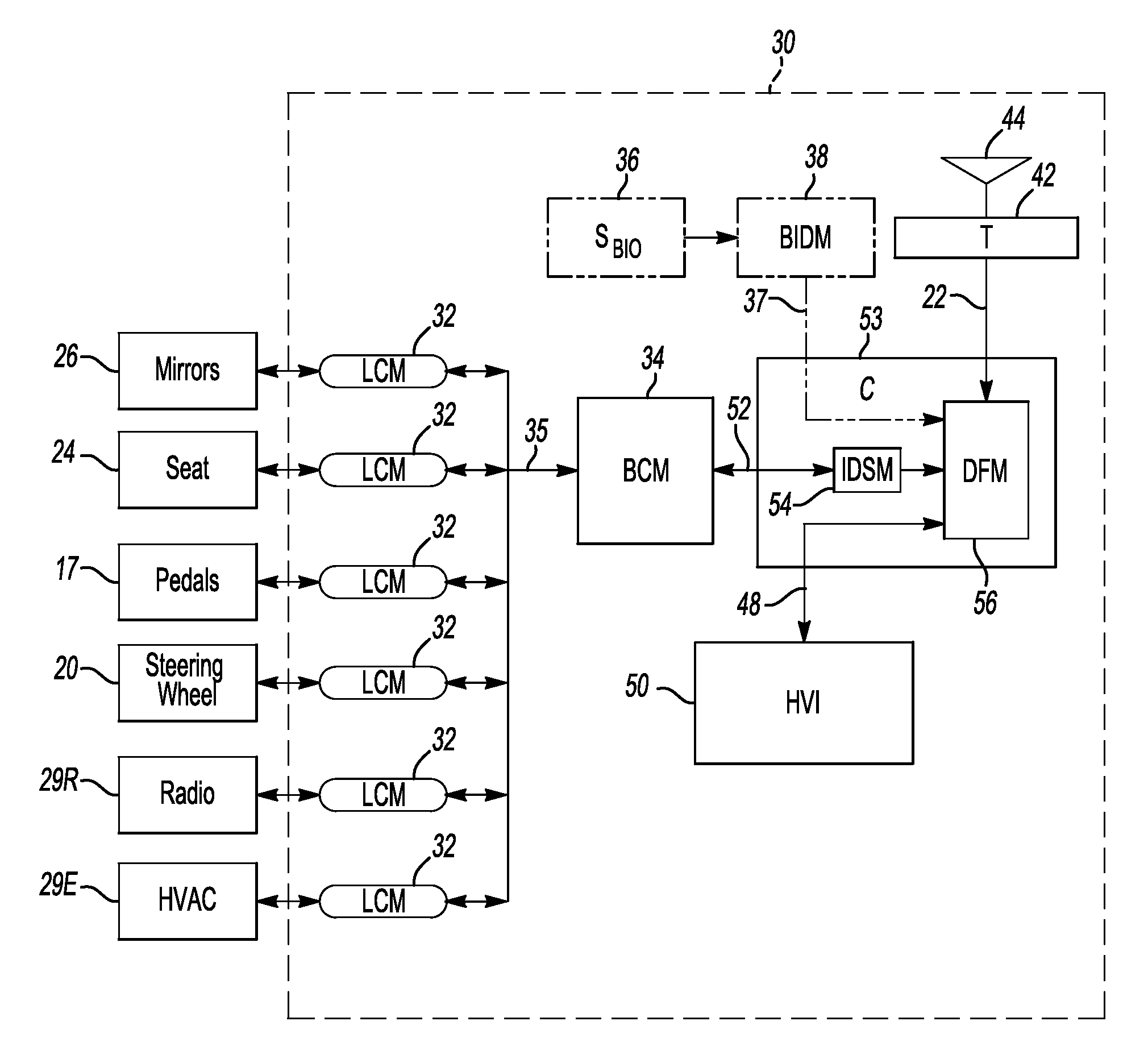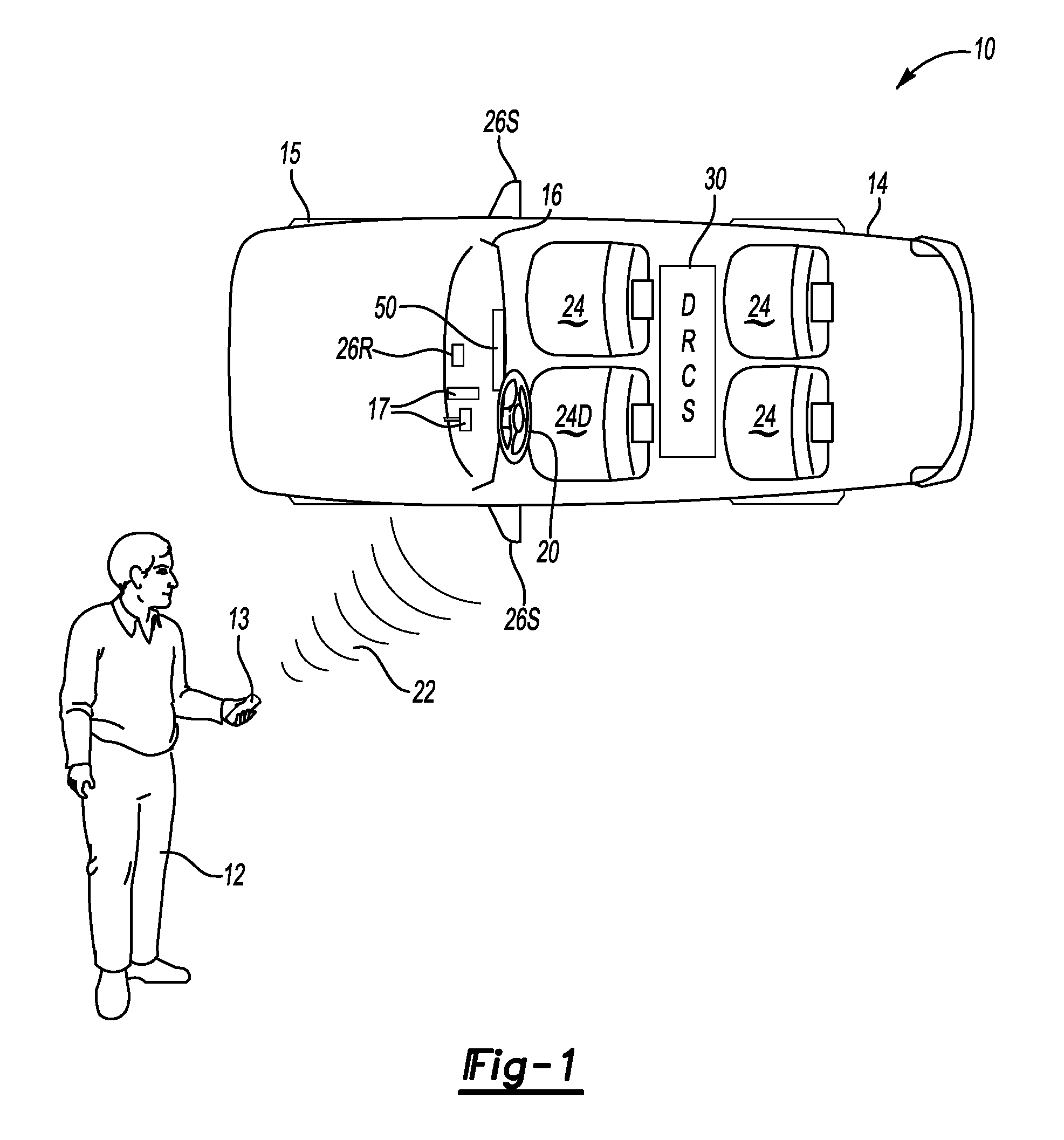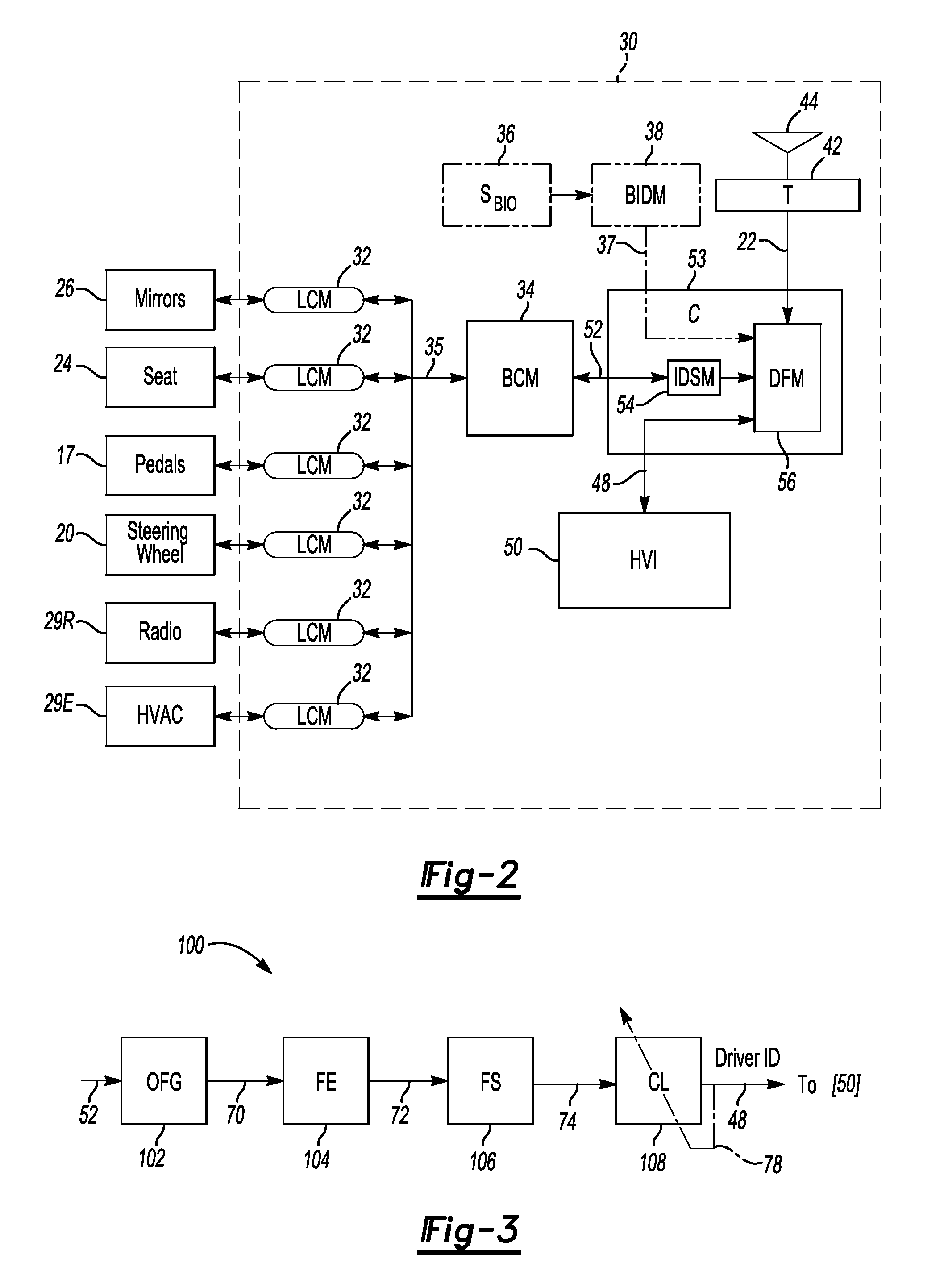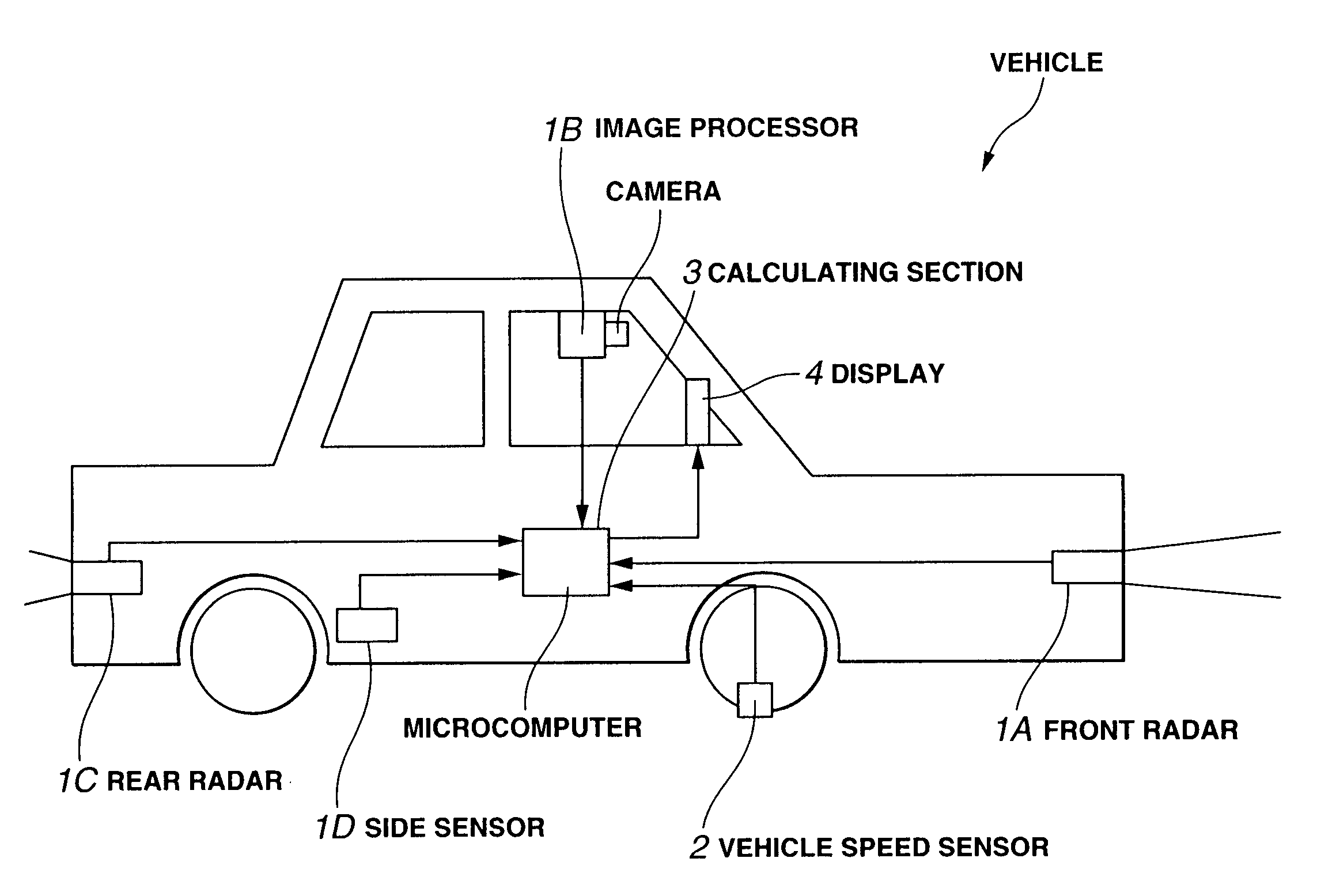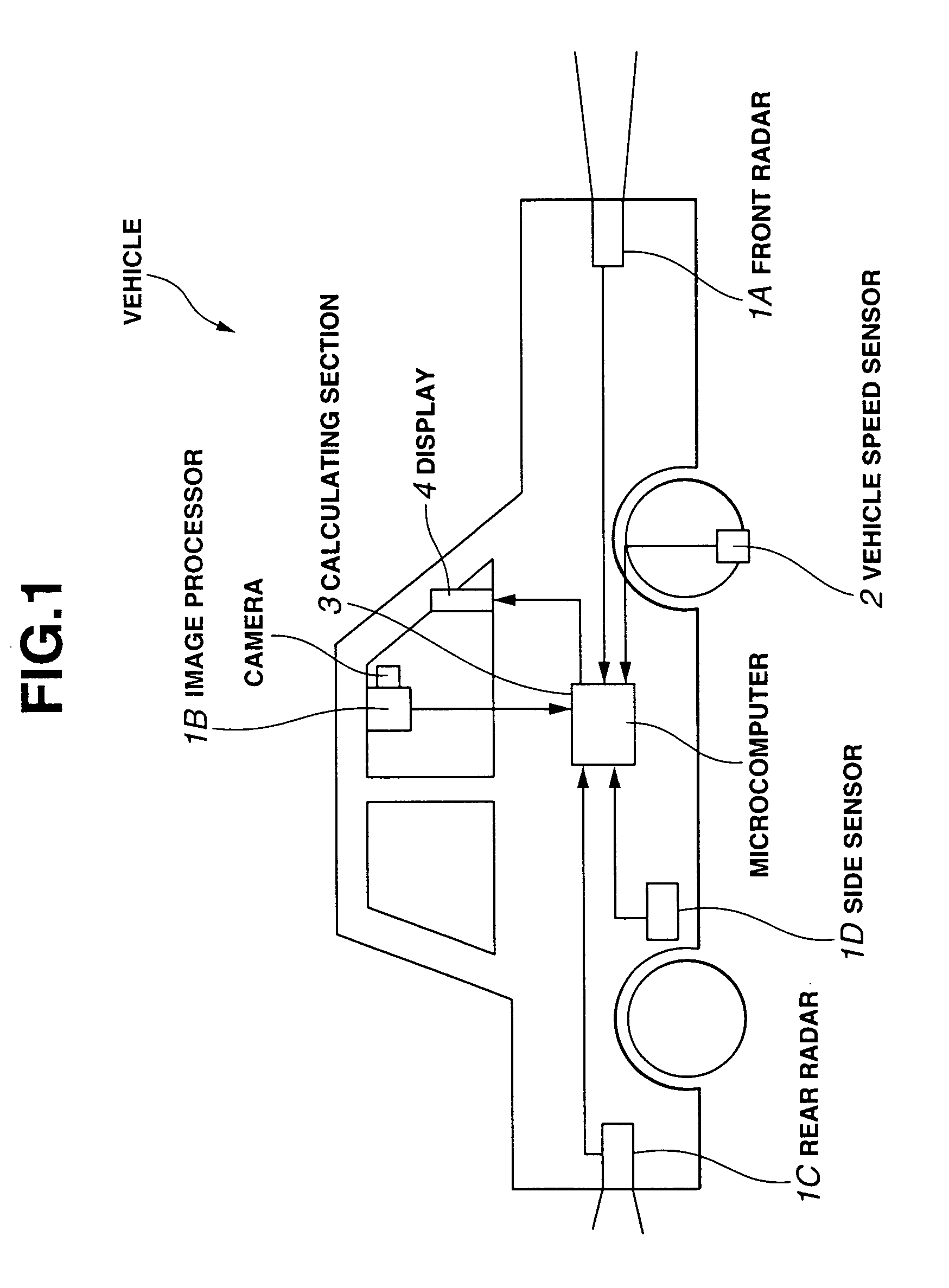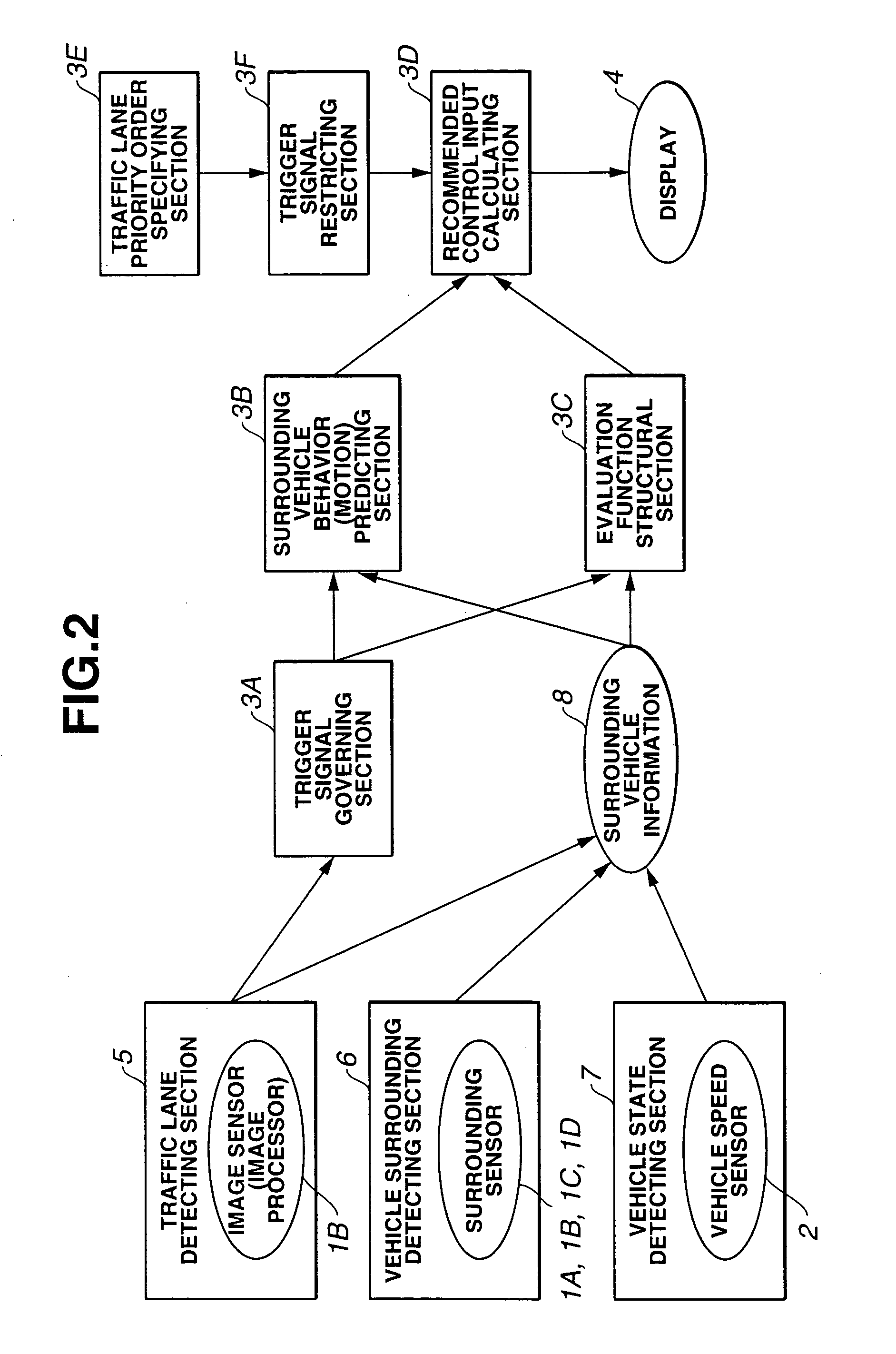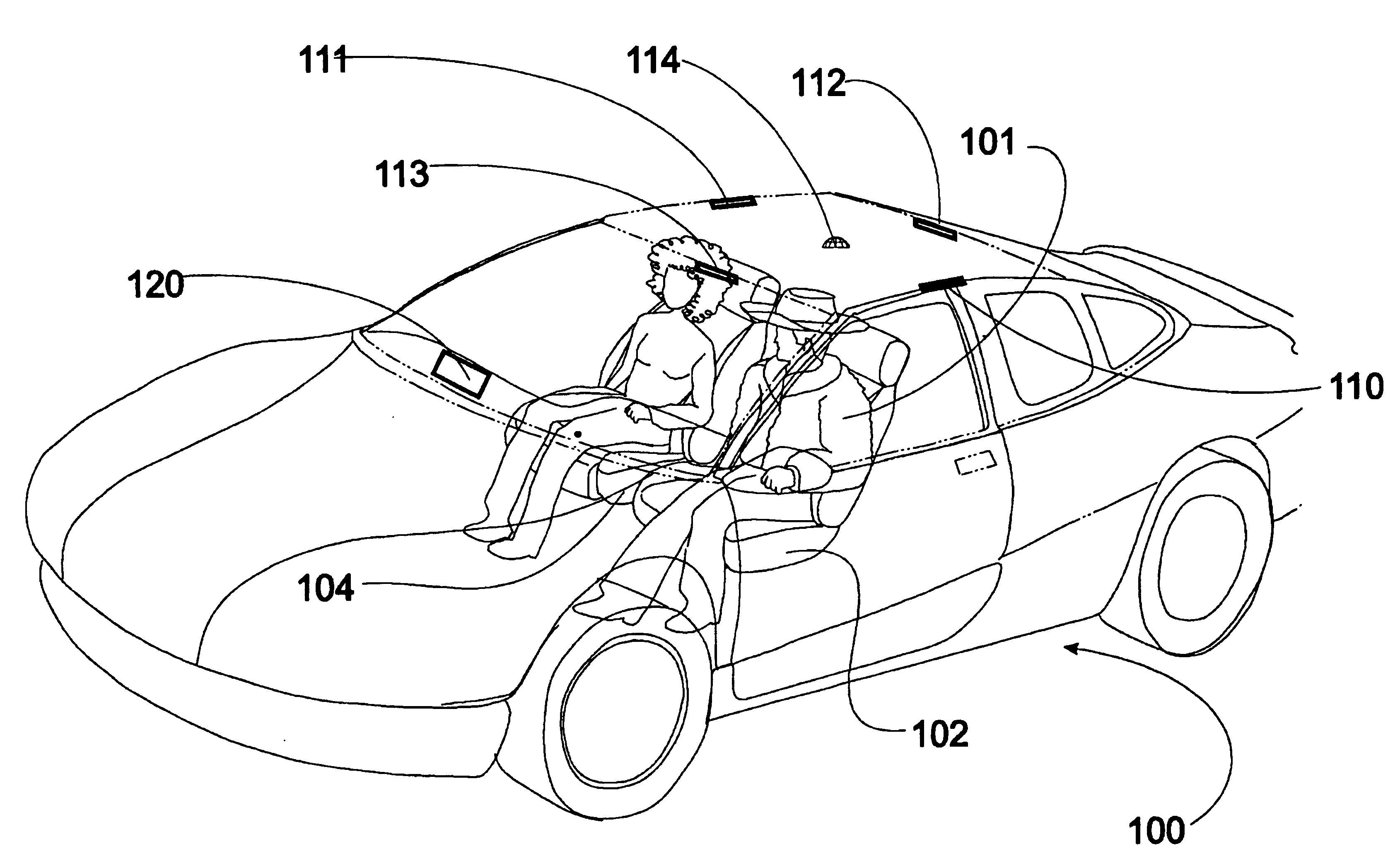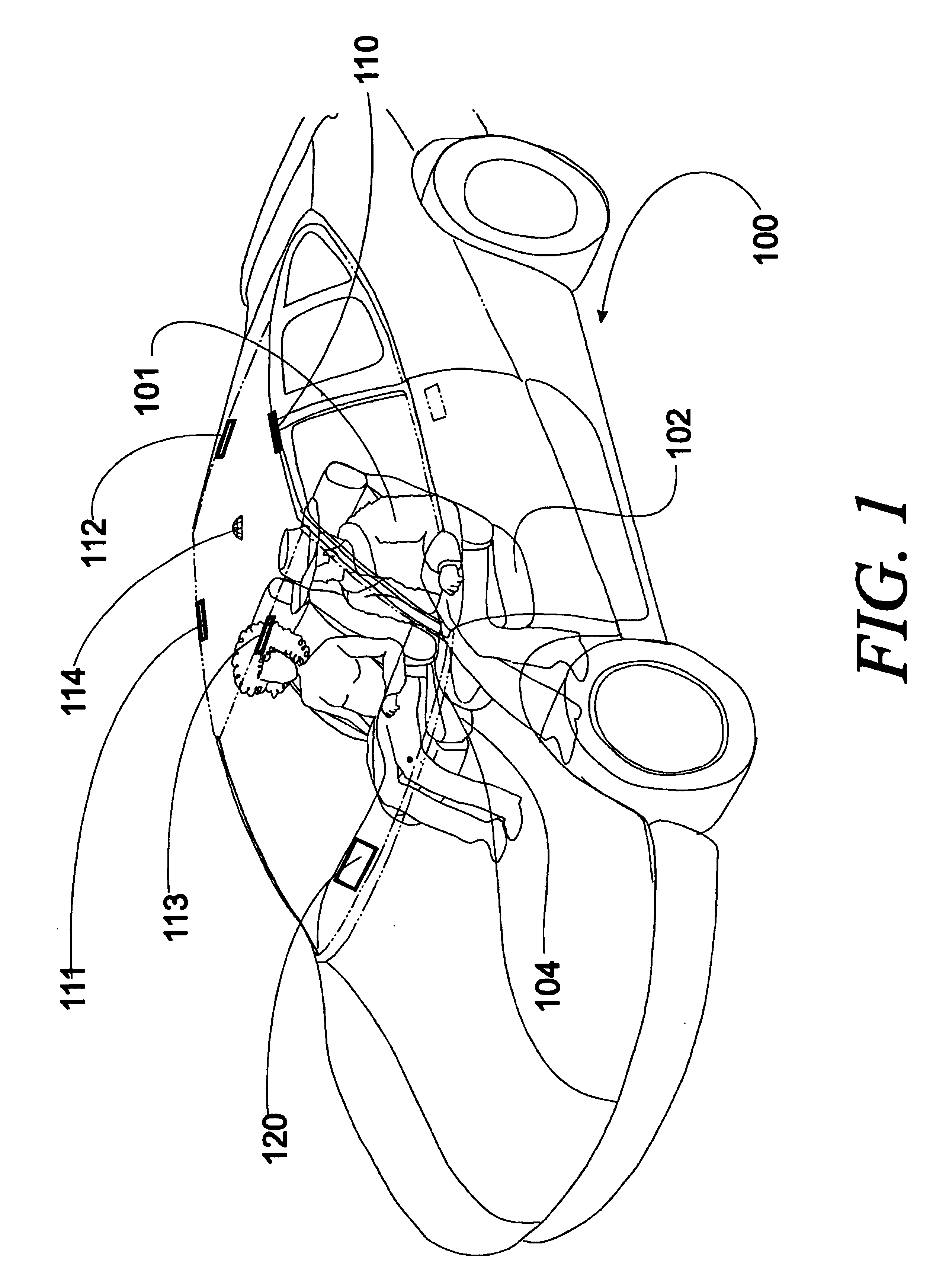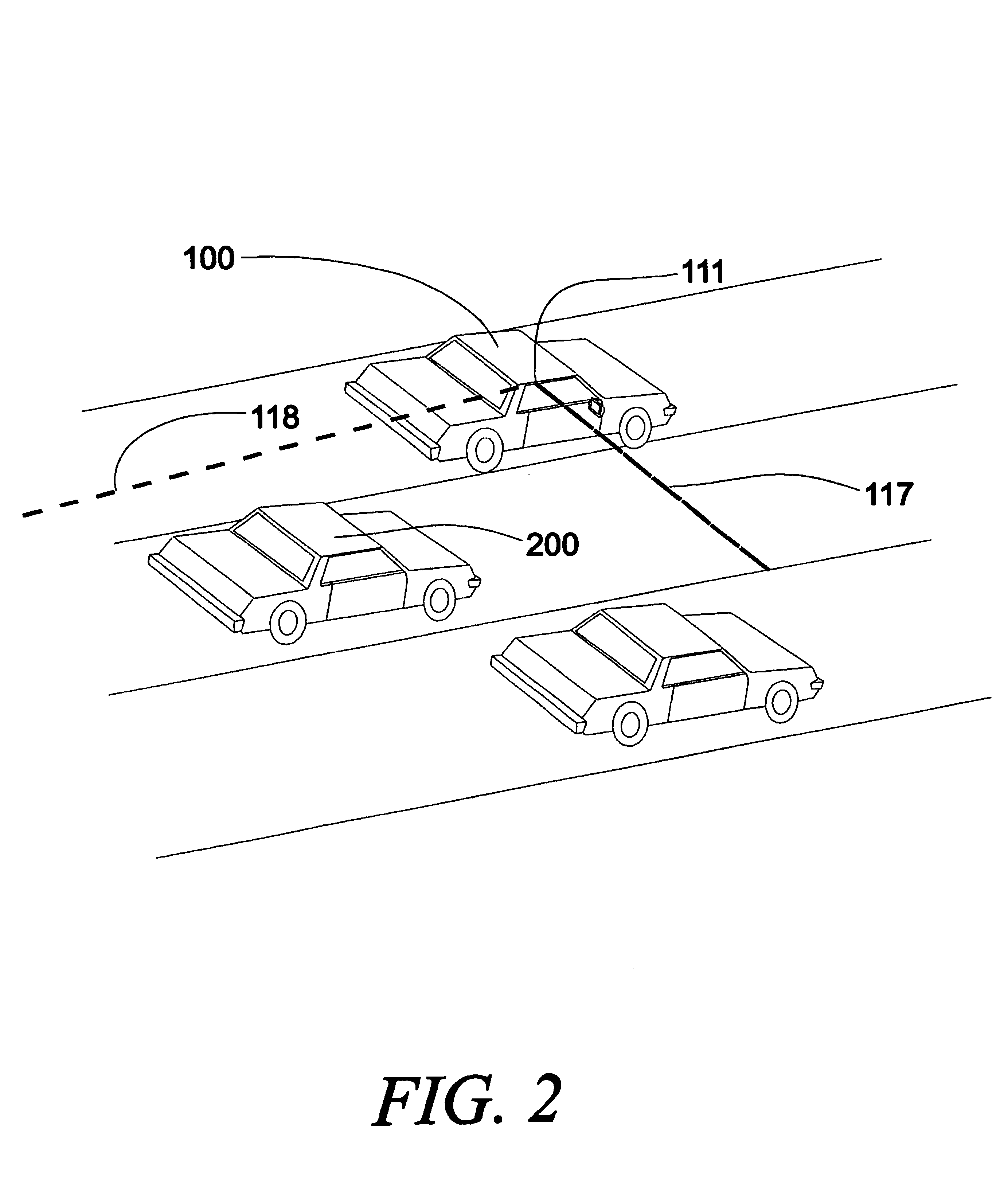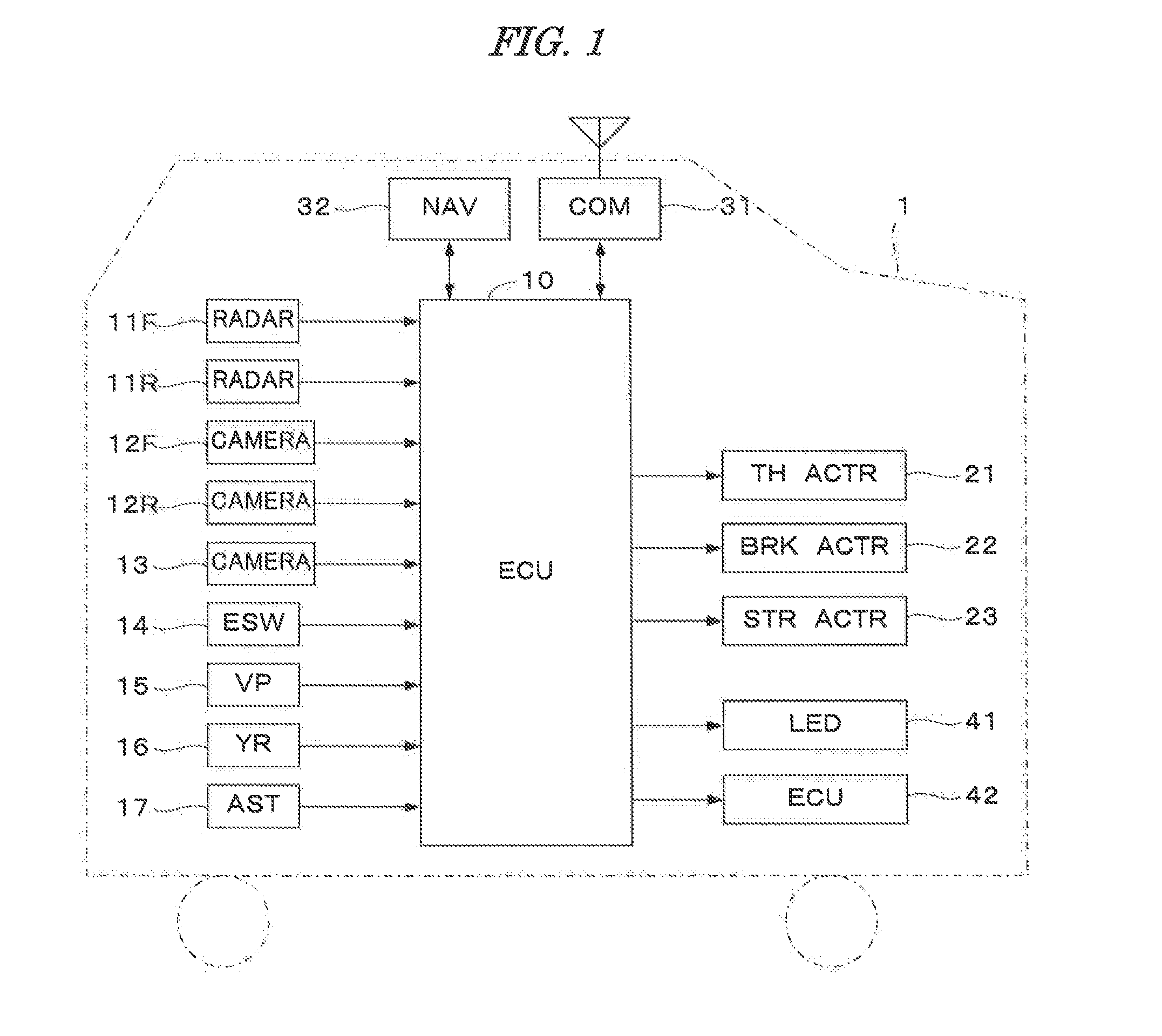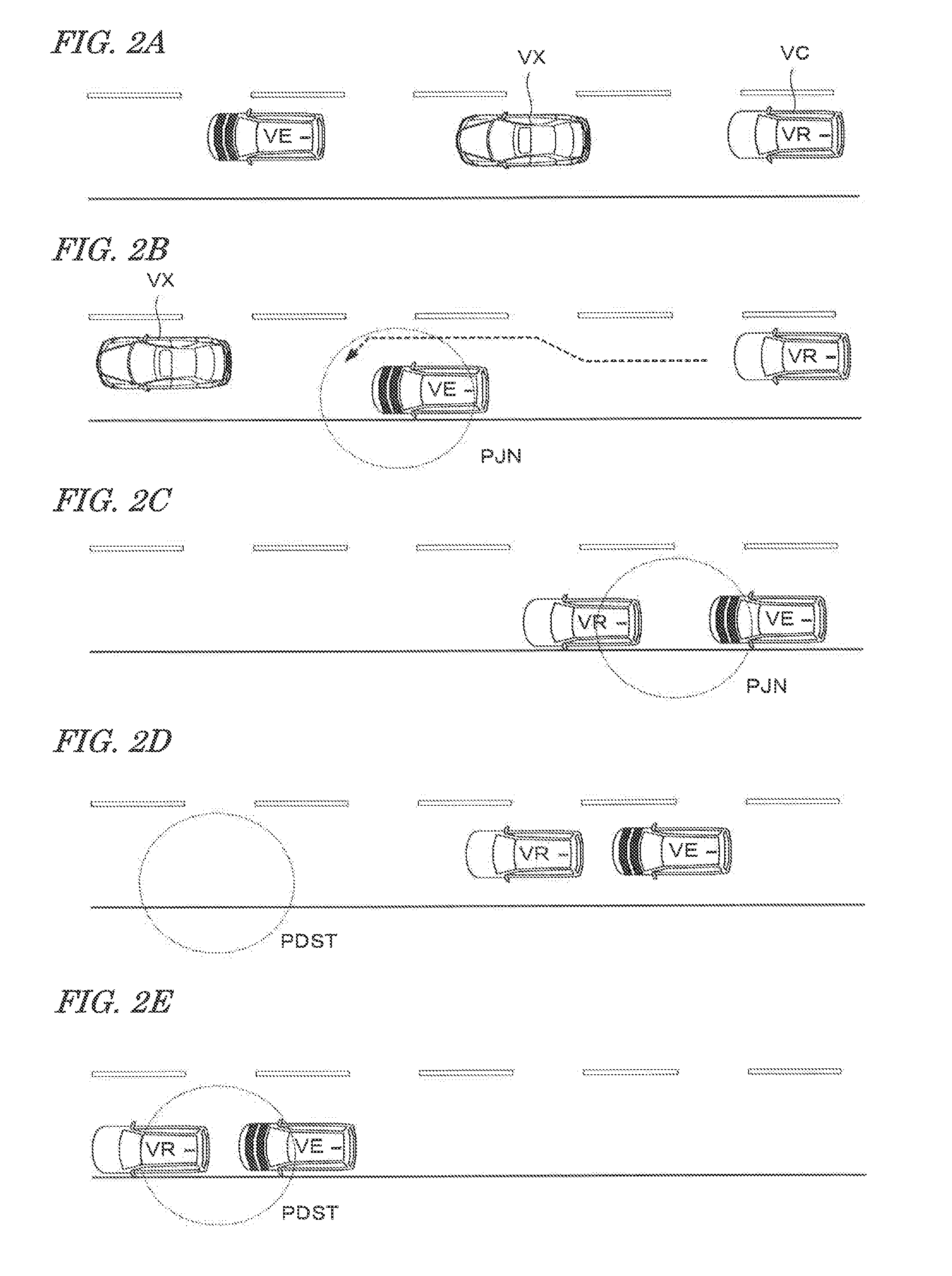Patents
Literature
Hiro is an intelligent assistant for R&D personnel, combined with Patent DNA, to facilitate innovative research.
14080 results about "Vehicle driving" patented technology
Efficacy Topic
Property
Owner
Technical Advancement
Application Domain
Technology Topic
Technology Field Word
Patent Country/Region
Patent Type
Patent Status
Application Year
Inventor
Traffic information system
ActiveUS20070027583A1Minimize the numberAccurate insurance rateAnalogue computers for vehiclesAnalogue computers for trafficEngineeringVehicle driving
Owner:INSURANCE SERVICES OFFICE INC
Alert system for vehicle
An alert system for a vehicle includes a video display, an interior visual alert device disposed at an interior rearview mirror assembly, a driver side visual alert device disposed at a driver side exterior rearview mirror assembly and a passenger side visual alert device disposed at a passenger side exterior rearview mirror assembly. A control is operable to activate at least one of the alert devices in response to a detection of an object rearward of the vehicle. The alert devices are viewable by the driver of the vehicle when activated and are operable to guide or prompt the driver to check the images captured by a rearward facing camera and displayed in the vehicle cabin by the video display so that the driver can verify the nature and type of a potential hazard rearward of the vehicle.
Owner:MAGNA ELECTRONICS
System and method for vehicle driver behavior analysis and evaluation
ActiveUS20050131597A1More informationEasy to useVehicle testingRegistering/indicating working of vehiclesData streamDriver/operator
A system and method for analyzing and evaluating the performance and attitude of a motor vehicle driver. A raw data stream from a set of vehicle sensors is filtered to eliminate extraneous noise, and then parsed to convert the stream into a string of driving event primitives. The string of driving events is then processed by a pattern-recognition system to derive a sequence of higher-level driving maneuvers. Driving maneuvers include such familiar procedures as lane changing, passing, and turn and brake. Driving events and maneuvers are quantified by parameters developed from the sensor data. The parameters and timing of the maneuvers can be analyzed to determine skill and attitude factors for evaluating the driver's abilities and safety ratings. The rendering of the data into common driving-related concepts allows more accurate and meaningful analysis and evaluation than is possible with ordinary statistical threshold-based analysis.
Owner:GREENROAD DRIVING TECH LTD
Method and arrangement for controlling vehicular subsystems based on interpreted driver activity
Method and arrangement for controlling a subsystem of a vehicle dependent upon a sensed level of driver inattentiveness to vehicle driving tasks. A variable characteristic is measured, on a substantially real-time basis, which correlates to the driver's inattentiveness. The level of inattentiveness is assessed based at least in part on the measurement. The performance of a subsystem of the vehicle, such as cruise control or lane keeping support, is tailored, based thereupon, to assure that behavior of the vehicle appropriately matches the driver's present level of inattentiveness. The subsystem's operation is controlled in an effort to avoid or prevent the establishment of driving conditions that become inherently more dangerous as the driver's level of inattentiveness increases.
Owner:VOLVO TECH
Devices, Systems and Methods for Controlling Permitted Settings on a Vehicle
ActiveUS20110137520A1Limiting distractionNetwork traffic/resource managementAnalogue computers for trafficDistractionDriver/operator
Devices, systems, and methods are disclosed for altering permitted settings of a vehicle according to a driver identified through short range wireless communication. The vehicle captures a unique identifier from a wireless communication device of the driver of the vehicle. This unique identifier is used to reference a database to determine the identity of the driver as well as settings for the driver created by a controlling authority. The controlling authority may be, for instance, a parent or employer of the driver. The settings may limit certain devices within the vehicle and / or the vehicle itself. Speed control settings, radio settings, wireless communication device settings, and various other settings are all possible to limit distractions to the driver. Further, the settings may be influenced by the number or identities of passengers within the vehicle.
Owner:HYUNDAI MOTOR CO LTD +1
Traffic information system
ActiveUS7821421B2Minimize the numberGood estimateRegistering/indicating working of vehiclesDigital data processing detailsEngineeringVehicle driving
Owner:INSURANCE SERVICES OFFICE INC
Traffic aware lane determination for human driver and autonomous vehicle driving system
ActiveUS9672734B1Minimize disruptionQuickly reachAnalogue computers for vehiclesParticular environment based servicesDriver/operatorUser device
A system, method, and computer program product for determining lane information in a road segment to drive a first vehicle to minimize travel time. According to an embodiment, navigation data of the first vehicle and at least one other vehicle in a road segment is sent to a computer server system via their respective clique leaders through a communication network. The lane information may include whether a change of lane is required, a lane to avoid, an optimum lane, and rank order of drivable lanes according to increasing order of travel time for the first vehicle to minimize travel time. The determined lane information is sent to the appropriate user device through its clique leader. The user device presents the lane information to a human driver and / or autonomous vehicle driving system of the first vehicle appropriately.
Owner:RATNASINGAM SIVALOGESWARAN
Vehicle exterior mirror assembly with blind spot indicator
ActiveUS7492281B2Easy to viewReadily viewableAnti-collision systemsOptical signallingDriver/operatorBlind spot
Owner:DONNELLY CORP
Method and arrangement for controlling vehicular subsystems based on interpreted driver activity
InactiveUS7639148B2Vehicle fittingsDigital data processing detailsDriver/operatorVariable Characteristic
Owner:VOLVO TECH
Vigilance monitoring technique for vehicle operators
InactiveUS20070080816A1Increase probabilityDigital data processing detailsDiagnostic recording/measuringMoving averageDriver/operator
A vigilance monitoring system to determine the alertness of a driver of a vehicle. The system uses one or multiple sensors located at the driver-vehicle interface (steering wheel, accelerator, brakes). The sensor monitors the magnitude and frequency of the force (or displacement) exerted by a driver at the driver interface. A time derivative of the force or displacement profile is created. The variability of the time derivative of the force / displacement data from the general trend of the data as obtained by an optimized moving average of the data. An intelligent control system measures the variability and compares with an alertness rating scale to determine the alertness score of the driver and issue warning signals and actions as appropriate.
Owner:PENN STATE RES FOUND
System And Method For Improved Vehicle Safety Through Enhanced Situation Awareness Of A Driver Of A Vehicle
InactiveUS20110210867A1Enhanced Situational AwarenessReduce speedArrangements for variable traffic instructionsDetection of traffic movementTransceiverTransducer
The present invention provides a situation awareness system of a driver of a vehicle in a multi-vehicle environment, said system comprising: a. a remote central server communicatively connected to a vehicle, comprising: i. a server computer comprising a CPU, a memory, and an operating system; ii. a wireless server transceiver; iii. databases within said server computer; iv. server applications within said server computer; b. a vehicle subsystem installed in a vehicle with a driver, comprising: i. an vehicle computer having a CPU, a memory, and an operating system; ii. sensors; iii. vehicle databases; iv. a vehicle transducer to interrogate external environmental responders about the state of the environment; v. a wireless vehicle transceiver; vi. vehicle applications within said vehicle computer; vii. a situation assessment application,
Owner:ASER RICH
System and method for vehicle driver behavior analysis and evaluation
ActiveUS7389178B2More informationEasy to useVehicle testingRegistering/indicating working of vehiclesDriver/operatorData stream
Owner:GREENROAD DRIVING TECHNOLOGIES LTD
Vehicle maintenance systems and methods
ActiveUS20090254240A1Reduce in quantityImprove performanceVehicle testingRegistering/indicating working of vehiclesDriver/operatorIn vehicle
A system that enables a fleet of vehicles to be maintained is provided. The disclosed system allows a fleet operator to review the history of the vehicles in the fleet along with vehicle sensor data to identify earmarks in the vehicle sensor data that are predictive of faults that the vehicles have experienced. The operator develops statistical algorithms that can detect an earmark in vehicle sensor data. The system then collects vehicle sensor data and applies the statistical algorithms the vehicle data to determine if a potential fault is going to occur in a vehicle. In response to determining that a potential fault is going to occur, the disclosed system automatically alerts the vehicle driver, automatically schedule a maintenance visit, automatically check the fleet inventory for components required for a maintenance visit and order unavailable components, and automatically dispatch the components to the mechanic.
Owner:UNITED PARCEL SERVICE OF AMERICAN INC
Vehicle interaction communication system
InactiveUS7382274B1Arrangements for variable traffic instructionsVehicle fittingsDriver/operatorTransceiver
The information available to a driver of a vehicle is greatly expanded using wireless communications (e.g., using Bluetooth wireless communication devices). In one embodiment, information regarding an adjacent vehicle such as a brake light, a turn light, speed, distance, direction, etc., is transmitted from one vehicle to a nearby or adjacent other vehicle. The received information is used in any appropriate manner, such as causing the receiving vehicle to change vehicle speed or brake, to turn to avoid a collision, etc. In a second embodiment, roadside wireless transceivers collect information regarding passing vehicles, and central database is compiled relating to a traffic conditions. The traffic condition information can be passed back to the passing vehicles for appropriate use, e.g., causing the driver to slow down, or even causing a navigation device in the receiving vehicle to manually prompt for or automatically recalculate a best route to an intended destination. In yet another embodiment, broadcast transmitters can be established at signs and other significant locations transmitting information to passing vehicles. The broadcast information may be as simple as indicating the existence of the sign, or depending upon the range of the particular wireless transmitter, the existence of a particular sign, bump in road, curve, etc., can be forewarned far in advance of when the driver will actually see the relevant object. Alternatively, the broadcast information may be quite detailed, e.g., containing a detailed itemization and directions to a large number of gas stations, restaurants, etc., reachable from a particular exit from a highway.
Owner:CARRUM TECH LLC
Vehicle drive assist system
InactiveUS20060287826A1Simple image displayIntuitive displayInstruments for road network navigationInstrument arrangements/adaptationsSteering angleEngineering
A vehicle drive assist system comprises a camera for picking up an image of an area existing in an advancing direction of a vehicle; display means for displaying the image picked up by the camera; steering angle detecting means for detecting a steering angle for steering the vehicle; traveling path predicting means for predicting a traveling path of the vehicle on the basis of the steering angle detected by the steering angle detecting means; and drive assist means for overlaying on the display means drive assist information containing the vehicle predictive traveling path predicted by the traveling path predicting means and guide lines prolonged from the lines defining the width of the vehicle body on the image of the area existing in the vehicle advancing direction.
Owner:FUJITSU GENERAL LTD
System and method for dynamic stand-off biometric verification
InactiveUS20050055582A1Fast and secureFast and secure verificationElectric signal transmission systemsImage analysisDriver/operatorFace verification
A system for providing stand-off biometric verification of a driver of a vehicle at a control gate while the vehicle is moving, including an RFID vehicle tag reader, an RFID personal tag reader and a facial detection and recognition (verification) system. The RFID vehicle tag reader scans and reads data from an RFID vehicle tag of the vehicle that is trying to pass through the gate. The RFID personal tag reader reads data from an RFID personal tag carried by personnel who are driving in the vehicle. The facial detection and verification system scans and reads facial images for the driver. All the data and facial images detected by the reader are sent to a computer for further processing (final face verification).
Owner:HONEYWELL INT INC
Method and system for enabling an authorized vehicle driveaway
ActiveUS20110215901A1Electric signal transmission systemsNear-field transmissionEngineeringVehicle driving
Various embodiments may include methods and system for enabling an authorized vehicle driveaway. A vehicle driveaway authorization code for authorizing a vehicle to be driven and a user authorization code that corresponds to the vehicle driveaway authorization code may be generated. The codes may be generated by, for example, at least one server configured to generate the authorization codes. The at least one server may be communicating with a nomadic device and a vehicle driveaway authorization system. A vehicle driveaway request signal may be received. In response to a receipt of the vehicle driveaway request signal, the vehicle driveaway authorization code may be transmitted to the vehicle driveaway authorization system and the user authorization code may be transmitted to the nomadic device for input to the vehicle driveaway authorization system in order to enable the vehicle to be driven.
Owner:FORD GLOBAL TECH LLC
Information presentation controlling apparatus and method based on driver's mental fatigue
InactiveUS7054723B2Easy to identifyInstruments for road network navigationElectric devicesMobile vehicleDriver/operator
In information presentation controlling apparatus and method, a detecting section detects a running state of a mobile body and a running environment thereof, a mental fatigue calculating section calculates a mental fatigue that an operator of the mobile body (specifically, a vehicle driver) suffers due to an operation of the mobile body (an automotive vehicle) from a result of detection by the detecting section, a producing section produces the information to the operator of the mobile body, and an information presentation controlling section controls the information to be produced to the operator of the mobile body through the producing section in accordance with the mental fatigue calculated by the mental fatigue calculating section.
Owner:NISSAN MOTOR CO LTD
Method and system for vision-centric deep-learning-based road situation analysis
In accordance with various embodiments of the disclosed subject matter, a method and a system for vision-centric deep-learning-based road situation analysis are provided. The method can include: receiving real-time traffic environment visual input from a camera; determining, using a ROLO engine, at least one initial region of interest from the real-time traffic environment visual input by using a CNN training method; verifying the at least one initial region of interest to determine if a detected object in the at least one initial region of interest is a candidate object to be tracked; using LSTMs to track the detected object based on the real-time traffic environment visual input, and predicting a future status of the detected object by using the CNN training method; and determining if a warning signal is to be presented to a driver of a vehicle based on the predicted future status of the detected object.
Owner:TCL CORPORATION
High performance vehicle radar system
InactiveUS6400308B1Road vehicles traffic controlAntenna adaptation in movable bodiesDriver/operatorRadar systems
A radar system is described for use in vehicular applications. The radar system is particularly suited to backup warning systems and lane-change warning systems. The radar minimizes many of the problems found in the prior art by providing programmable delays and programmable gain. The radar uses a range search algorithm to detect and sort targets at various ranges within the field of view of the radar. Each target range corresponds to a particular delay and gain setting. The radar searches for targets at the various ranges by running a target search algorithm. For each target range, the search algorithm causes the proper time delay and gain setting. Targets within the selected range are detected and catalogued. Speed of the targets is obtained through Doppler processing. A display is used to warn the driver of the vehicle of the presence of targets at the various ranges. The warning may be visual and / or audible. When used in a lane-change system, issuance of an audible warning is based on the speed of the vehicle.
Owner:AMERIGON INC
Monocular computer vision aided road vehicle driving for safety
InactiveUS6765480B2Loss of lifeLoss of propertyDigital data processing detailsAnti-collision systemsEngineeringVehicle driving
The present invention is a monocular computer vision technique. The technique is used to aid road vehicle driving for safety. An camera (e.g., camera or TV camera or camcorder) is installed in a vehicle facing to the road in front of the vehicle to capture a sequence of road / scene images for analyzing the driving situation. The situation includes the distance to a front obstacle or vehicle, the speed of the vehicle, and the left / right location of the vehicle in a road lane.
Owner:TSENG DIN CHANG
Video mirror system suitable for use in a vehicle
InactiveUS20070171037A1Maximizes rearward field of viewEasy to displayTelevision system detailsDashboard fitting arrangementsElectricityIn vehicle
A vehicular video mirror system comprises an interior electrochromic mirror having a transflective mirror reflector and a video screen disposed behind the mirror reflector so that its presence is substantially unobservable to a driver of the vehicle until the video screen is actuated to emit light that passes through the electrochromic reflective element to be viewed by the driver of the vehicle. Common control circuit circuitry may control dimming of the electrochromic medium and actuation of the video screen. The control circuitry may receive a signal indicative of selection of a reverse gear of the vehicle by the driver and actuates the video screen in order to display video images captured by a video imaging device disposed to the rear of the vehicle and having a field of view rearward of and external to the vehicle.
Owner:DONNELLY CORP
System and method for restricting driver mobile device feature usage while vehicle is in motion
InactiveCN102917004AService provisioningParticular environment based servicesDriver/operatorEngineering
The invention relates to a system and method for restricting driver mobile device feature usage while the vehicle is in motion and particularly provides a method and system which may determine one or more mobile devices associated with a driver of a vehicle. The method and system may deactivate, if one or more vehicle parameters indicate the vehicle is configured for motion, one or more features of the one or more mobile devices associated with the driver of the vehicle. The method and system may reactivate, if the one or more vehicle parameters indicate the vehicle is no longer configured for motion, the one or more features of the one or more mobile devices associated with the driver of the vehicle. The one or more mobile devices may, in some embodiments, be mobile telephones and the one or more features may be text entry features.
Owner:GM GLOBAL TECH OPERATIONS LLC
Obstacle detection device and method therefor
Provided is a technology for helping safe driving and realizing automatic driving of vehicles, or for counting the number of passing vehicles on the road or monitoring those passing vehicles for their driving. Using a plurality of cameras mounted in a vehicle or provided above a road, even if the relationship between the road plane and the respective cameras constantly changes in relative position or posture due to camera vibration or a change in road tilt, any obstacles located on the road such as other vehicles ahead, parked vehicles, and pedestrians on the road are detected without confusing those with textures including white lines, road signs, paint, road stains, and shadows of roadside objects, all of which do not disturb vehicle driving. An obstacle detection device 10 is structured by an image input section 11 for receiving images from a plurality of image pick-up devices 101, a correspondence detection section 12 for finding a plurality of pairs of corresponding points from the received right and left images, the slope degree calculation section 13 for calculating a slope degree of a plane including the corresponding points, and a result determination section 14 for determining as there being an obstacle when the calculated slope degree is larger than a predetermined value.
Owner:KK TOSHIBA
Safety control system for vehicles
InactiveUS6731925B2Reduce the possibilityUnauthorised/fraudulent call preventionEavesdropping prevention circuitsDriver/operatorControl system
A safety control system for vehicles including a telephone and sensors for sensing a potentially dangerous condition and for automatically disabling the telephone when sensing such condition. The sensors include two sensors mounted on a steering member to be gripped by the two hands of the driver of the vehicle and effective to disable an operation of the telephone when the two hands of the driver are not sensed as gripping the steering member while the vehicle is in motion. The sensors may also disable the telephone, and / or actuate a signaling device, when sensing other driver conditions or vehicle conditions in which the distraction of the driver by a telephone conversation could increase the risk of accidents.
Owner:ACT IP
System and method for improving vehicle operator driving assistance of automotive vehicle
InactiveUS7085633B2Digital data processing detailsAnti-collision systemsMobile vehicleDriver/operator
In system and method for improving operator driving assistance of an automotive vehicle, at an indication of acceleration timing and magnitude and the lane change timing, a lane change necessity is calculated and a lane change trigger signal is produced while the host vehicle is operated on a road that has at least three lanes and, at the calculation of the lane change necessity and at the production of the lane change signal, a new lane change trigger signal is prohibited to indicate until a forward lane change operation is deemed to be completed, in a case where the vehicle is traveling on a multiple number traffic lane road.
Owner:NISSAN MOTOR CO LTD
Apparatus and Method for Vehicle Driver Recognition and Customization Using Onboard Vehicle System Settings
A vehicle includes vehicle systems each having driver-selectable vehicle system settings (VSS), and a control system for statistically modeling the VSS to determine an identity of a driver. The control system automatically controls a setting of at least one of the vehicle systems using or based on the identity. The control system statistically models the VSS for the driver over time to produce a historical driver profile (HDP) for the driver, and can automatically update the HDP when said driver manually changes any one of the VSS. An optional driver identification device can verify the identity. A method for controlling a predetermined onboard system of a vehicle includes collecting a set of VSS for a plurality of onboard systems, processing the VSS through a statistical modeling algorithm to determine an identity of a driver of the vehicle, and automatically controlling a predetermined onboard system using the identity of the driver.
Owner:GM GLOBAL TECH OPERATIONS LLC
System and method for improving vehicle operator driving assistance of automotive vehicle
InactiveUS20040107030A1Digital data processing detailsAnti-collision systemsMobile vehicleDriver/operator
In system and method for improving operator driving assistance of an automotive vehicle, at an indication of acceleration timing and magnitude and the lane change timing, a lane change necessity is calculated and a lane change trigger signal is produced while the host vehicle is operated on a road that has at least three lanes and, at the calculation of the lane change necessity and at the production of the lane change signal, a new lane change trigger signal is prohibited to indicate until a forward lane change operation is deemed to be completed, in a case where the vehicle is traveling on a multiple number traffic lane road.
Owner:NISSAN MOTOR CO LTD
Vehicular blind spot identification and monitoring system
InactiveUS7049945B2Accurate measurementAccurate estimateImage analysisOptical rangefindersDriver/operatorSteering wheel
Arrangement for obtaining information about objects in an environment around a vehicle, e.g., in blind spots of the driver of the vehicle, including one or more light emitting components arranged on the vehicle for emitting infrared light into the environment around the vehicle and receivers arranged on the vehicle for receiving infrared light from the environment around the vehicle. The information about the objects is obtained based on analysis of the received infrared light by a processor, e.g., the distance between the vehicle and the object, the velocity of the object and the identity of the object. Pattern recognition techniques are preferably used to obtain the desired information. Control of the vehicle can be effected based on the detection of particular objects and their position and velocity, e.g., an audio or visual warning device or a steering wheel control device.
Owner:AMERICAN VEHICULAR SCI
Control apparatus of vehicle
InactiveUS20150153733A1Avoid runningImprove performanceAutonomous decision making processExternal condition input parametersDriver/operatorVehicle driving
Owner:HONDA MOTOR CO LTD
Features
- R&D
- Intellectual Property
- Life Sciences
- Materials
- Tech Scout
Why Patsnap Eureka
- Unparalleled Data Quality
- Higher Quality Content
- 60% Fewer Hallucinations
Social media
Patsnap Eureka Blog
Learn More Browse by: Latest US Patents, China's latest patents, Technical Efficacy Thesaurus, Application Domain, Technology Topic, Popular Technical Reports.
© 2025 PatSnap. All rights reserved.Legal|Privacy policy|Modern Slavery Act Transparency Statement|Sitemap|About US| Contact US: help@patsnap.com
